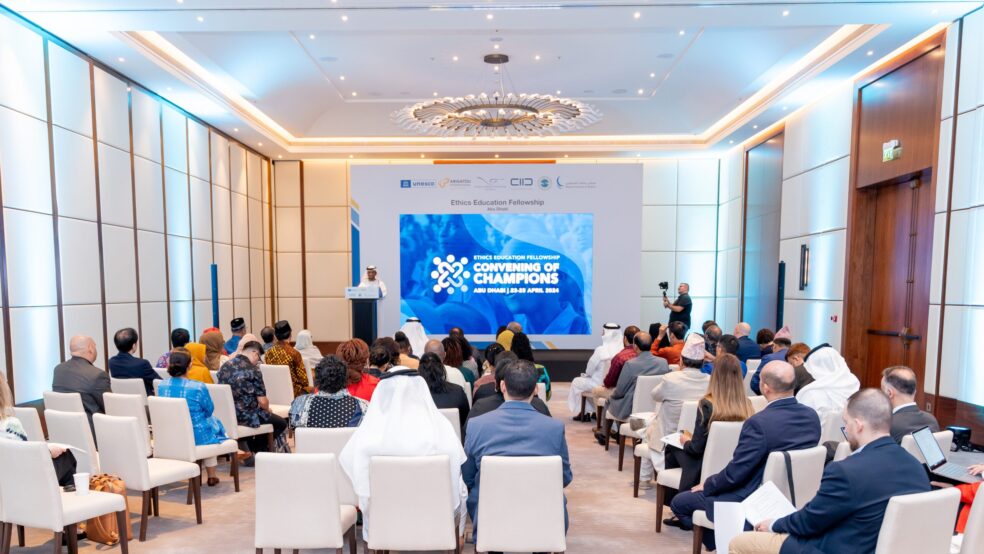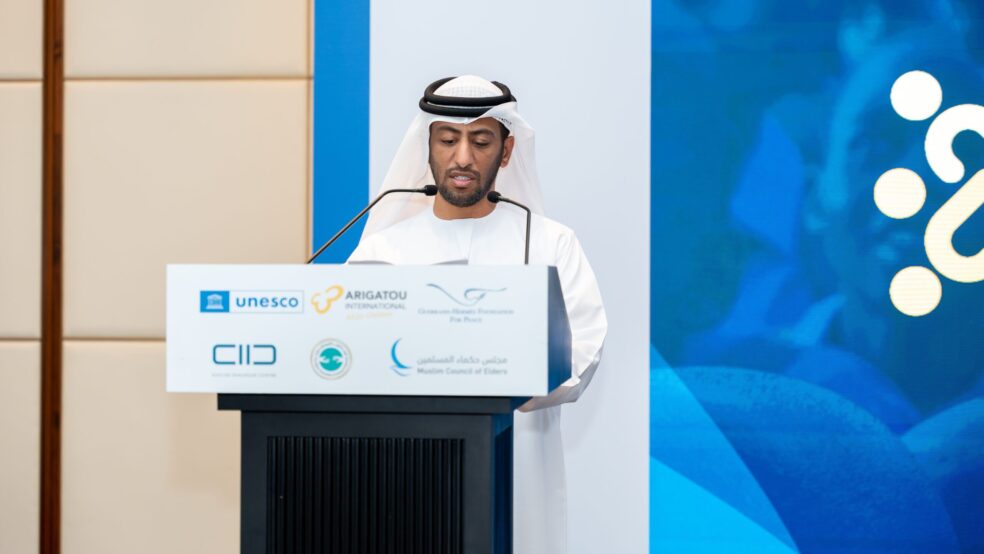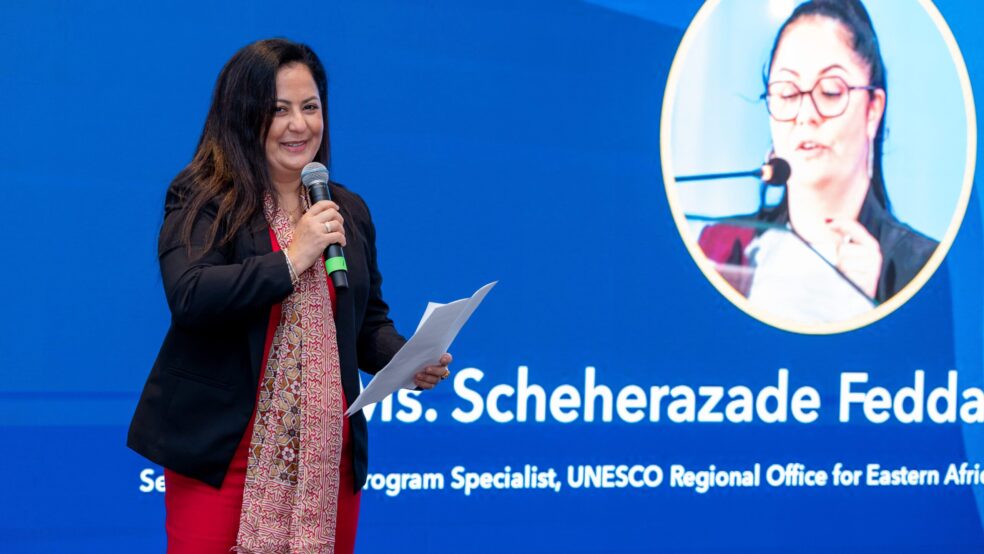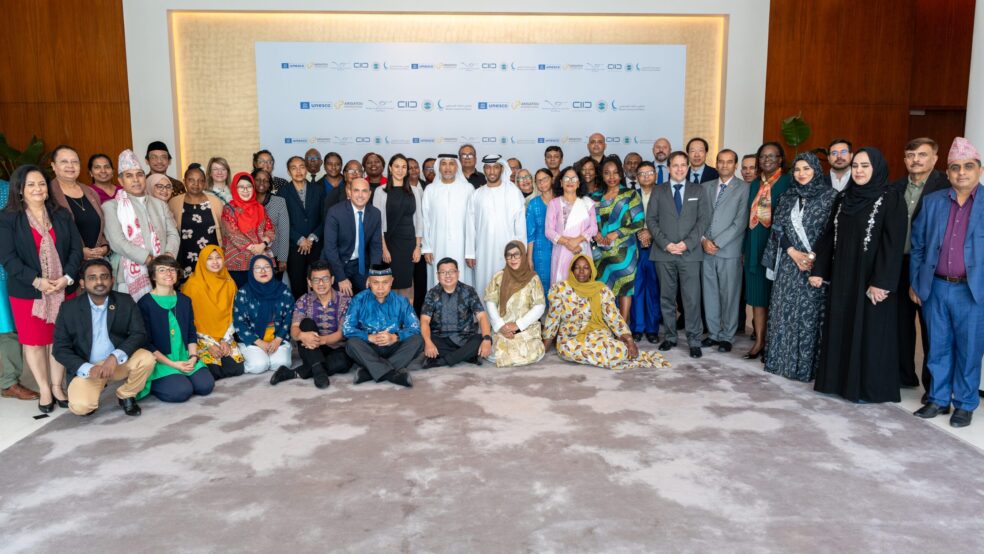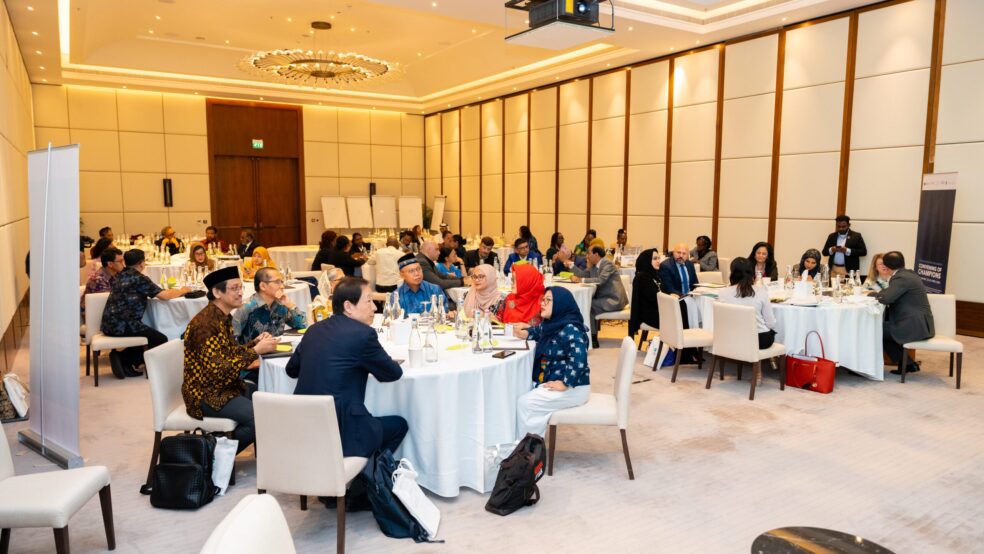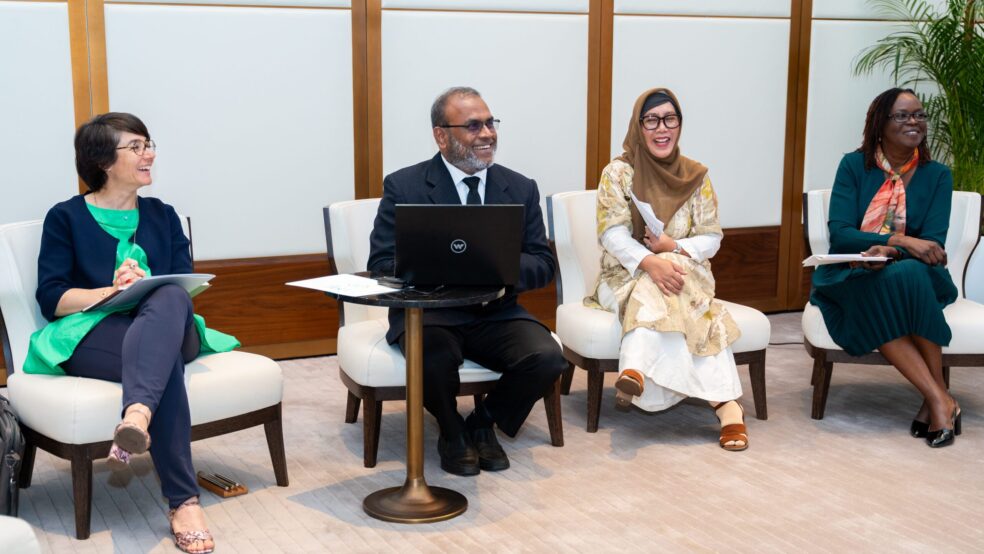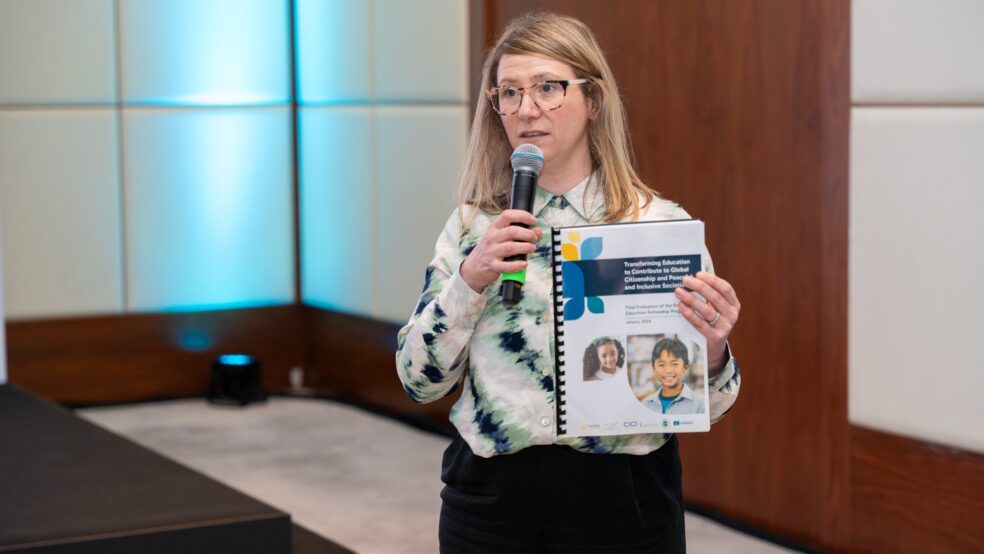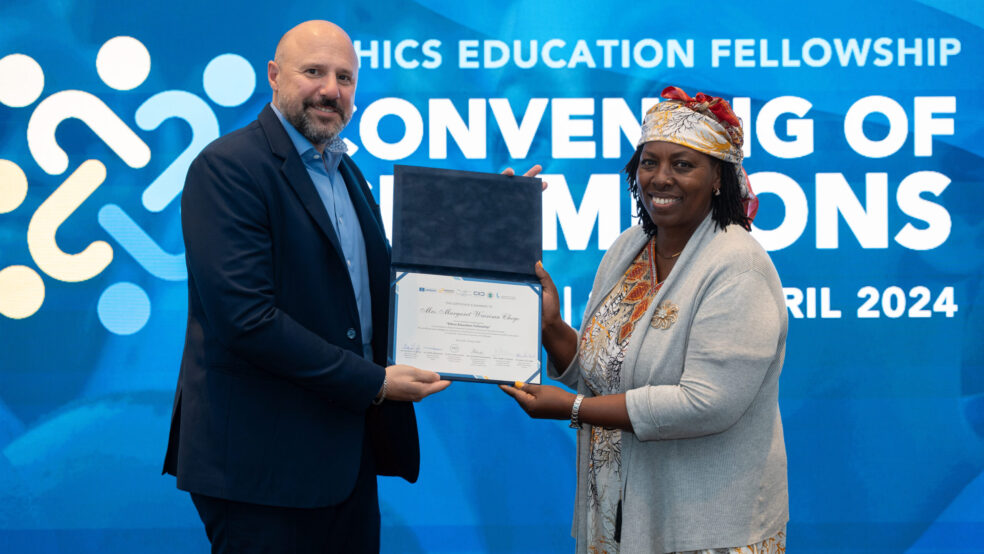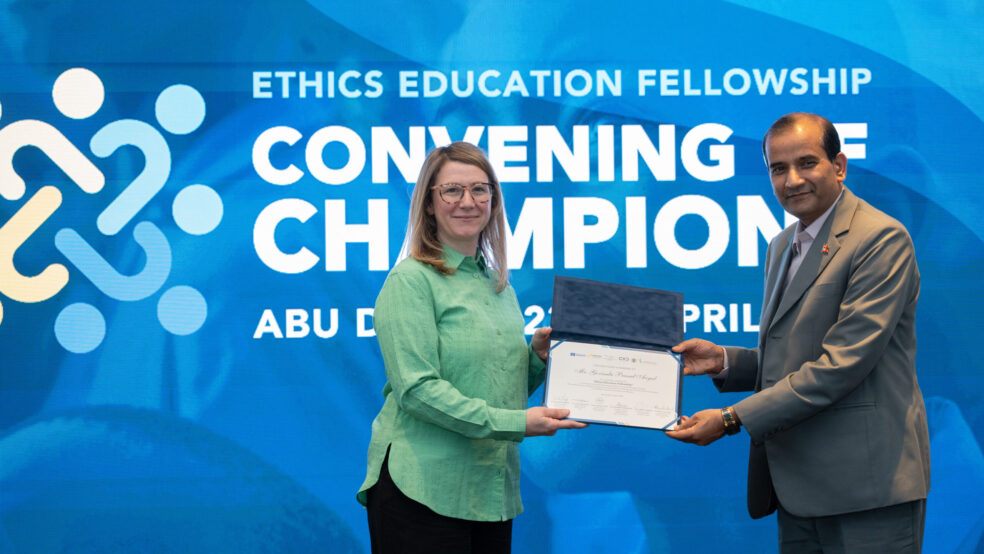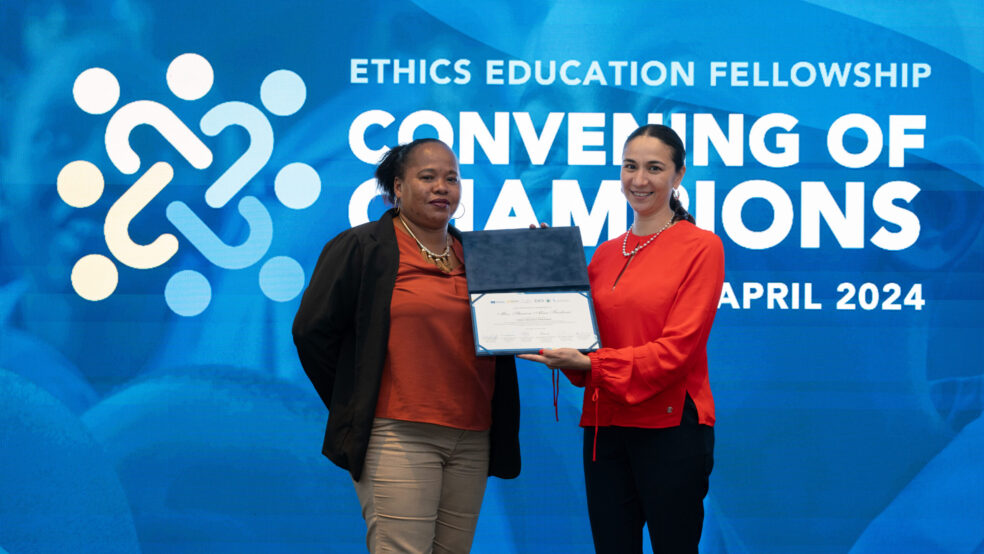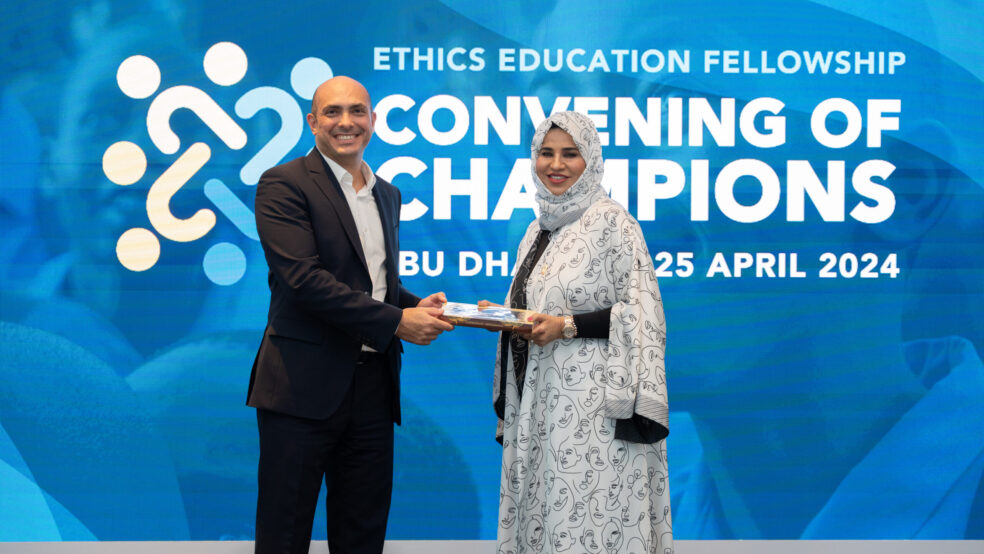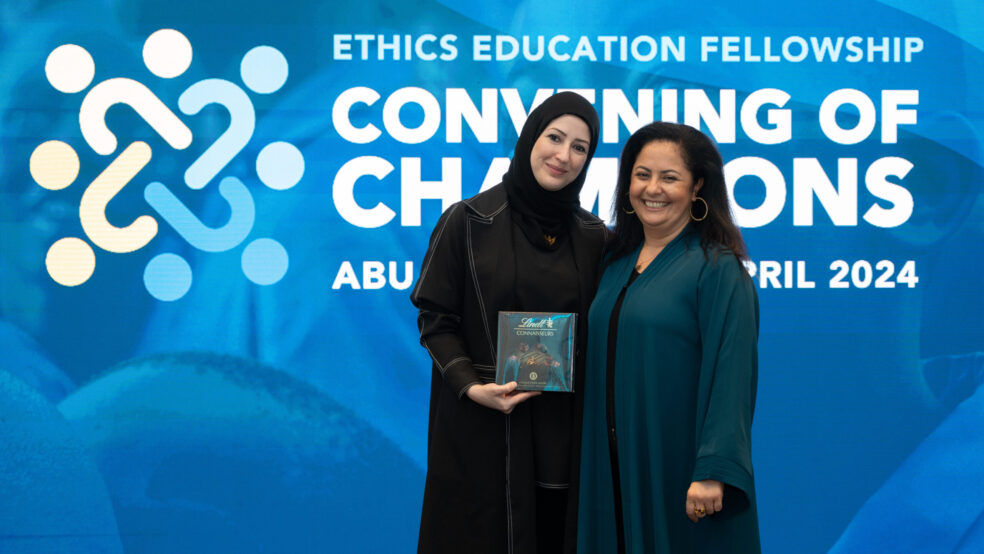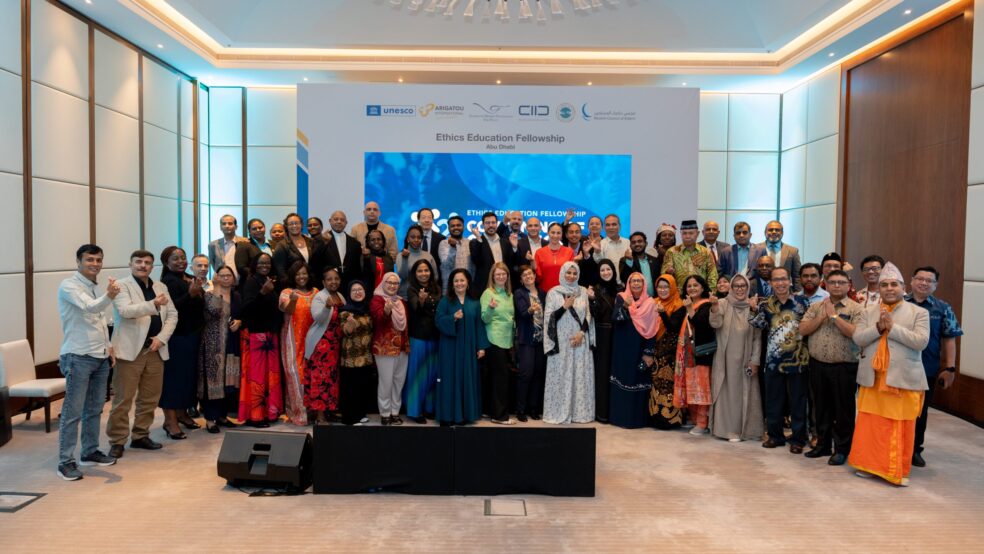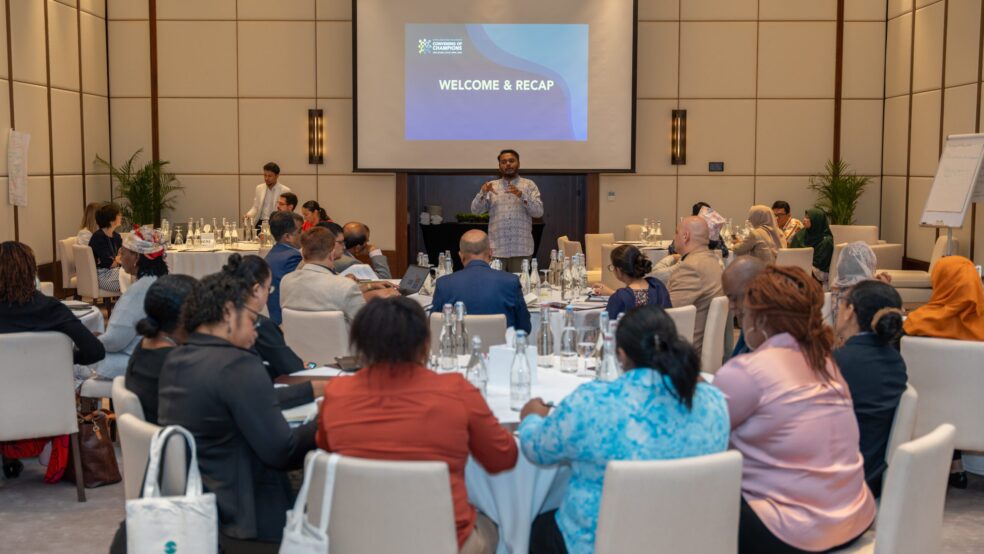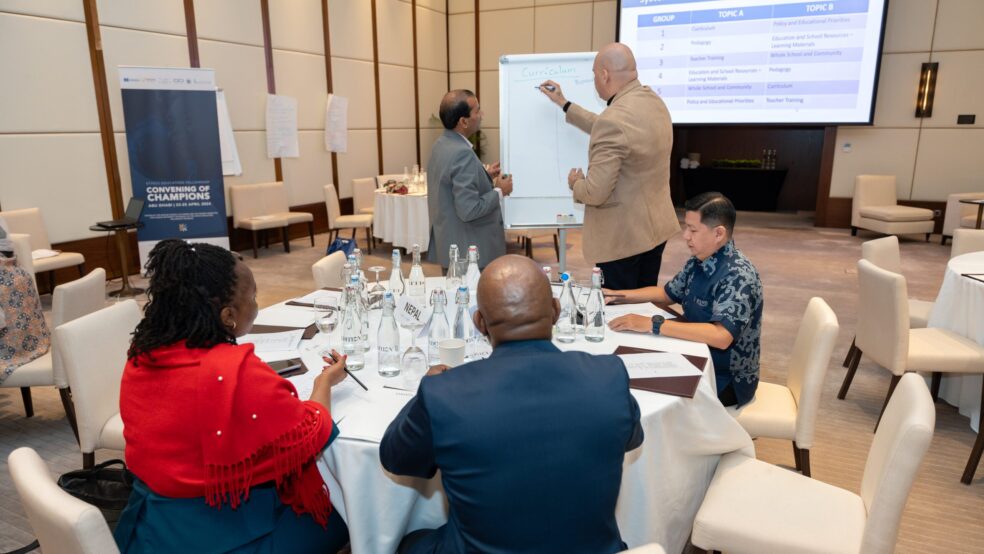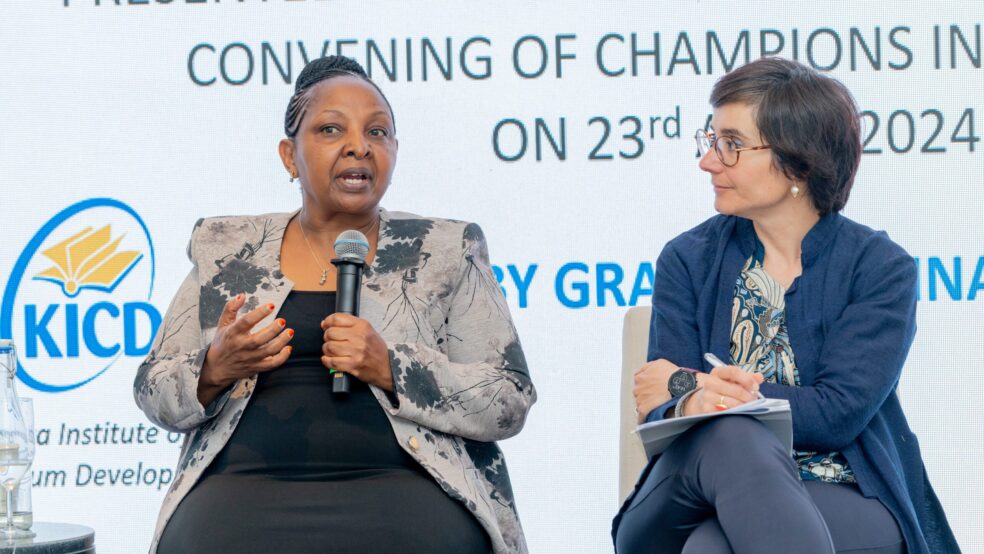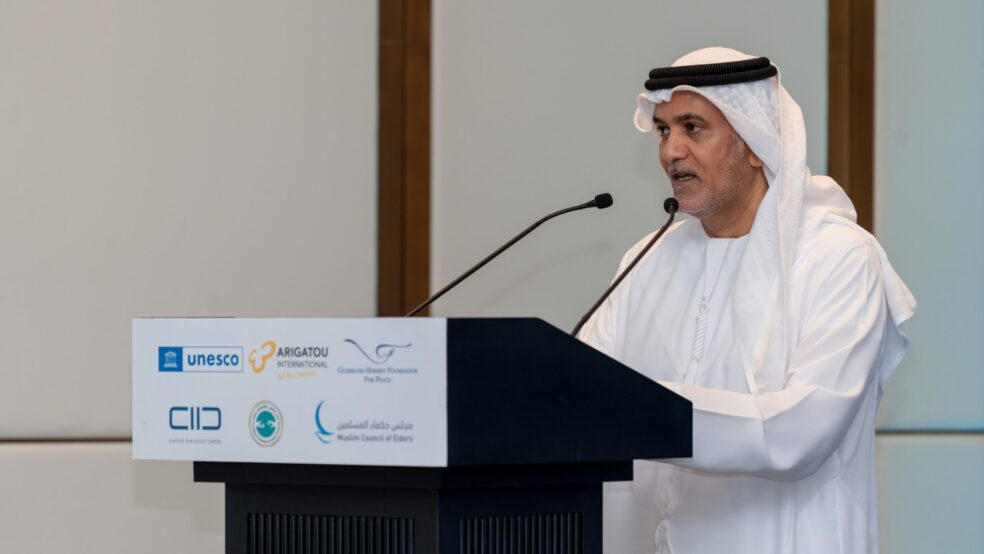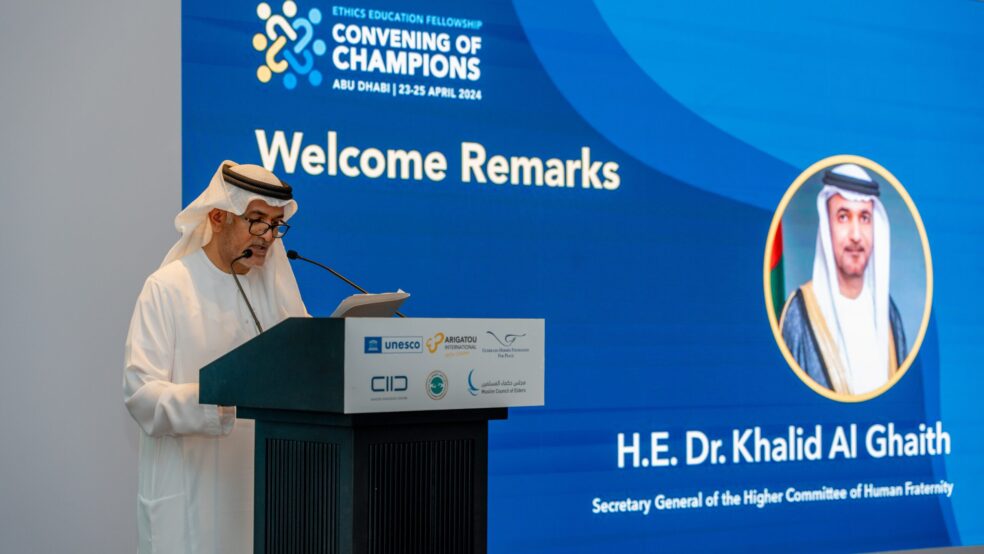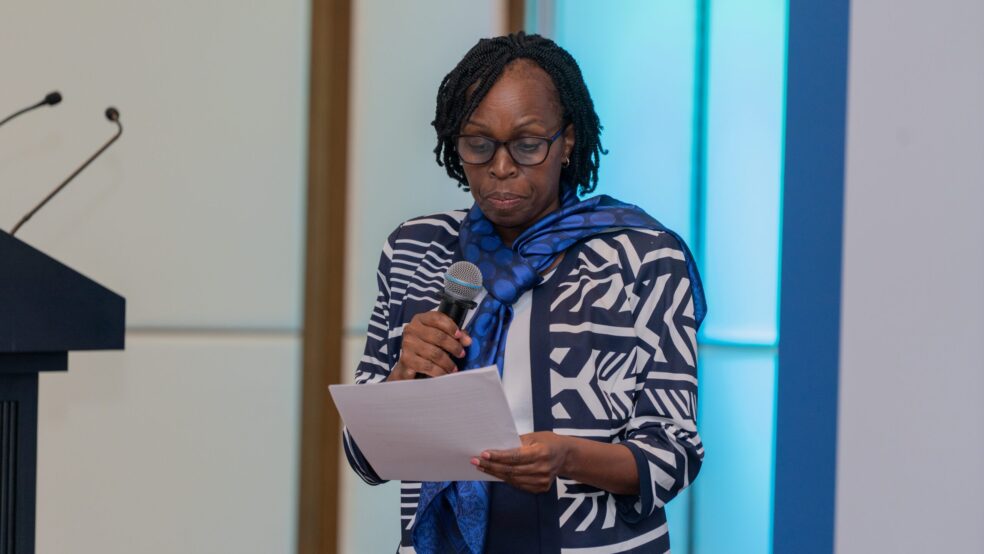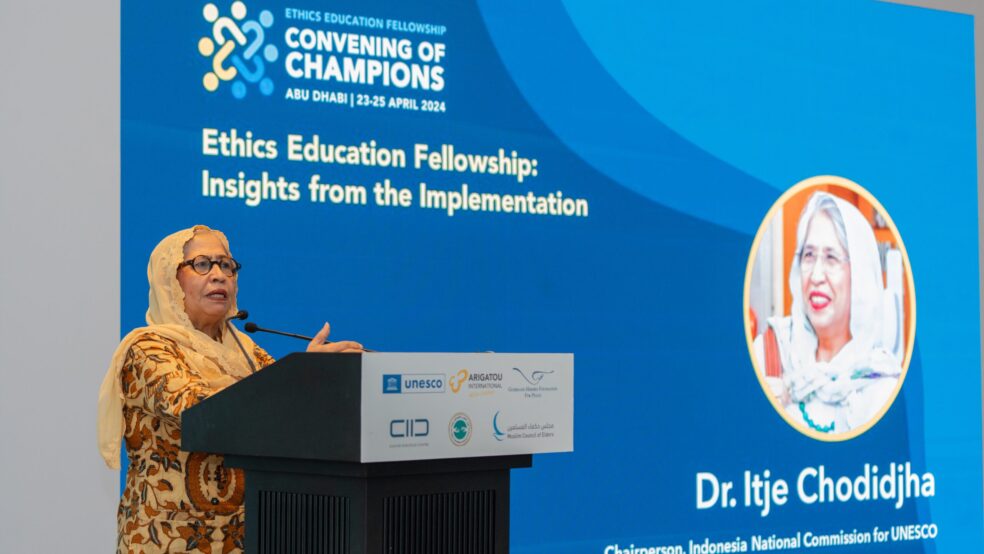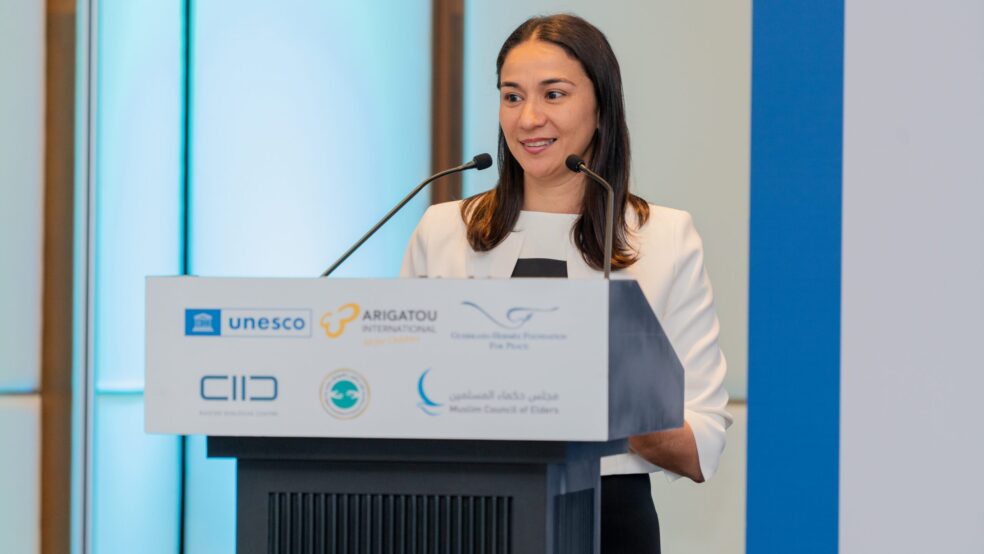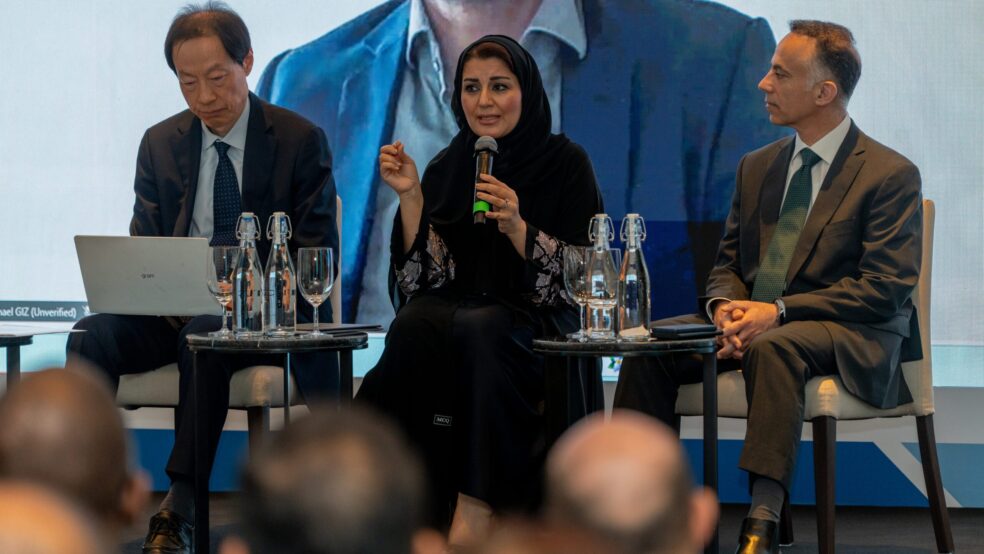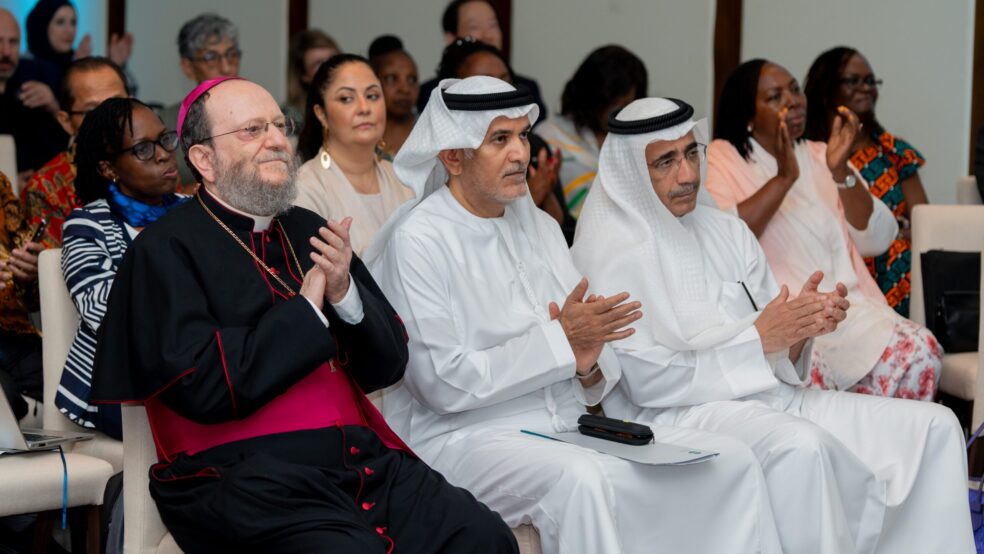26/11/2025 - We Are Transforming Education: Six Countries Share National Experiences in Ethics Education
On 11 November 2025, educators, policymakers, and partners from six countries came together for the webinar “We Are Transforming Education: National Examples to Promote and Integrate Ethics Education – Successes, Challenges, and Opportunities,” to share how they are reshaping national education systems through the Ethics Education Fellowship program.
The Fellowship is a collaborative initiative, implemented since 2022 with six ministries of education: Bangladesh, Indonesia, Kenya, Mauritius, Nepal, and Seychelles. Its goal is to integrate ethics education into national education systems, helping children grow as empathetic, responsible, and engaged citizens. It utilizes the Ethics Education Approach, which is based on intercultural and interfaith learning and dialogue, fostering critical thinking, ethical reflections and mutual understanding.
Ms. Maria Lucia Uribe, Executive Director of Arigatou International, opened the session, highlighting the crucial role of ministries of education in making change last. “We are shaping not only lessons, but relationships, school cultures, and social dynamics. We are, in essence, re-grounding education in human dignity,” she said.
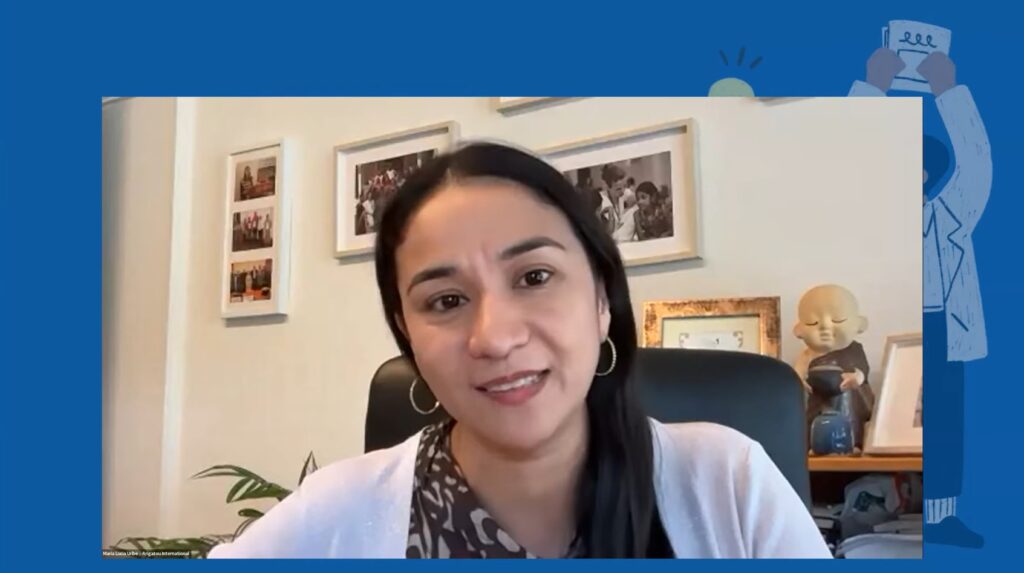
The Ethics Education Fellows, who lead the program in each country, together with other representatives, shared key achievements, innovations, and lessons learned from their journeys of integrating ethics education at the national level.
Bangladesh:
In Bangladesh, the program has gained strong momentum, expanding its reach to 42 schools and centering on five learning themes: self-awareness, dialogue, problem-solving, community engagement and respect for diversity.
Dr. A.Q.M. Shafiul Azam, Director of the Planning and Development Wing at the Directorate of Secondary and Higher Education, described how ethics education is being institutionalized in the country’s systems: teacher-training manuals, curricula and education policy. By embedding the approach in official materials, he said, the work is aligning with national goals for quality education and peacebuilding.
Indonesia
With over 1,400 teachers and 10,000 students directly involved, and dissemination reaching more than 22,000 educators, what began as a pilot has become a national movement. Indonesia’s program aligns with its curriculum reforms and draws from local cultural wisdom, in particular with its Pancasila profile and habituation learning.
“We try to engage parents, local government, universities, and communities to bring ethics education into a shared movement that connects school life with community values,” said Mr. Rudy Januarto, Principal of Karia Yosef Kindergarten.
Kenya
Representing Kenya, Dr. Ndegwa Gichuhi, Director of Policy, Partnerships and East African Affairs, and Ms. Mary Kangethe, Director of the Education Programme at the Kenya National Commission for UNESCO, explained how ethics education is being woven into national priorities. By aligning the program with competency-based education and Global Citizenship Education, and by using digital platforms and peer-learning networks, Kenya is integrating ethics into teacher professional development and curriculum planning.
On the ground, teachers are already seeing the impact: Mr. Samuel Maina of St. Annuarite Gatanga Secondary School said the program “has promoted respect and harmony. It has helped our students reduce conflict within the school. We have nurtured responsible students who now act with fairness and a sense of service.”
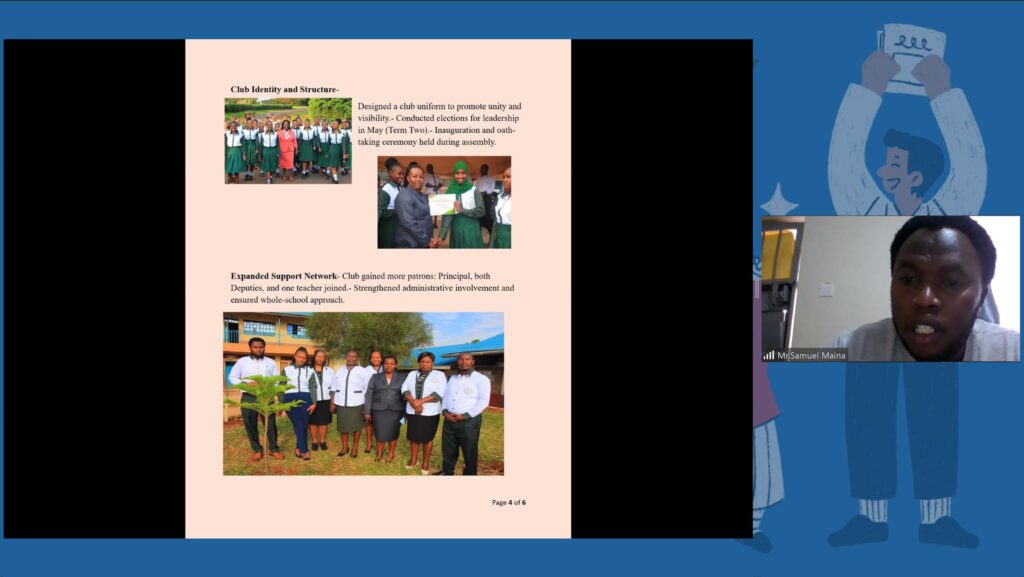
Mauritius
Ms. Mila Devi Sewruttun Doseiah, Director of the Mauritius Institute of Education, described a steady shift as ethics education is woven into life skills and social studies. Classroom discussions and community outreach are starting to foster greater empathy and intercultural understanding among students. “The emphasis on mutual respect and equitable participation has changed classroom dynamics, positioning students as co-creators of ethical knowledge rather than passive recipients,” she said.
Looking ahead, plans include launching ethics education clubs and short courses for educators to build long-term sustainability.
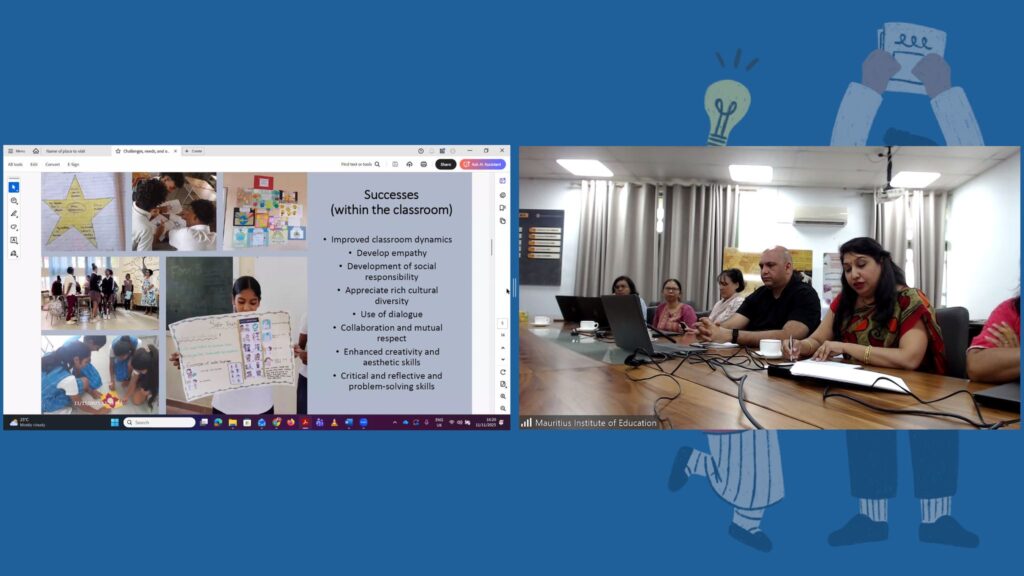
Nepal
Dr. Divya Diwadi, Deputy Secretary-General of the National Commission for UNESCO, explained that Nepal has integrated ethics education into teacher guides and curricula, with direct budget allocations from provincial governments demonstrating strong institutional commitment. The program has reached multiple districts and led to measurable improvements in students’ behavior, especially in respect, inclusion, and civic engagement.
Ms. Anjana Shakya, Chairperson of Himalayan Human Rights and actively involved in the Monitoring, Evaluation, and Learning process, shared powerful, heartening stories of students and teachers forging new friendships, challenging old assumptions, and creating more inclusive classroom dynamics. She described one school where pupils had previously sat apart by caste, religion, or gender; after participating in the program, they formed friendships across those divides and began spending more time together, becoming noticeably closer.
Seychelles
“Institutionalization has been one of our biggest achievements,” stated Ms. Erica Derjacques-Inacio, Director General of the Curriculum Leadership & Implementation Division, Education Services Department, Ministry of Education.
This year, ethics education was successfully integrated into personal and social studies as well as religious education. The country also developed a new diploma program at the Seychelles Institute of Teacher Education and produced two new learning modules. Ms. Derjacques-Inacio emphasized that teachers are reporting stronger student values, enhanced critical thinking, and more inclusive school cultures.
Two teachers enriched the discussion by sharing experiences from their classrooms. “In my school, ethics education has helped students develop values such as respect, honesty and compassion,” said Ms. Hildre Boniface. “It has encouraged them to think critically about moral issues and to make responsible choices in their daily lives.” “My greatest reward,” added Ms. Sharon Fredric, “is seeing my students grow in confidence.”
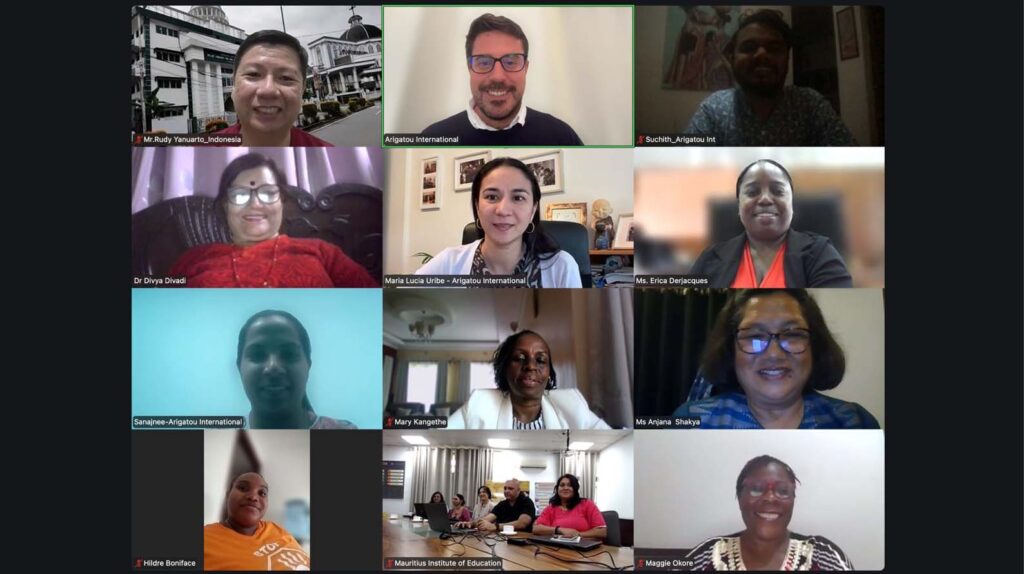
Across all six countries, teachers are seeing the same results: children are more empathetic, responsible, and aware of the issues that affect their communities. Classroom lessons are becoming real-world experiences rooted in dialogue, reflection, and service.
Dr. Margaret Okore from the Association for the Development of Education in Africa (ADEA) concluded:
“Transforming education is not just about systems; it is about people. It is about the choices we make, the examples we set, and the values we live by. When integrity guides leadership, when empathy informs teaching, and when learners are empowered to act with courage and conscience, then, and only then, will transformation be complete.”
The event was organized by the Ethics Education Fellowship partners: Arigatou International, the Guerrand-Hermès Foundation for Peace, Human Fraternity, KAICIID, and UNESCO, in collaboration with the six participating Ministries of Education, teacher training institutions, and UNESCO national commissions. Special thanks go to the Fellows for their unwavering commitment to children’s wellbeing and peacebuilding.
15/05/2025 - Breaking Cycles of Harm: The Impact of the Toolkit on Families in Brazil
In Brazil, the implementation of the Toolkit on Nurturing Values and Spirituality in Early Childhood has created a meaningful impact not only on parents, caregivers, and children but also on the trainers and facilitators involved. At Pastoral da Criança, the Toolkit has become a transformative force, reshaping the way the organization supports families and helping to break harmful cycles of violence by promoting the spiritual development of children.
Developed by the Consortium on Nurturing Values and Spirituality in Early Childhood for the Prevention of Violence, the Toolkit was adopted by Pastoral da Criança to foster a more compassionate and respectful environment in the families. Both facilitators and participants left the workshops feeling empowered to apply its principles in their daily interactions with children.
One such facilitator, Priscila do Rocio Costa, recalls with a bright smile the story of a mother who, after completing the sessions, was able to break the cycle of violence rooted in her own childhood trauma. Through discussions centered on children’s dignity and the importance of nurturing, respectful, and open communication, this mother experienced a profound shift in her understanding of discipline. “Before, she believed that to discipline her son or daughter, she needed to spank them, to hit them. That was her understanding based on her own childhood. So, over the course of the meetings, especially toward the end, she shared that she no longer spanked. She would take a breath, talk with her husband, call the children, and have conversations,” Priscila shared.
This change marked not only a new way of disciplining, but also a deeper understanding of herself as a parent. The Toolkit helped her break the intergenerational cycle of violence, adopting a more peaceful, empathetic way to address conflict and guide her children’s development.
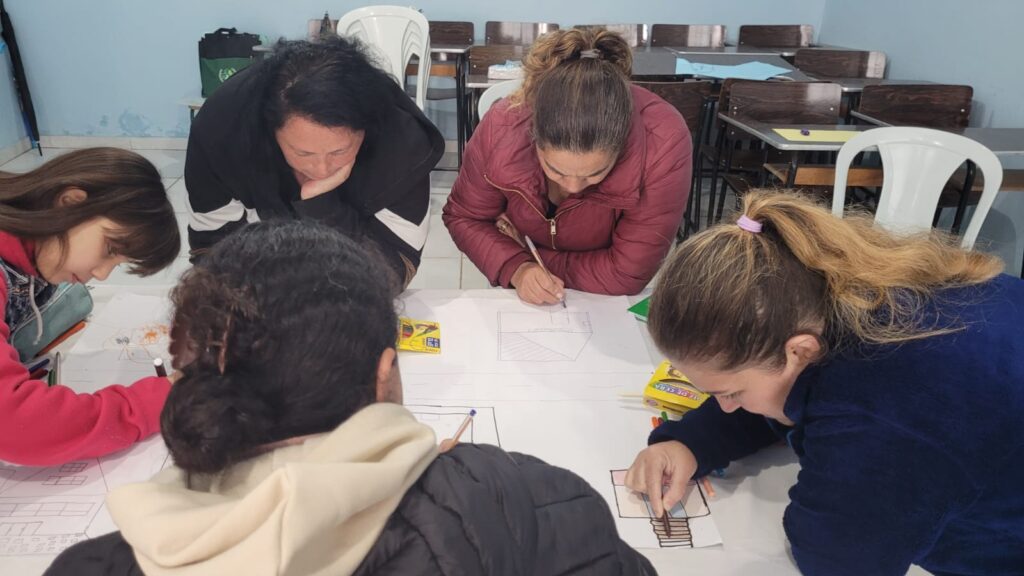
Another mother had a similar experience. She was struggling with her youngest son, who frequently threw tantrums and acted out. Before the Toolkit, her response was often violent. The sessions, however, helped her reconnect with herself, not just as a mother, but as an individual. “The project came right during this phase of his, and it helped me a lot to get to know myself as a person, as a mother, and to know how to handle situations where I felt desperate or in conflict with him,” she explained.
Throughout the sessions, she gained the tools and skills to better navigate moments of desperation and conflict, learning to stay calm and reflect before reacting. Over time, both she and her son became more peaceful. Her journey demonstrates how the Toolkit not only transforms parenting practices but also has a direct impact on children’s emotional well-being.
Facilitators themselves also experienced personal and professional growth. Josete Valim, described how the training reshaped her interactions with the families she works with at Pastoral. She now feels more confident and better equipped to support mothers in navigating challenges with their children. The training helped her approach families with more empathy and respect, creating an environment where parents feel safe sharing sensitive personal experiences. This understanding of their backgrounds allows her to help parents uncover the roots of their behavior and rebuild healthier, more trusting relationships with their children.
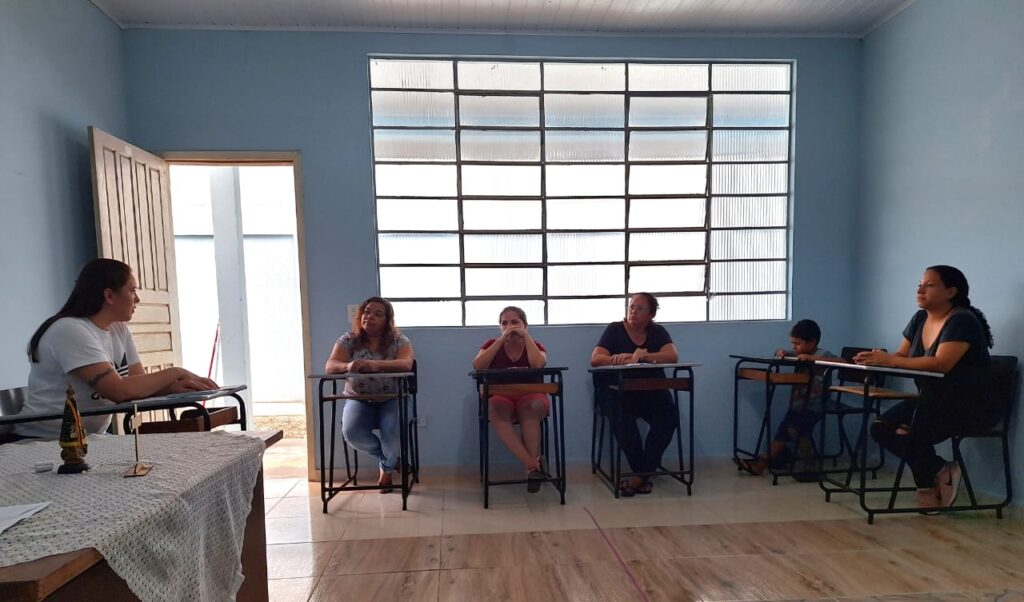
The Toolkit’s influence goes beyond individuals, it permeates organizational culture and practice. Maria das Graças Silva Gervásio, Coordinator of Pastoral da Criança, shared that the Toolkit offers more than theory: it provides a practical and experiential approach. “It helps the families, the people who participate directly in the sessions, to see how they behave, how they think, and they begin to change through the process. And as it includes a theoretical approach that can be adapted to reality, it enables not only personal transformation, but this transformation also has an impact on the community, on the family. And I think that is the greatest benefit of this Toolbox, because it enables this social transformation.”
For Maria, the Toolkit has transformed how her organization trains volunteers and engages with families. She is eager to expand its use in other communities, confident that it adds unique value to their work. What she values most, however, is the broader social transformation it enables—a sentiment echoed by Priscila, who shared, “The Toolkit transformed the whole family. The lessons from the meetings were taken home and helped create a welcoming, respectful environment.”
Ultimately, the Toolkit in Brazil is helping to break cycles of violence rooted in childhood trauma. Encouraging parents and caregivers to reflect on the causes and consequences of their actions promotes a different approach, one based on compassion, understanding, and the spiritual nurturing of the child. Its impact is not only personal or familial, but social, offering hope for a more peaceful future.
14/05/2025 - The Transformative Impact of the Toolkit on Nurturing the Spiritual Development of Children in Early Childhood in Pakistan
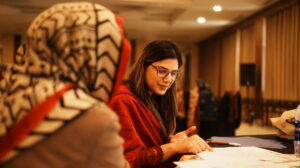
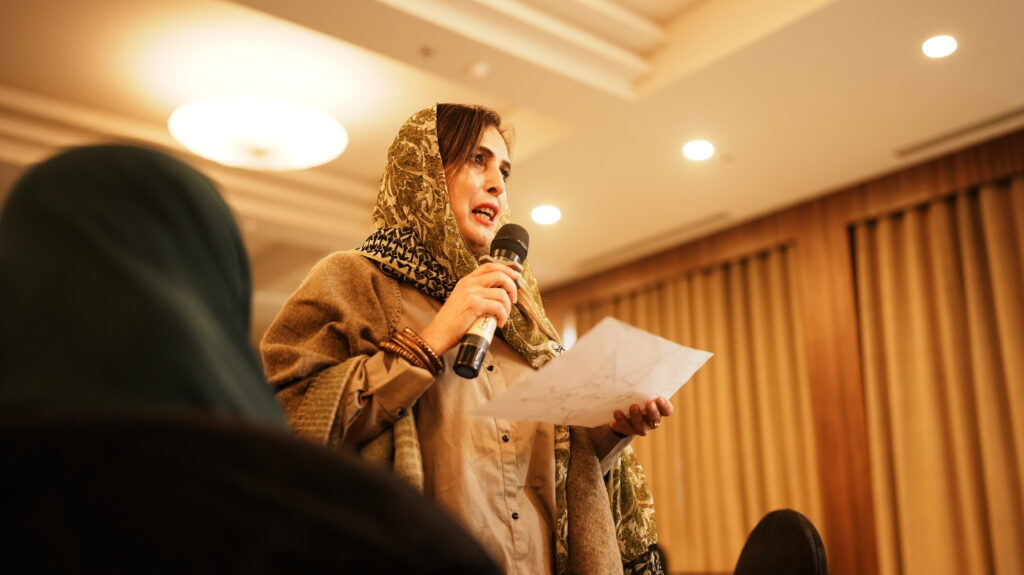
The Toolkit on Nurturing the Spiritual Development of Children in Early Childhood has had a profound impact in Pakistan since its implementation. Its transformative power shines through the reflections of faith leaders, facilitators, parents, and caregivers, each offering insight into how the Toolkit has positively contributed to their families and communities.
Parents experienced personal growth and deeper connections with their children. Facilitator Alina Afzal was particularly moved by the transformation she observed among widowed mothers. “Often marginalized by society while selflessly dedicating themselves to their children, these women experienced, for the first time, a profound connection with themselves,” she noted. “It gave them a renewed sense of strength and empowerment. They began to recognize their intrinsic value and worth.” Alina believes this awakening will lead to long-lasting benefits for both the women and their children, illustrating the Toolkit’s intergenerational impact.
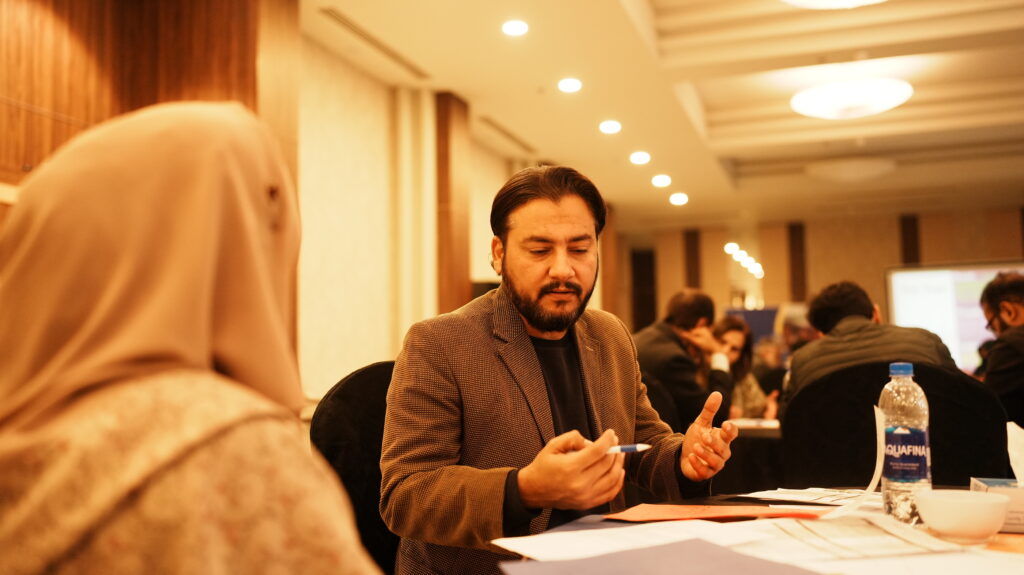
One mother shared how the training reshaped her relationship with her children. “I now understand how important it is to connect with my children in a compassionate and understanding way,” she said. Previously harsh and distant, she described how the Toolkit helped her recognize the harmful effects of violence and adopt a more nurturing approach. “Now, I speak to them calmly and try to explain things. As a result, they’ve started sharing more with me.”
This mother also spoke about newfound moments of connection, such as playing outside with her children, a simple yet meaningful action that helped build trust. Reflecting on her own growth, she shared, “I didn’t know how to handle things before, but now I feel calm and equipped.”
Faith leaders, too, experienced a shift in mindset. For Naeem ur Rehman, a local religious leader, the Toolkit was a turning point in his understanding of child abuse. “We weren’t paying enough attention to what children go through when they experience abuse,” he admitted. Inspired by the training, Naeem began promoting forgiveness and kindness as alternatives to harsh discipline, aligning his message with the values of his faith.
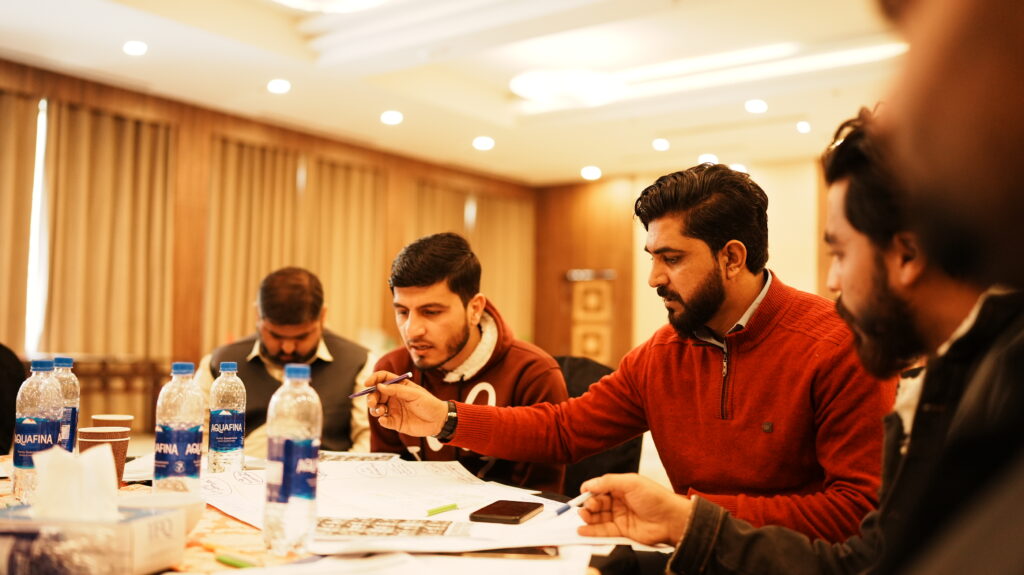
Naeem has since become an advocate against violence, using his platform to raise awareness in mosques, schools, and the wider community. He encourages parents and caregivers to reflect on their practices and adopt non-violent methods rooted in compassion and religious teachings. The Toolkit empowered him to move from passive observation to active intervention, becoming a voice for change.
For faith leaders like Naeem, the Toolkit offers a valuable framework to address child protection in a way that resonates with their beliefs. It not only supports their work but inspires them to challenge harmful norms and promote nurturing, non-violent parenting.
The Toolkit didn’t just impact children and the participants, but the organization itself. Shahnaz Kausar, Childcare Coordinator at Islamic Relief Pakistan, described the Toolkit as “not only impactful, but essential for every organization working for children.” Her endorsement underscores the Toolkit’s potential to transform the work of all those engaged in child development. “It goes beyond traditional programming,” she shared, “and plays a vital role in the lives of communities, especially those working for the well-being of children.”
Shahnaz also highlighted the inner transformation of children as one of the most remarkable outcomes. Beyond fostering awareness of safeguarding and protection, she and other facilitators observed children developing values like empathy, self-awareness, and compassion. “We witnessed an inner transformation grounded in values, along with the seeds of broader social change,” she explained. These values, deeply rooted in spiritual development, nurture a sense of responsibility and empower children to contribute positively to their communities.
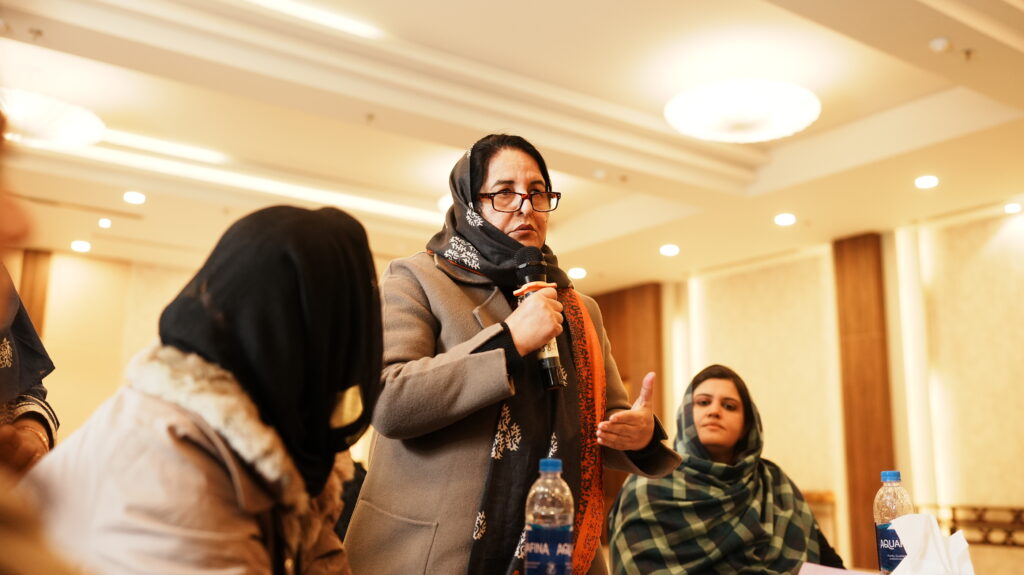
The positive impact of the Toolkit in Pakistan is undeniable. It has contributed to the prevention of violence against children and promoted their holistic well-being, with a particular emphasis on spiritual development. It has helped reshape parenting practices, strengthen family bonds, and empower children to trust and communicate more openly.
Individuals like Alina have found renewed purpose in advocating for child protection. As she powerfully stated, “It is crucial for all of us, as members of society, to speak up against violence and raise awareness. By doing so, we not only strengthen ourselves but also our communities.”
28/04/2025 - A Groundbreaking Toolkit Is Empowering Families and Preventing Violence in Early Childhood
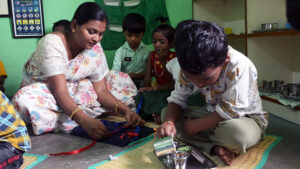
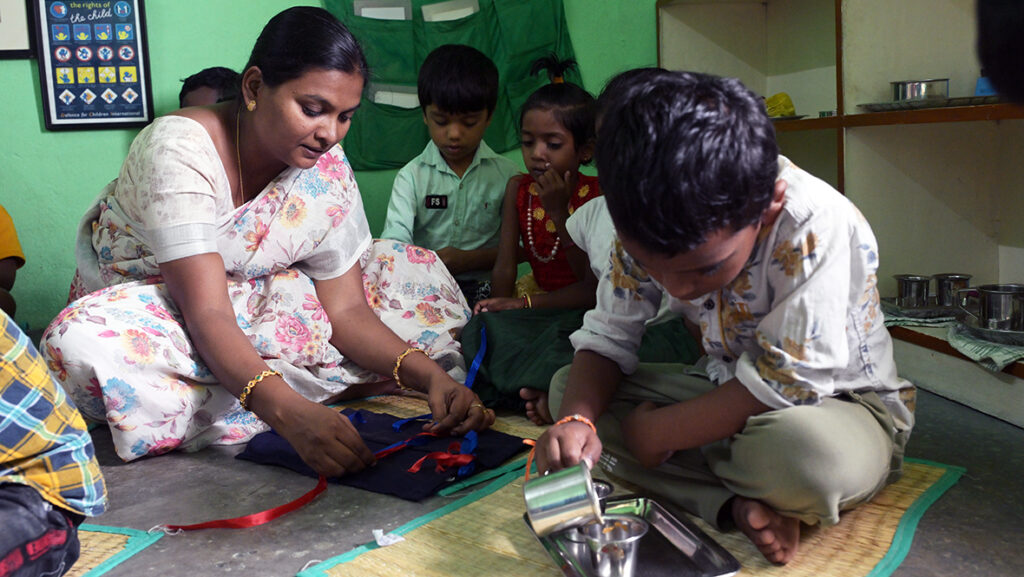
“My child became my friend in a new way. He started telling me everything… That’s one of the biggest benefits I’ve seen.”
– Parent, Tanzania
Across six countries, Brazil, India, Mexico, Pakistan, Sri Lanka, and Tanzania, a transformation is underway. Parents are becoming more patient, children are more peaceful and emotionally aware, and homes are safer, more nurturing places to grow and flourish.
At the heart of this movement is the Toolkit: Nurturing the Spiritual Development of Children in the Early Years, developed by the International Consortium on Nurturing Values and Spirituality in Early Childhood for the Prevention of Violence. Launched in November 2022, the Toolkit provides practical guidance for caregivers, educators, and faith actors to support children’s spiritual development while actively creating the conditions for their protection from violence and for the promotion of their holistic well-being.
Since its introduction, 279 trainers, facilitators, and educators have been trained on how to deliver training sessions and workshops with parents and caregivers. 1,860 parents and caregivers have participated in the workshops across all six countries, which benefited over 5,500 children.
From challenging cycles of violence and neglect to promoting resilience, empathy, and peaceful upbringing, the Toolkit is helping families reimagine parenting in ways that foster connection and understanding.
In Brazil, Pastoral da Criança incorporated the Toolkit into its Celebração da Vida program and adapted it for a mobile app to support home visits. Monthly workshops, held with the support of local universities, helped caregivers learn how to better connect with their children.
“With the knowledge I gained from the course, I am now more patient with my daughters… They no longer misbehave to get my attention, which helps avoid stress for both them and me,” shared a parent.
In Mexico, the implementation of the Toolkit is being led by the Franciscan Sisters and World Vision Mexico. It has been implemented in four states and integrated into “Escuelas para Padres” (Parents’ Schools) and parishes.
“My children have noticed the difference… Before, I used to get angry, but now I understand them better. I have more patience… I understand that they miss their mom, and I must fill that role,” said a widowed father from Veracruz.
Shanti Ashram integrated the Toolkit into their Bala Shanti program (Early Childhood Development Centres) across Coimbatore, serving families in nine villages characterized by multicultural and multireligious diversity. Parents and caregivers took part in Toolkit sessions that explored child rights and non-violent parenting. In communities where corporal punishment remains common, the shift was profound.
“I was repeatedly reminded not to beat or threaten my child… It made me reflect on the times I had done so, and I decided to change,” shared one of the mothers. “My son used to hit others, but now he no longer fights. He speaks with respect… As a mother, this makes me incredibly happy,” she added, noting how her transformation made an impact in her child’s behaviour.
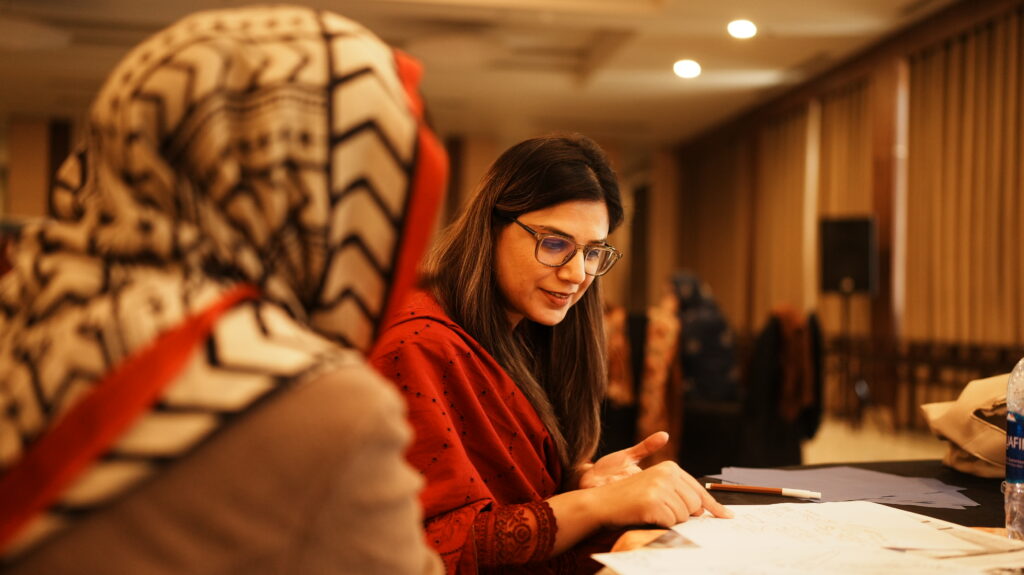
Echoing this sentiment, a mother in Pakistan said, “After taking the training—Masha Allah—it brought a big change in me. I realised that yelling and fighting doesn’t help. It negatively affects the child’s mental health.”
Islamic Relief spearheaded the program in Pakistan, reaching both urban and rural areas through intensive sessions and remote follow-ups. The experience empowered caregivers in meaningful ways. “The widowed women… felt marginalised by society while dedicating themselves to their children. For the very first time, they experienced a profound connection with themselves… They began to recognise their intrinsic value and worth,” noted Ms. Alina Afzal, Assistant Child Care Officer at Islamic Relief Pakistan, and trainer of the Toolkit.
The Sarvodaya Movement in Sri Lanka integrated the Toolkit into pre-schools and community kitchens, complementing nutrition programs with emotional and spiritual development.
“While we often get frustrated with our children’s behaviour, this workshop helped me understand how to manage and balance those emotions… It also helped me teach my child about spirituality,” said a preschool teacher.
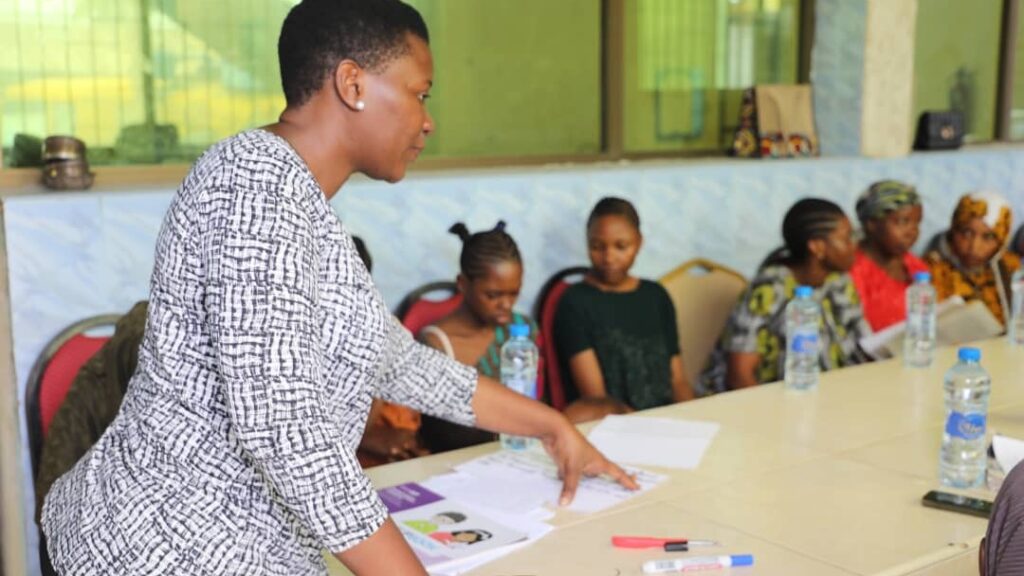
Four faith-based organizations—including the Baha’í, Shia and Mennonite communities, and Ladies Joint Forum—began sessions in mid-2024 in Tanzania. The change was immediate and deeply felt.
“I wasn’t close to my son. But after joining this program, something amazing happened. He started telling me everything—what he experiences at school and in the neighborhood. That’s one of the biggest benefits I’ve seen. This program brought real change,” shared a mother.
The Toolkit has demonstrated that protecting children starts with building peace at home. When parents gain the tools to listen, reflect, and respond with love, families flourish, and so do children.
Beyond behavioral change, participants report deeper emotional bonds, greater confidence, and an increased sense of self-worth. In every setting, the Toolkit’s flexible design has made it adaptable to diverse cultures, languages, and traditions, affirming the universal need to protect and nurture childhood.
We extend our heartfelt thanks to the Fetzer Institute, Porticus North America, and Smart Peace for believing in the power of early childhood development rooted in values and spirituality.
We also deeply thank all the Consortium member organizations for their unwavering collaboration, dedication, and commitment to children’s well-being.
Learn more about the Consortium and it’s work, here: https://childspiritualdevelopment.org/
14/03/2025 - Ensuring Accountability and Action: Side Event at the 58th Human Rights Council Highlights Urgent Need to End Violence Against Children
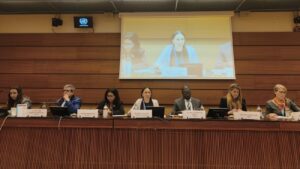
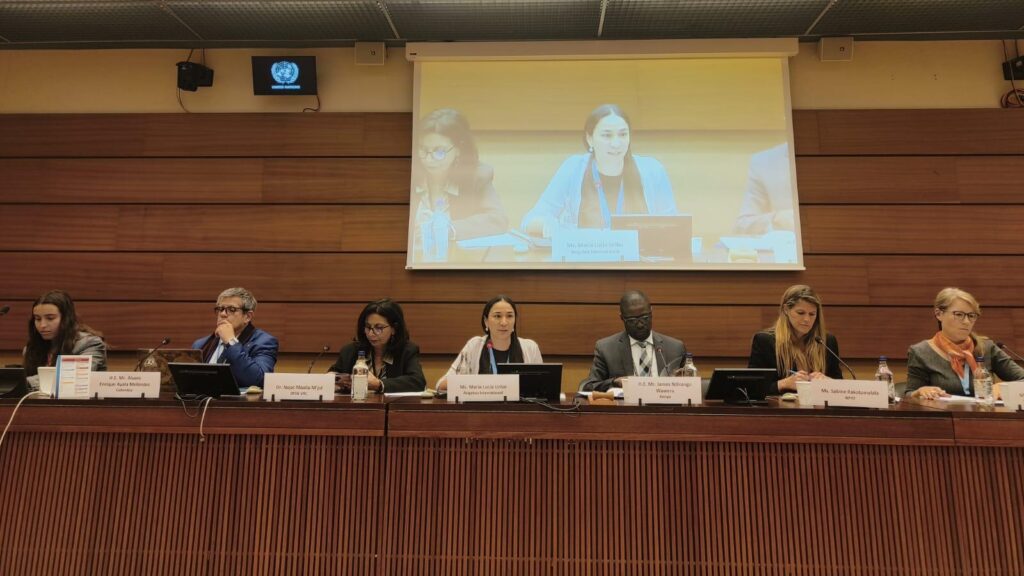
Geneva, 13 March 2025 – A high-level side event at the 58th session of the Human Rights Council brought together around 140 participants, both online and in person, including representatives from 24 Permanent Missions to the UN in Geneva. Organized by the Child Rights Connect Working Group on Children and Violence, in collaboration with Arigatou International, Lumos, Plan International, Terre des Hommes, the United Nations Office on Violence against Children, the World Health Organization (WHO), and World Vision International, the event reinforced the urgent need for sustained accountability and action to end violence against children. The event was co-sponsored by the Permanent Missions of Kenya, Colombia, and Canada to the United Nations in Geneva.
The discussion was built on the momentum generated by the Global Ministerial Conference in Bogotá (2024), where over 120 governments pledged to end violence against children. Panelists stressed the need to translate these commitments into real, measurable change.
Ms. Maria Lucia Uribe, Executive Director of Arigatou International – Geneva, moderated the panel and set the tone for the discussion, referencing a powerful message delivered by children at the Annual Day on the Rights of the Child: “We have heard from you, but sometimes what you promise is change, and the promises don’t get fulfilled.” She emphasized the need for collaboration between states, organizations, and civil society to hold governments accountable.
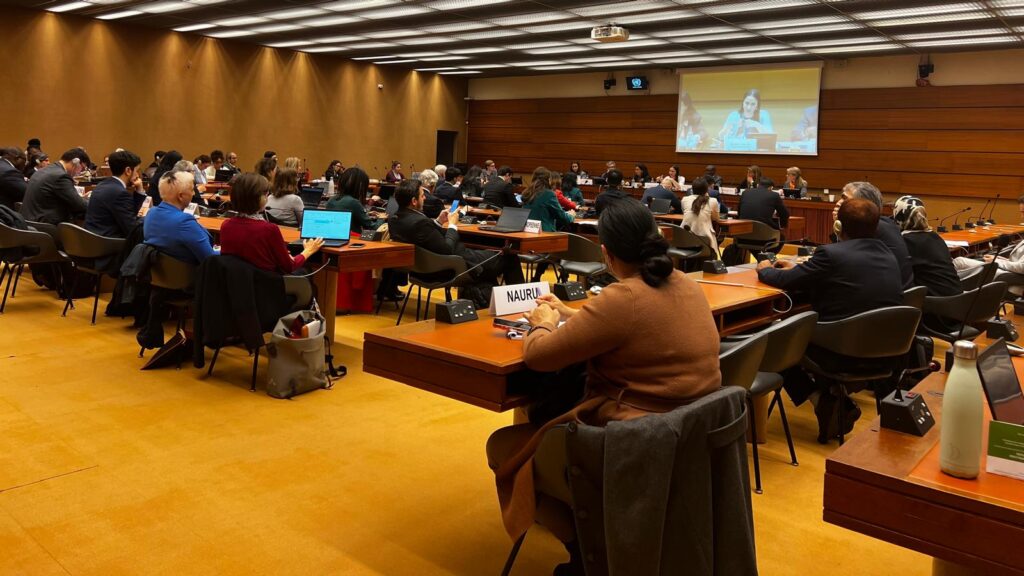
International human rights mechanisms are instrumental in ensuring accountability, but panelists stressed that true progress requires cooperation across sectors. H.E. Ambassador Álvaro Ayala, Deputy Permanent Representative of the Republic of Colombia, highlighted this by recalling his country’s legislative progress, stating: “Colombia has taken a decisive step toward breaking the harmful cycle of violence. In 2021, law 2089 was enacted explicitly to prohibit the use of corporal punishment, the elimination of degrading treatment, and any form of violence as a method of correction or against children or adolescents.”
A powerful moment in the event was the participation of six children from Colombia, Ecuador, Kenya, and Nepal, actively involved in Ending Violence Against Children (EVAC) initiatives. They shared their perspectives through video messages, highlighting the urgent need for governments and institutions to uphold their commitments. Their voices added depth to the discussion, reinforcing that children must not only be heard but also meaningfully involved in decision-making processes. Jaskiran from Kenya spoke about the importance of tackling cyberbullying and digital safety, calling for “immediate responses to cyberbullying cases so that delays don’t perpetuate violence.” Similarly, Chetan and Sahadip from Nepal called for meaningful youth participation: “Governments should organize meetings where children and young people can share their ideas and help plan actions to meet international commitments. Our voices matter in saving the future.”
Dr. Najat Maalla M’jid, Special Representative of the UN Secretary-General on Violence Against Children, stressed: “We need to translate [commitments] into action quickly (…) and we need to make sure that we have children on board.” Echoing this, H.E. Ambassador James Ndirangu Waweru, Deputy Permanent Representative of the Republic of Kenya, pointed out the cultural shift needed to protect children: “Corporal punishment was once normal. Today, if you attempt it in Kenya, you will find yourself as a guest of the state—not in the State House, but in prison, because punishment has been prohibited.”
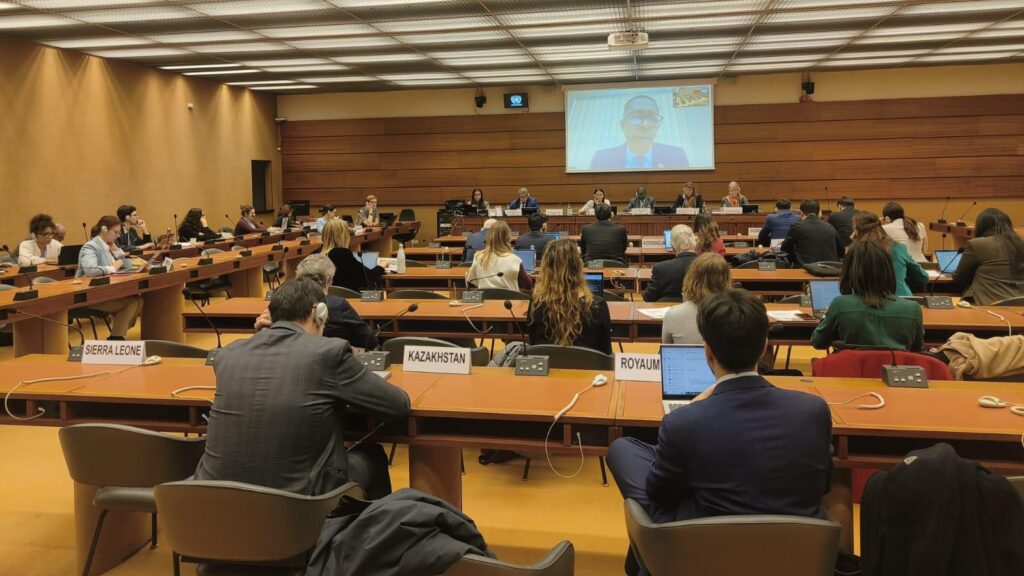
Concrete steps toward accountability were outlined. Professor Benyam Dawit Mesmur, Member of the UN Committee on the Rights of the Child, highlighted the need for focus on both emerging issues like cyberbullying and longstanding threats such as corporal punishment. Meanwhile, Ms. Sabine Rakotomalala, Senior Technical Officer at WHO, announced a digital dashboard to track country commitments, a one-stop platform to monitor pledges, policies, and progress—ensuring transparency and accountability at every step.
The event ended with a call to turn words into action. Ms. Anne-Marie Vuignier, UN Representative for Geneva at World Vision International, stressed: “Pledges without action are just words.” The discussion underscored that ending violence against children is not just a long-term goal—it is an immediate necessity. Moving forward, participants called for stronger political will, financial investment, and sustained collaboration to protect every child, everywhere. Final statements were made by representatives from Canada and Mexico, reaffirming their countries’ commitments and progress to ending violence against children, including cross-sector efforts on positive parenting and violence-free schools.
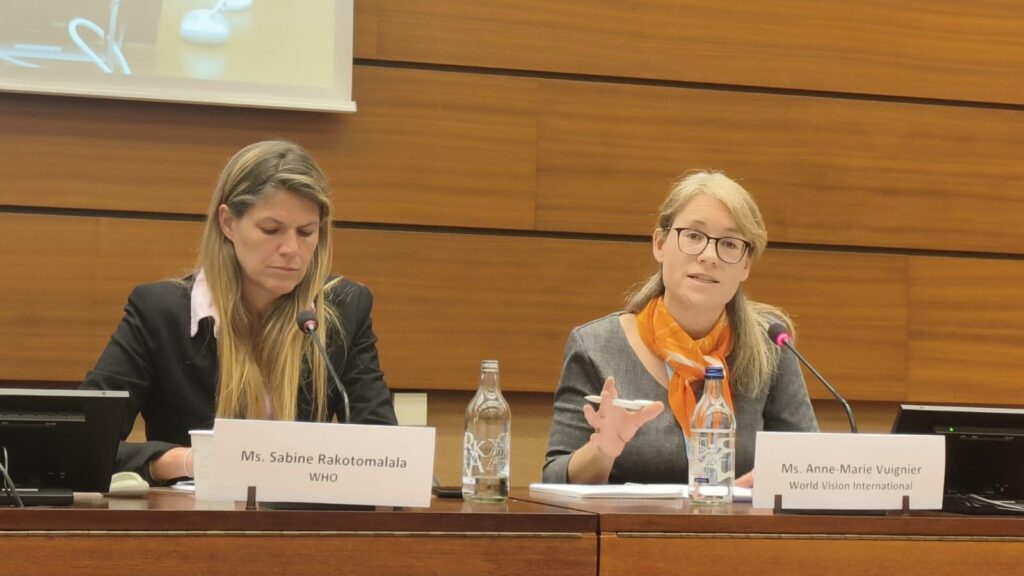
The post Ensuring Accountability and Action: Side Event at the 58th Human Rights Council Highlights Urgent Need to End Violence Against Children appeared first on Ethics Education for Children.
13/03/2025 - Statement at the 58th Session of the Human Rights Council – Annual iscussion on rights of the child
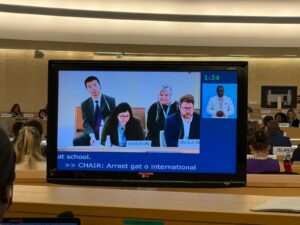
Human Rights Council 58th session
Annual Discussion on the Rights of the Child
(HRC res. 7/29 and 55/29)
13 March 2025
Statement delivered by Ms. Emma Nowotny, Child Rights Program Officer, Arigatou International – Geneva
Arigatou International welcomes the discussions on child rights and early childhood development, and the important views and recommendations that children shared.
According to WHO, six in ten children under five experience physical or psychological violence from caregivers. This perpetuates cycles of abuse, but evidence shows that supporting parents, promoting positive parenting, challenging harmful norms, and strengthening legal protections can foster healthy child development.
In line with General Comment No. 7 (2005), we call for a holistic approach to child development interventions to ensure access to health, nutrition, early education, protection from violence and neglect, and the meaningful participation of children. Strengthening these foundations is critical to lifelong well-being, inclusion, and the prevention of violence against children.
We call on governments, decision-makers, and civil society to:
- Address the social, emotional, and spiritual needs of children in the early years, as part of their holistic development, recognizing the role that nurturing children’s spiritual wellbeing plays in fostering their resilience, empathy, positive relationships, and ethical development.
- Equip parents, caregivers, and educators to nurture children’s holistic development, providing them with knowledge about the impact of violence in early childhood development and with tools and skills on positive parenting; as well as mental health and psychosocial support, particularly in fragile and conflict-affected contexts.
- Engage faith communities as allies in challenging social and cultural norms that condone violence in child upbringing by creating spaces for reflection on religious practices that affirm human dignity and addressing violence through theological reflections.
Today’s education gaps, growing mental health crises, and rising narratives of exclusion and hate threaten children’s dignity, safety, and sense of belonging. These realities underscore the urgent need to nurture children’s holistic well-being as a pillar of resilience and social cohesion.
To conclude, we urge all States and organizations to adopt multi-sectoral approaches, fostering collaboration beyond silos to create effective mechanisms for child protection and empowerment.
The post Statement at the 58th Session of the Human Rights Council – Annual iscussion on rights of the child appeared first on Ethics Education for Children.
07/03/2025 - Indonesia Ignites a National Movement for Ethics Education
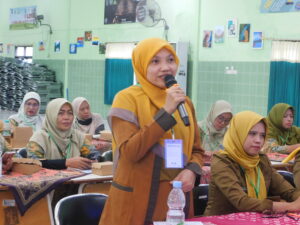
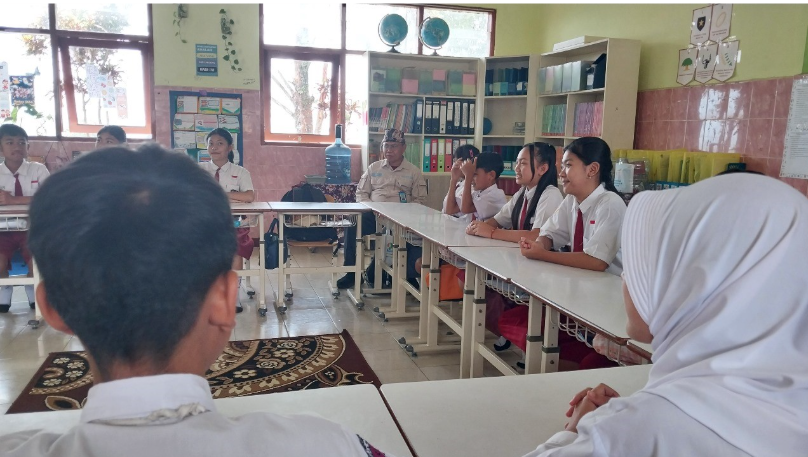
The Ethics Education Fellowship is transforming classrooms, empowering students, and contributing meaningfully to Indonesia’s Pancasila Student Profile (P5). At the forefront of this movement are the Fellows, organizing training workshops, practical guides, and online modules to support teachers in integrating ethics education into everyday learning.
Launched in 2022 by Arigatou International, the Guerrand-Hermès Foundation for Peace, KAICIID, the Higher Committee of Human Fraternity, and UNESCO, the Fellowship has reached thousands of students across six countries. In Indonesia, its second phase began in October 2024, aiming to scale its impact and build sustainable structures for ethics education across the nation.
The second phase of the Fellowship in Indonesia now includes 574 schools and is expected to reach over 90,688 students, a tenfold increase from its initial reach. Workshops, online learning, and collaborative meetings have empowered hundreds of teachers to implement transformative approaches. Technology and digital tools have also enabled the program to reach more remote and underserved areas, ensuring equitable access.
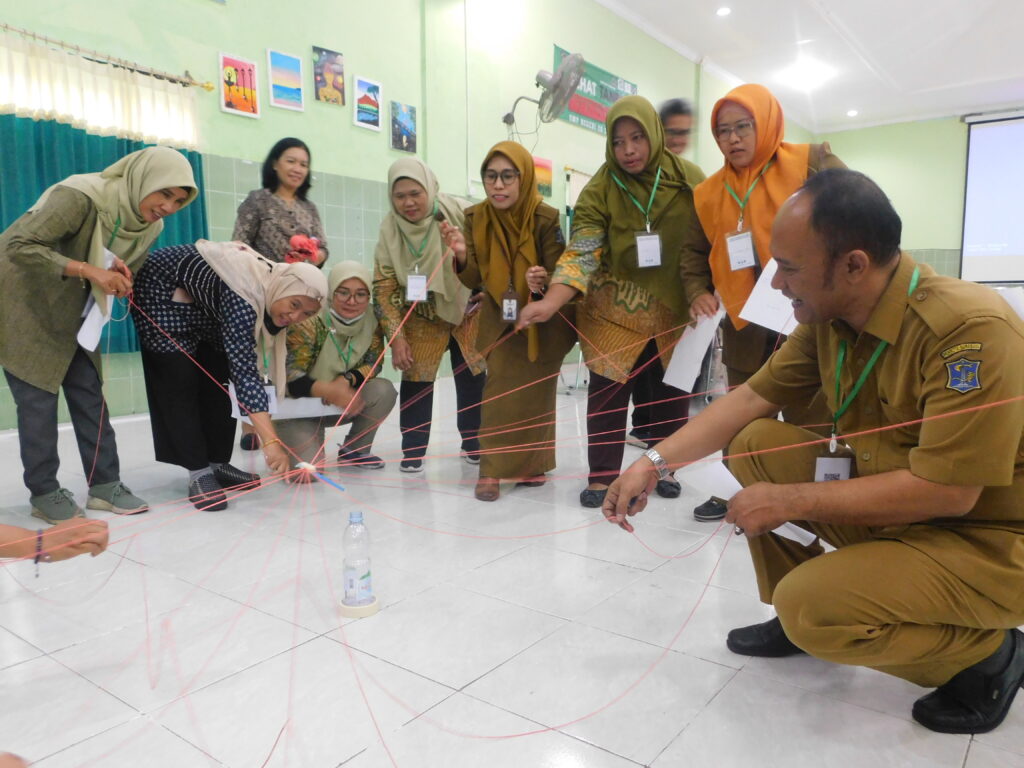
With support from the Ministry of Education and the National Commission for UNESCO, Indonesia has embedded ethics education within its education goals, aligning it with the Pancasila Student Profile. The Ethics Education Fellowship complements the P5 project by providing teachers with the skills, tools, and mindset needed to nurture holistic learners, students who are not only academically competent but also morally grounded and socially responsible.
A visit to Torongrejo School highlighted this integration in action. Through classroom observations and interviews with teachers, students, and administrators, it was evident that the combination of ethics education training and P5 implementation had elevated the school’s ability to foster ethical reflections. Classrooms became more inclusive, learning was more collaborative, and the school community more connected.
Educators across the participating schools reported a marked shift in classroom dynamics following the integration of ethics education. Students are showing increased openness, empathy, and collaboration, especially among those from different religious, cultural, and socioeconomic backgrounds. Teachers have observed stronger bonds of solidarity, mutual respect, and a sense of shared responsibility for the well-being of others.

Many students are also taking greater initiative in solving classroom and school-wide challenges. Teachers report that children now listen more attentively to each other, offer support to peers with special needs, and engage more actively in shaping group norms and class agreements. As one teacher noted, “We no longer just teach ethics; our students are living it.”
The transformation hasn’t been limited to students. Teachers themselves describe their relationships with students as becoming more open and respectful. Many report a renewed passion for teaching, enjoying more participatory, student-centered lessons and creating classroom environments that feel safe and inclusive.
“Ethics education offers many benefits, particularly in creating a child-friendly learning environment,” said Mrs. Nunung Herawati, a participating teacher. “It’s not just about what we teach, but how we teach, focusing on the process and respecting the dignity of every learner.”
Mrs. Oni Arlitasari echoed this sentiment, saying, “Through the training, I learned how to integrate children’s rights into the learning process and ensure they are respected and fulfilled.”
One of the most tangible and inspiring outcomes of the Fellowship has been the growth of environmental character development projects in schools. These initiatives empower students to turn lessons into action.
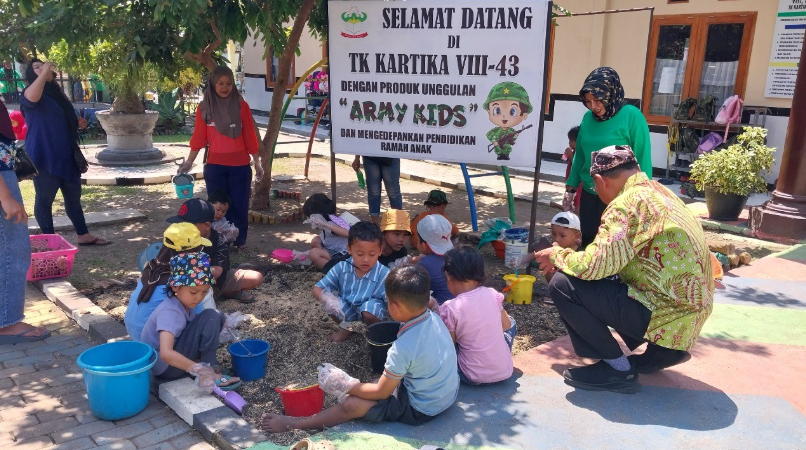
Schools are cultivating land to grow vegetables, fruits, and legumes, often transforming unused spaces into school gardens. These gardens not only strengthen students’ sense of responsibility and connection to nature but also deliver economic benefits. Produce is sold directly or turned into ready-to-eat snacks for resale, generating income for school activities.
Waste management has also taken center stage. Students sort and process waste into compost or craft materials. These projects give students hands-on experience with sustainability while deepening their understanding of ethical choices in the real world.
In March 2025, the Ministry of Education convened a final evaluation workshop, bringing together educators, policymakers, and civil society actors to reflect on successes and chart a course for the future. The session reinforced a collective commitment to institutionalize ethics education as a cornerstone of national character development.
By putting ethics at the heart of education, Indonesia is contributing to building peaceful, inclusive societies and advancing SDG Target 4.7, which calls for education that fosters global citizenship, sustainability, and human rights.
07/03/2025 - Empowering Educators in Mali: A Workshop to Build Safe and Resilient Learning Environments
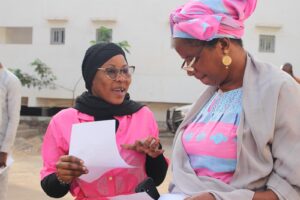
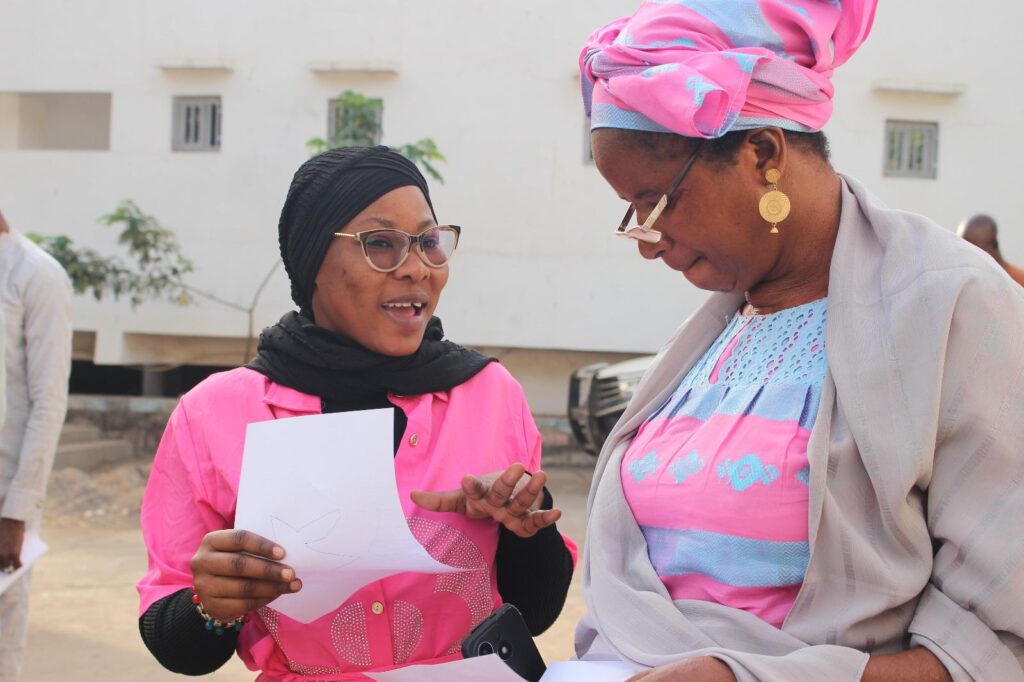
A training of trainers workshop was held in Bamako, Mali, from 3 to 7 March 2025, under the theme: “Creating Safe, Favorable, and Resilient Learning Environments to Protect Children’s Right to Education in Times of Conflict and Crisis.” The workshop brought together 28 educators, teacher trainers, and school leaders from across the country to strengthen their ability to foster safe, inclusive, and supportive classrooms—even amid conflict and crisis.
Facilitated by Ms. Eleonora Mura, Senior Expert on Ethics Education at Arigatou International – Geneva, the workshop is part of a broader regional initiative led by UNESCO-IICBA, UNESCO Mali, and the Ministry of Education of Mali, with support from the Government of Japan. The initiative is also being implemented in Burkina Faso, the Central African Republic, South Sudan, Chad, and Niger.
Throughout the five-day training, participants engaged deeply with transformative pedagogy approaches that integrate peacebuilding, gender-responsive practices, and mental health and psychosocial support (MHPSS). The workshop emphasized learner-centered strategies aimed at safeguarding children’s well-being and promoting resilience in their educational journeys. “I find the transformative pedagogy approach very relevant to mobilize the knowledge and competencies of learners and to co-develop learning opportunities in the classroom,” shared one participant, reflecting the collective enthusiasm for practical tools that respond to students’ needs.
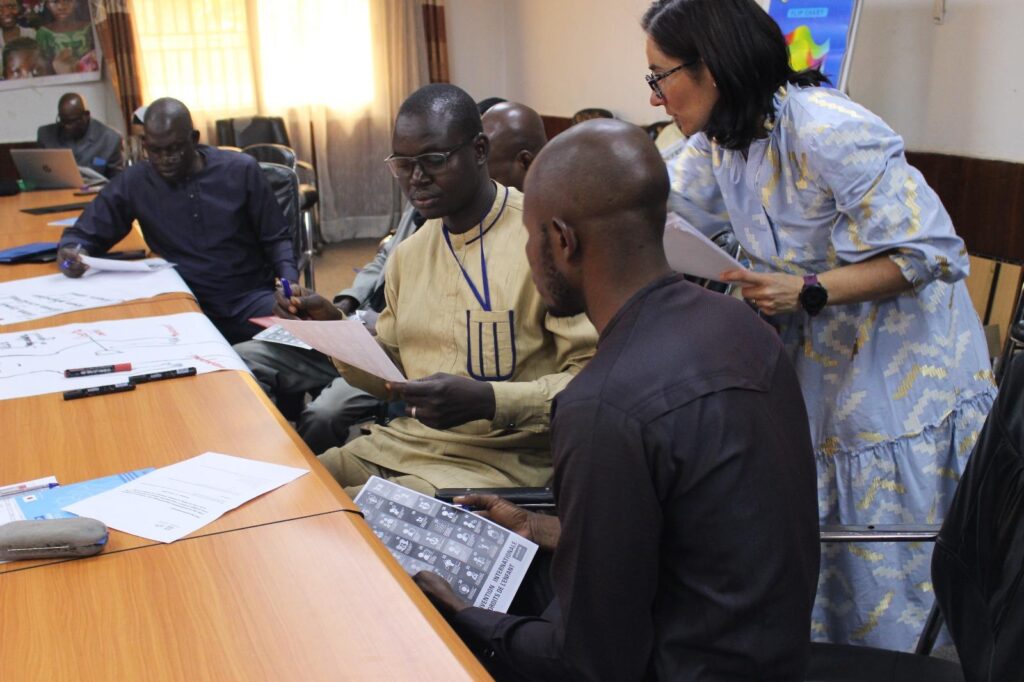
Participants also recognized transformative pedagogy as a powerful tool to improve communication and build learners’ confidence.“One thing I learned during this workshop is that transformative pedagogy can be used by teachers to boost students’ confidence,” said one educator. Another added, “This workshop helped me understand how improving communication with learners is key—not just for solving problems, but also for fostering honest dialogue and meaningful exchanges in the classroom.”
Participants explored concrete strategies for creating safe school environments and for training others in their communities. This effort lays the groundwork for a national network of empowered educators who can expand the reach and impact of this training across Mali.
A particularly moving moment came when one participant shared: “Particularly as we live in a situation of war that has been imposed on us, we can use what we learned in this workshop to bring peace to our schools.”
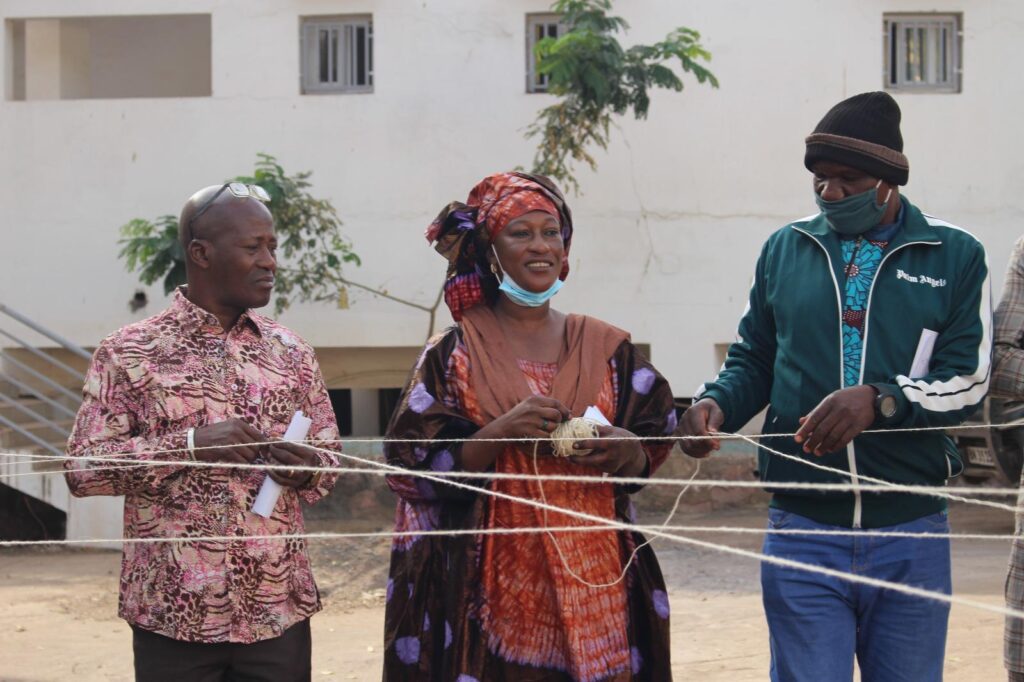
As Mali continues to face immense challenges, this initiative stands as a powerful testament to the resilience of its educators and their unwavering commitment to children’s right to education. The workshop represents an important step toward peace, empowerment, and educational transformation in the region.
Arigatou International – Geneva is honored to contribute to this initiative. We extend our heartfelt thanks to our partners for recognizing the impact of our pedagogical approach and for entrusting our team to lead this Training of Trainers workshop.
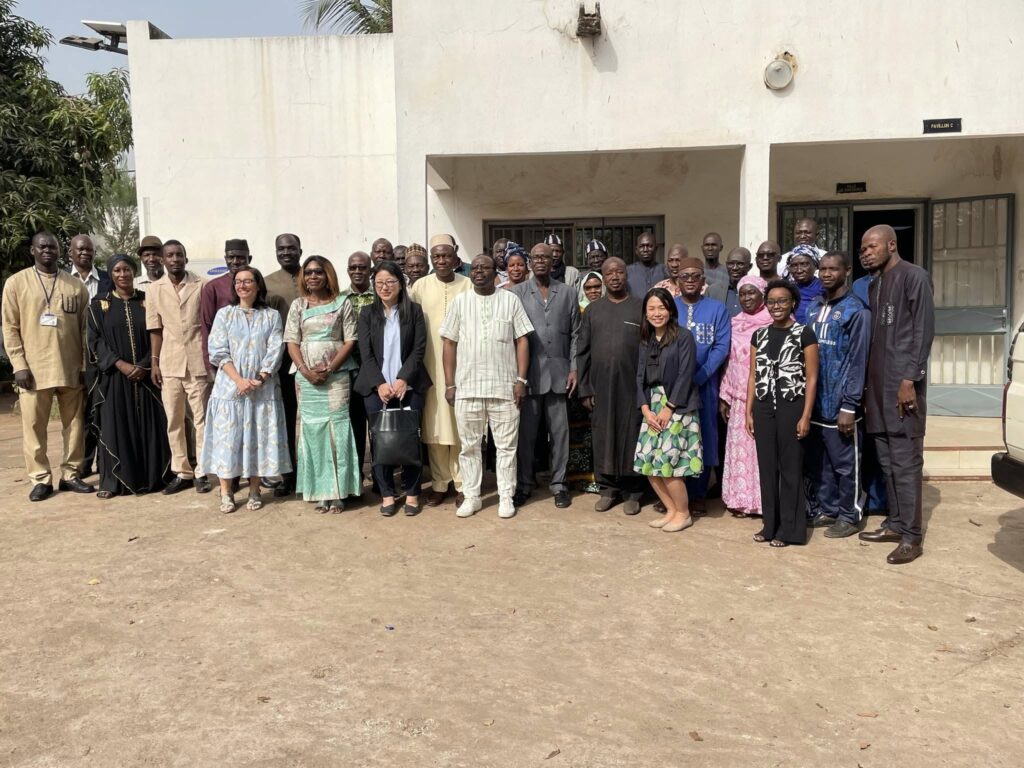
The post Empowering Educators in Mali: A Workshop to Build Safe and Resilient Learning Environments appeared first on Ethics Education for Children.
06/03/2025 - Arigatou International and Globethics Lead Roundtable on Navigating the Development and Humanitarian Funding Crisis
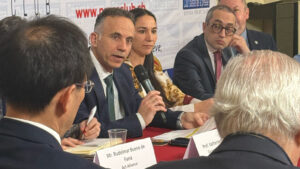
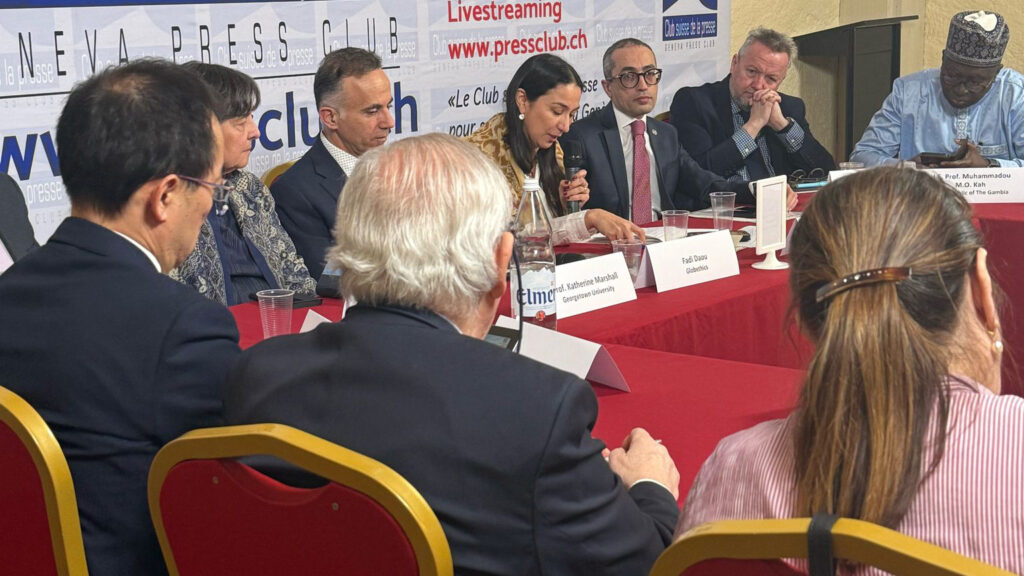
On March 5, Arigatou International and Globethics hosted a roundtable discussion at the Geneva Press Club, bringing together key stakeholders to address the ethical challenges and strategic responses to the ongoing funding crisis in the humanitarian and development sectors.
The event, Navigating the Development and Humanitarian Funding Crisis: Ethical Implications and Strategic Responses, gathered representatives from CSOs, UN agencies, diplomats, and humanitarian experts to discuss the far-reaching consequences of budget cuts and shifting donor priorities. As major donors, including the USA, Germany, Switzerland, and the UK, have significantly reduced their contributions to global aid, participants examined how to uphold ethical standards while ensuring the protection of vulnerable populations.
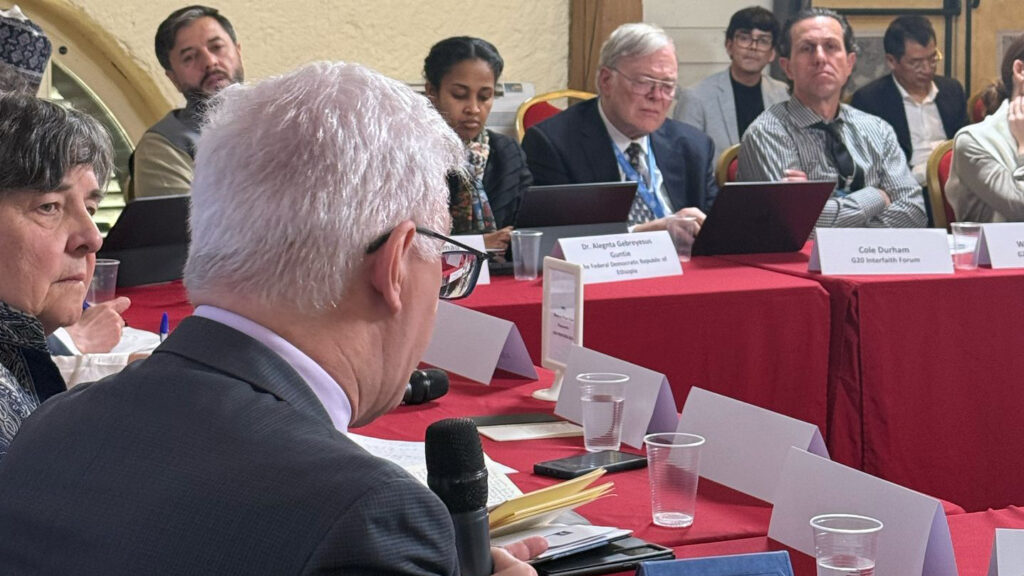
A key takeaway from the discussion was the urgent need to rethink funding models. With traditional aid structures proving unsustainable, experts emphasized the importance of diversifying financial sources, engaging private sector stakeholders, and strengthening local solutions to build long-term resilience. The conversation also underscored the necessity of balancing immediate humanitarian responses with sustainable development strategies to prevent long-term setbacks in human rights and peacebuilding efforts.
Collaboration emerged as another critical theme, with speakers calling for collective action rather than competition for scarce resources. The discussion highlighted the ethical responsibility of humanitarian and development actors to maintain transparency, accountability, and commitment to their core missions despite financial pressures.
The roundtable concluded with a strong call for bold, collective action to ensure that ethical principles remain at the heart of humanitarian efforts. As the crisis deepens, innovative financing, stronger partnerships, and a commitment to human rights will be essential in shaping the future of global aid.
For a full summary of the discussion, read the Geneva Press Club’s press release here: Press release “Navigating the Development and Humanitarian Funding Crisis”
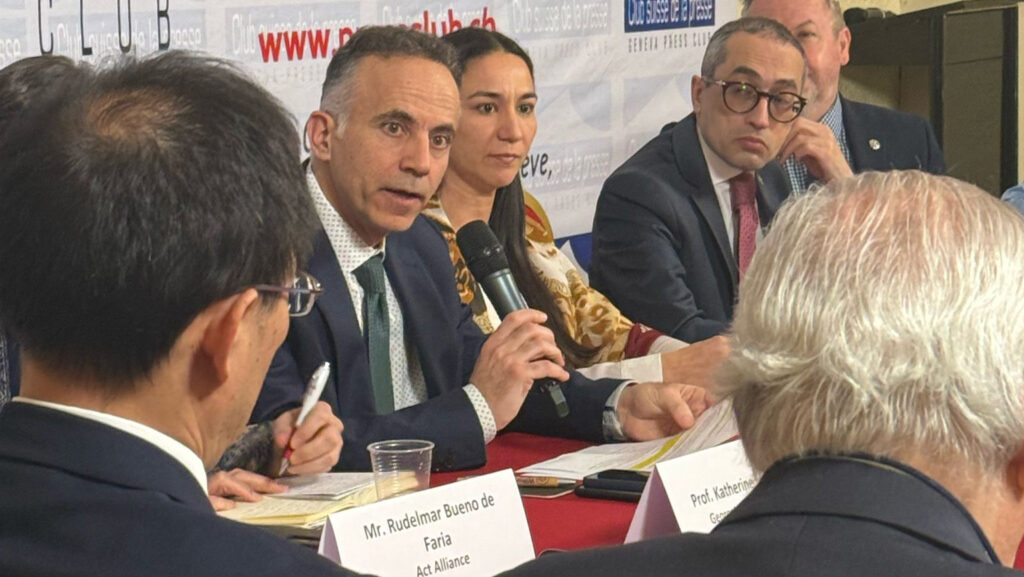
The post Arigatou International and Globethics Lead Roundtable on Navigating the Development and Humanitarian Funding Crisis appeared first on Ethics Education for Children.
03/03/2025 - Ethics Education Expands Its Reach in Kenya – Phase 2 of the Ethics Education Fellowship Launches
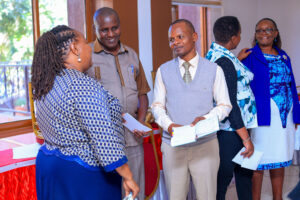
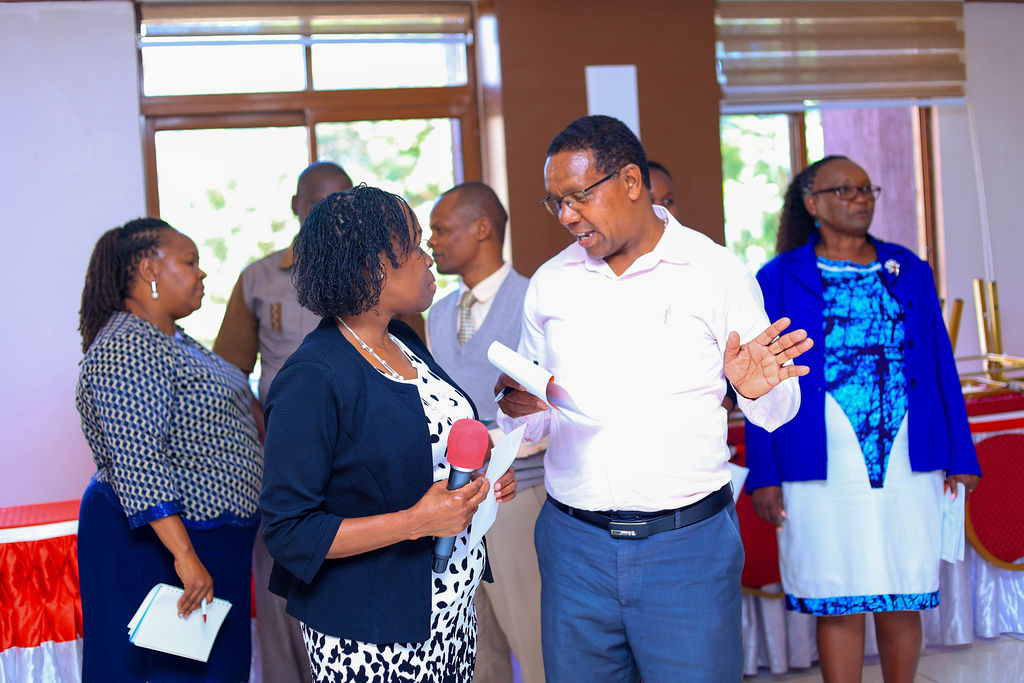
A training workshop took place on the outskirts of Nairobi, from 26 February to 2 March 2025, bringing together 32 educators from Kitui and Murang’a counties. Jointly organized by the Ministry of Education of Kenya, the Kenya National Commission for UNESCO, and the Kenya Institute of Curriculum Development, this workshop is a key component of the second phase of the Ethics Education Fellowship. It is expected that in this phase, the program will reach 800 children across four schools.
The participants, representing primary and secondary schools, teacher training colleges, and universities, were joined by key officials from the Ministry of Education, Kenya, including the Department of Teacher Education, Department of Planning, Department of Quality Assurance, and the Department of Partnerships and East Africa Affairs. The workshop was also attended by representatives from the Kenya National Cohesion and Integration Commission, the Kenya National Commission on Human Rights, and the Inter-Religious Council of Kenya.
Mr. Elyas Abdi, Director General of Basic Education, Ministry of Education, emphasized the foundational role of ethics and values in national development. “Kenya will achieve development by embracing values and ethics, which are key to building a better future,” he affirmed in an interview with MyGob newspaper. He underscored the alignment of this initiative with Kenya’s Vision 2030 and Sustainable Development Goal 4.7, which promotes education that fosters peace, global citizenship, and cultural understanding.
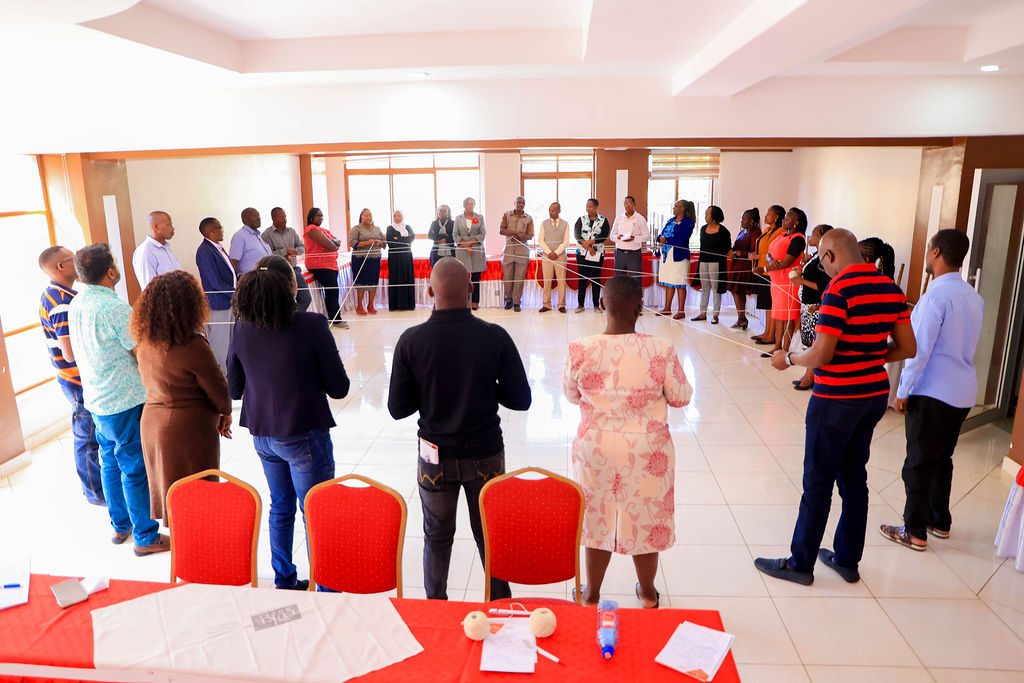
The Opening Ceremony set the tone for a powerful journey of reflection, dialogue, and transformation. Distinguished speakers offered compelling insights on the role of ethics in strengthening education and empowering students to navigate contemporary global and social challenges.
Mr. Kilian Nyambu, Deputy Director of Public Education and Engagement at the National Cohesion and Integration Commission, highlighted the essential role of ethics in building a unified and peaceful society. He noted that ethics education can help address the root causes of social and political challenges, while promoting national cohesion.
Mr. Suchith Abeyewickreme, Senior Technical Lead for Ethics Education for Children at Arigatou International, applauded Kenya’s steadfast commitment to values-based education. He spoke of ethics as a golden thread that can be woven into curricula, extracurricular activities, and everyday school life—cultivating empathy, responsibility, and critical thinking among learners.
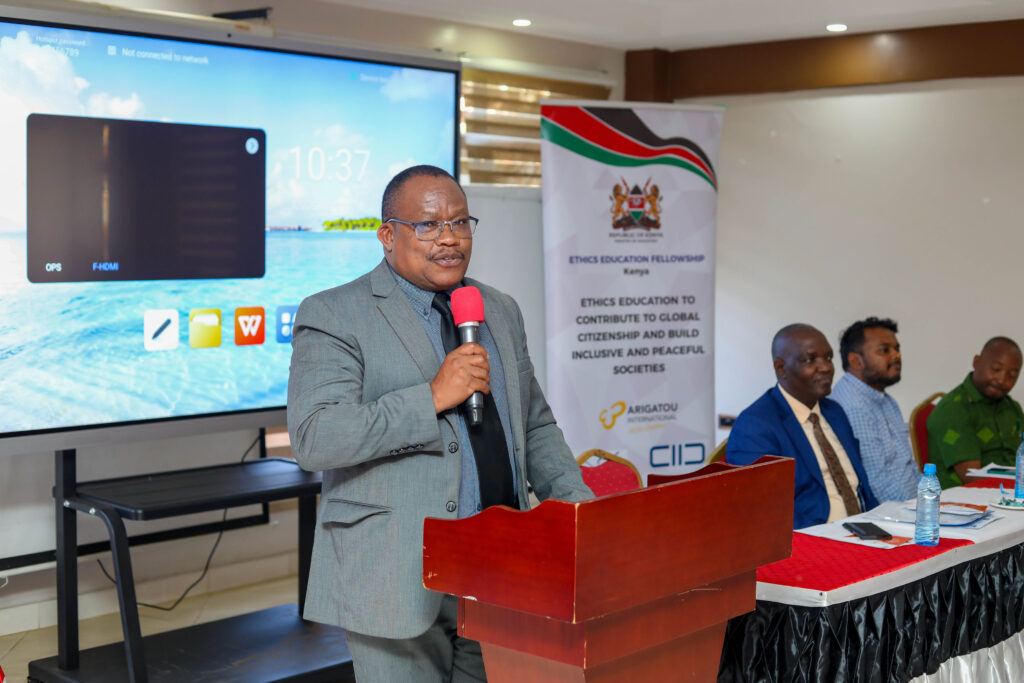
Dr. James Njugu, Acting Secretary General of the Kenya National Commission for UNESCO, celebrated the successes of Phase 1 and encouraged educators to work collaboratively to reimagine and renew the educational experience. He emphasized the importance of equipping teachers with the tools to support the aspirations of today’s youth and future generations.
Dr. Sam Ngaruiya, speaking on behalf of the Director General of Education, officially inaugurated the workshop. He reaffirmed the Ministry’s vision of nurturing ethical, responsible citizens capable of addressing both local and global challenges through education.
The five-day gathering was facilitated by Ms. Mary Kangethe, Kenya National Commission for UNESCO; Ms. Dorah Kitala, Ministry of Education; Ms. Olivia Opere, School of Education, Kenyatta University; and Mr. Suchith Abeyewickreme, Ethics Education – Arigatou International. A special highlight of the week was the return of educators from Phase 1, who served as support facilitators, generously sharing their experiences and insights to guide the new cohort.
“This initiative creates opportunities for educators to foster safe learning environments and build skills for healthy relationships and social responsibility,” stated Ms. Kangethe.
The Ethics Education Fellowship program is made possible through the collaborative efforts of Arigatou International, the Guerrand-Hermès Foundation for Peace, the International Dialogue Centre (KAICIID), the Higher Committee of Human Fraternity.
Arigatou International extends its sincere appreciation to all partners, facilitators, and participants for their unwavering leadership. Congratulations to the newly trained educators who are taking bold steps to embed ethics education into their classrooms and communities across Kenya.
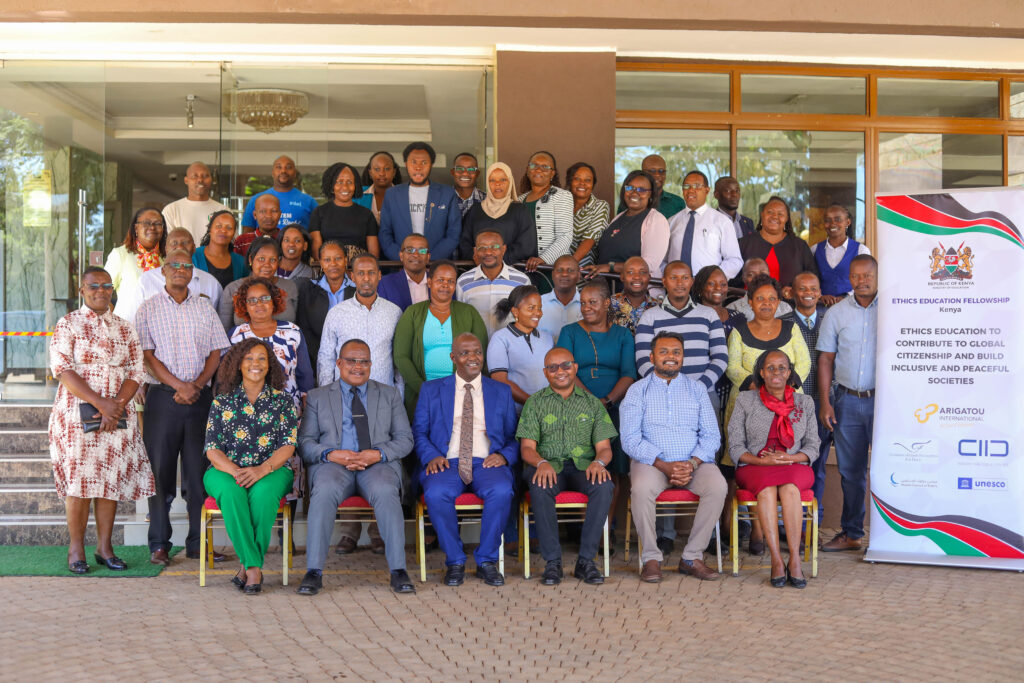
The post Ethics Education Expands Its Reach in Kenya – Phase 2 of the Ethics Education Fellowship Launches appeared first on Ethics Education for Children.
02/03/2025 - National Training of Teachers Kickstarts the Second Phase of the Ethics Education Fellowship in Bangladesh
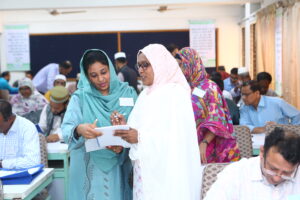
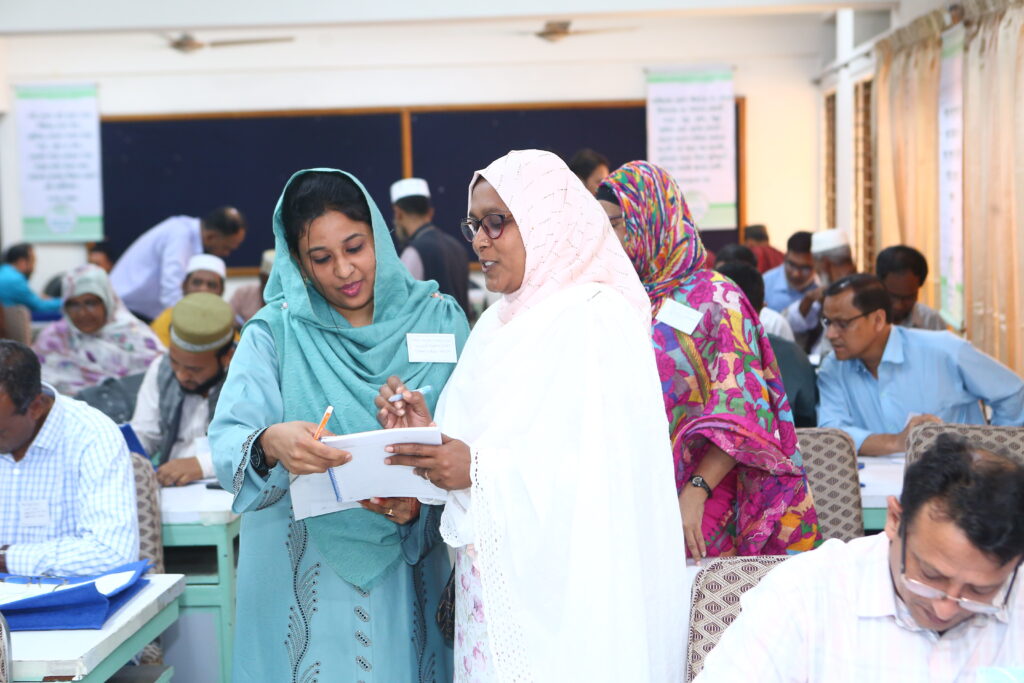
From February 23 to 27, a major step forward was taken in the expansion of ethics education in Bangladesh with the successful completion of the second National Training of Teachers in Dhaka. Organized as part of the Ethics Education Fellowship Program, the five-day immersive workshop brought together 48 teachers from 16 general schools and 8 madrasas, strengthening their capacity to introduce ethics education in their classrooms.
These newly trained educators build on the foundation laid during the program’s first phase, where 20 teachers were trained and are still actively engaged, implementing ethics education activities with their students. With the addition of this new cohort, the program continues to grow in reach and impact. The second phase alone aims to engage 480 new learners, complementing the 200 children reached during the initial phase.
Additionally, more than 21,000 teachers will participate in a 6-hour online learning module as part of a program funded by the World Bank.
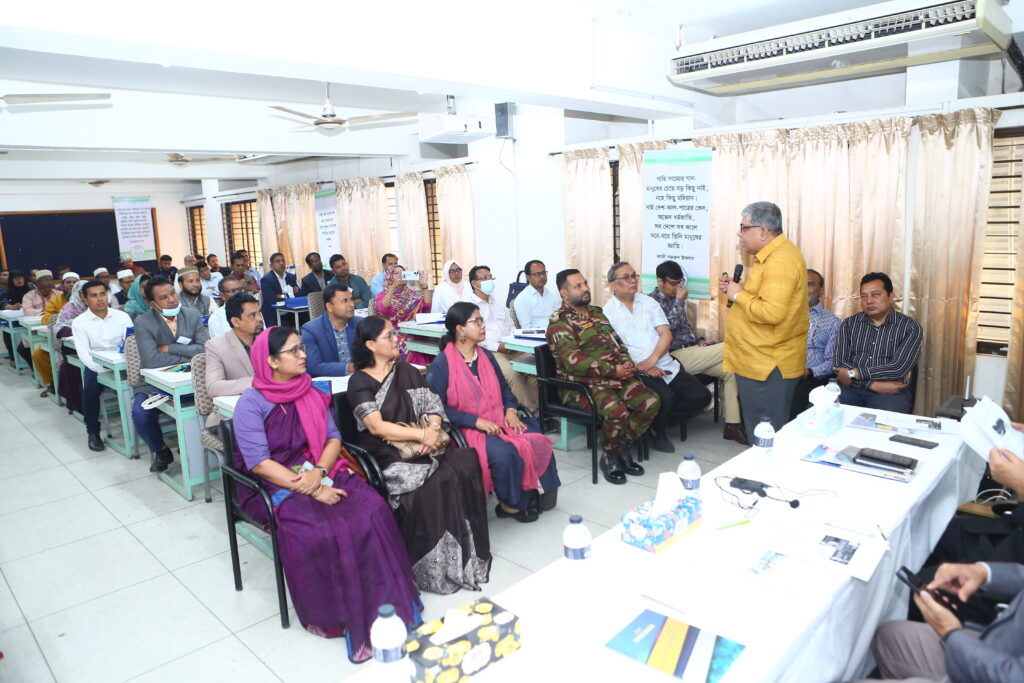
The training was facilitated by a dedicated team of Ethics Education Fellows, who are leading the implementation of the program in the country: Ms. Geetanjali Barua, Mr. Shafiul Alam, Lt. Col. Zonayed Ahmed, and Mr. Joydip Dey.
Throughout the week, participants engaged in dynamic and interactive sessions that focused on designing and facilitating ethics education sessions, applying transformative pedagogical approaches, and creating safe spaces for dialogue. The aim was to strengthen teachers’ capacities to empower students in navigating ethical challenges with confidence, empathy, and understanding.
A highlight of the training was an interfaith learning experience that allowed educators to reflect on ethical values from diverse religious perspectives. At St. Mary’s Cathedral, participants engaged in dialogue with Archbishop Bejoy Nicephorus D’Cruze, exploring key pillars of the Catholic faith, including the Golden Rule: “Do unto others as you would have them do unto you.” They also visited the Ramakrishna Mission in Dhaka, where they delved into the Hindu perspective on interconnectedness and the teacher’s role as a guide who helps remove barriers to learning.
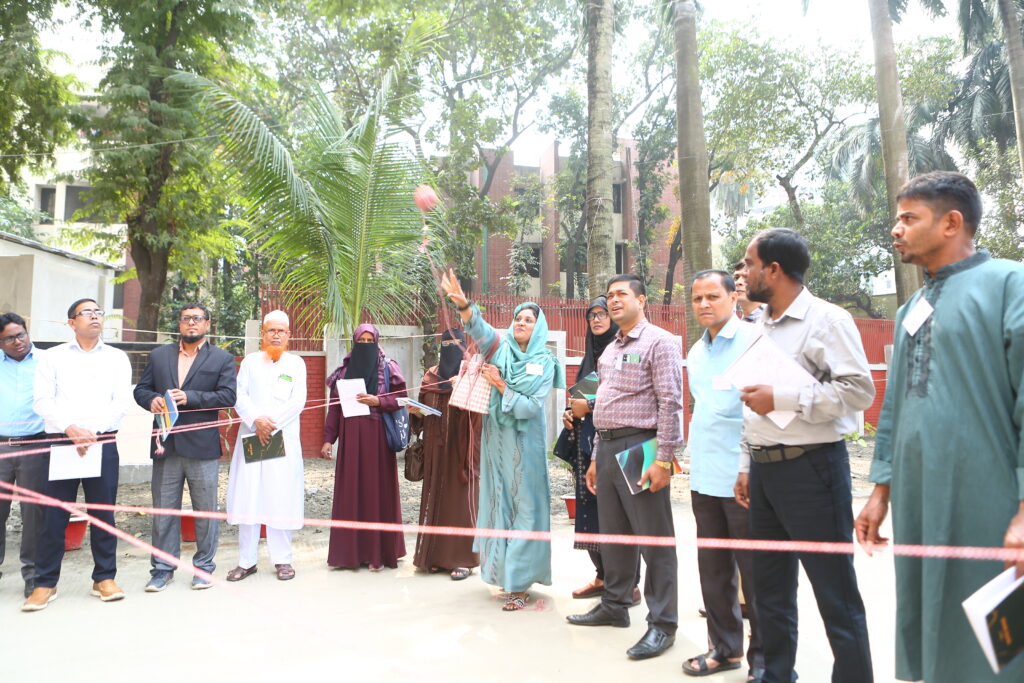
Reflecting on the experience, one participant shared, “I am very happy that a beautiful journey has begun. Just as I will benefit from the learning outcomes of the Ethics Education Training, my students will also be enlightened. I hope that together we will ignite the light in our hearts, and that light will illuminate the world.”
In parallel with the training, Mr. Francisco Vila, Head of Programmes at Arigatou International Geneva, met with several key education leaders to explore the future of ethics education in the country. His meetings with Mr. Hasan Maruf, Additional Secretary for Development at the Ministry of Education; Dr. Muhammad Azad Khan, Director General of the Directorate of Secondary and Higher Education; and Dr. Shafiul Azam, Director of Planning and Development, focused on reviewing the achievements of the first phase of the Fellowship and identifying advocacy opportunities to integrate ethics education into national policy.
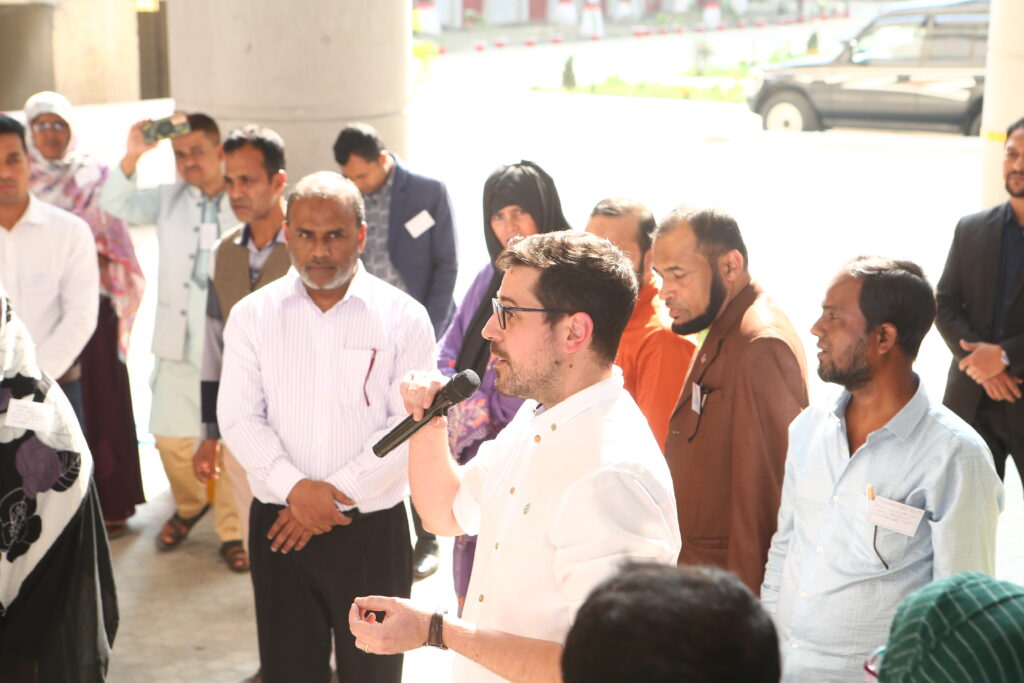
Further discussions with Mr. Abdul Mannan, Director General of the Madrasah Education Directorate, highlighted the deep connection between religious education and ethical practice, and the potential of this program to translate values into concrete action. At the National Academy for Educational Management (NAEM), Director General Dr. Md. Zulfewar Haider and Director of Training Prof. Ferdousi Begum explored ways to integrate ethics education into leadership development for headteachers and proposed new training for Academy staff to incorporate ethics into their existing programs. Meanwhile, Prof. Rejiya Sultana, Principal of the Government Teachers Training College in Dhaka, hosted Mr. Vila on campus and expressed strong interest in embedding ethics education into national teacher training programs.
We thank the Ministry of Education of Bangladesh for its commitment, the participating teachers for their dedication, and the Ethics Education Fellows for their leadership. Together, they are paving the way for more inclusive education in Bangladesh—one that nurtures respectful relationships, encourages dialogue, and empowers children to make a positive impact in their communities.
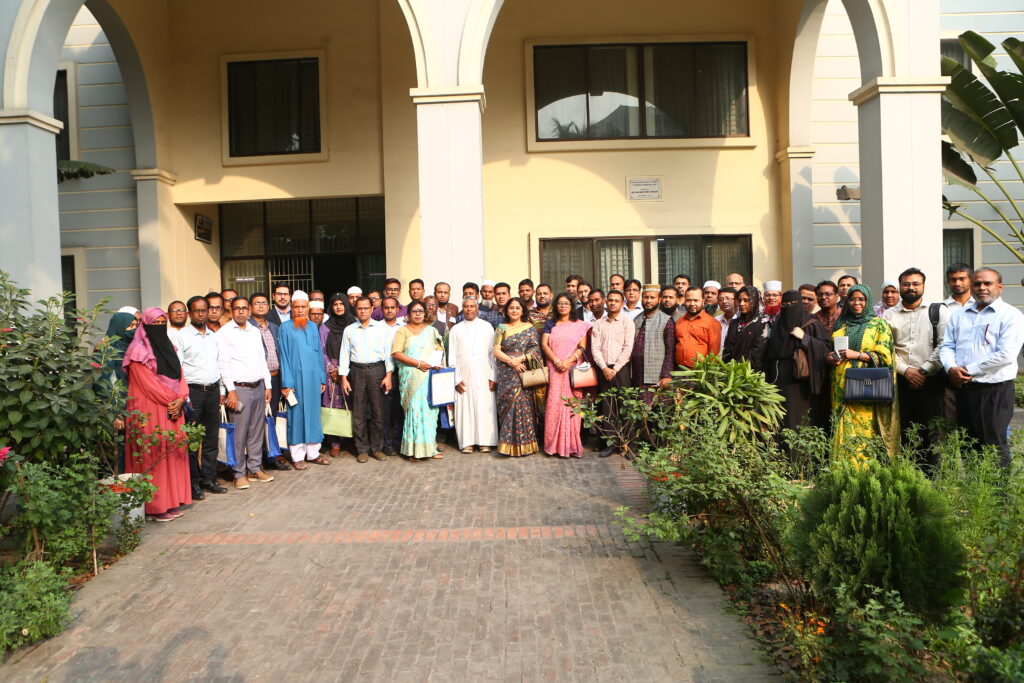
27/02/2025 - Mauritius Launches 2nd Phase of Ethics Education Fellowship with Two Teacher Training Workshops
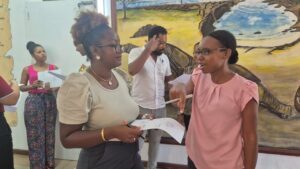
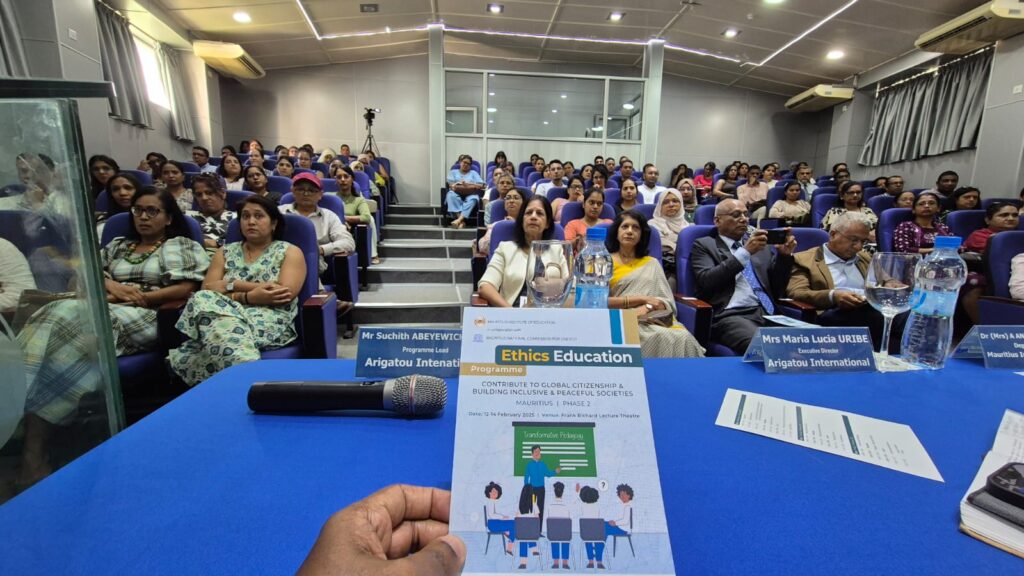
The Ethics Education Fellowship has officially entered its second phase in Mauritius with an inspiring series of training workshops that reached 148 educators from across the country. This second phase aims to reach 1,250 new learners across 46 schools in Mauritius, including Rodrigues Island, building on the solid foundation of the first phase.
Organized in collaboration with the Ministry of Education and Human Resources, the Mauritius Institute of Education, and Arigatou International, the training focused on equipping teachers to promote inclusive and safe learning environments in their classrooms.
The first training workshop was held from 12 to 14 February 2025 at the Mauritius Institute of Education (MIE). The opening ceremony gathered key leaders from the education sector, including Professor Kiran Bhujun, Director of Tertiary Education, Science and Research; Dr. Surekha Devi Ramful, Director of Schooling at the Mahatma Gandhi Institute; Dr. Guy Jean-Noel Genevieve, Director of Primary Education, Curriculum Development and Evaluation; Mr. Rajiv Kumar Aukhojee, Director of Secondary Education; and Dr. Jimmy Harmon, Deputy Director for Secondary Education. Their presence underscored the strong institutional commitment to advancing ethics education.
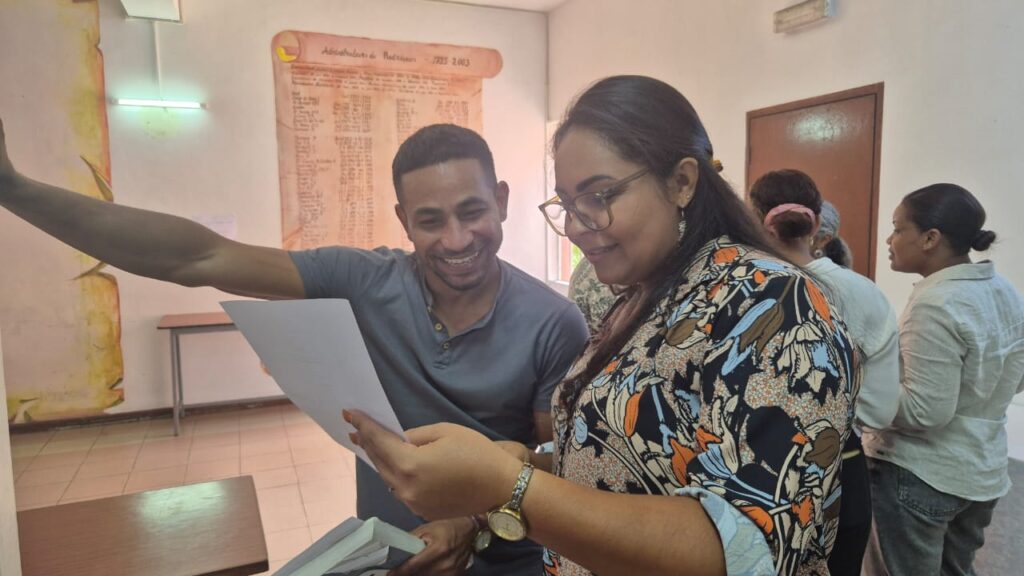
Facilitated by local Ethics Education Fellows, Mr. Jay Ramsaha and Mr. Kumar Aukhojee, the sessions introduced educators to the pillars of ethics education, the ecology of the child, and strategies for building safe learning environments. Teachers engaged in meaningful discussions on the role of ethics in education, exploring how these principles can help address social challenges and foster mutual respect in classrooms.
In parallel with the training, Ms. Maria Lucia Uribe, Executive Director of Arigatou International, and Mr. Suchith Abeyewikreme, Senior Program Lead, met with Mr. Veersingh Boodhna, Permanent Secretary of the Ministry of Education and Human Resources. They were joined by Mr. R. K. Aukhojee and Dr. J. N. Genevieve for a productive exchange about scaling up and institutionalizing ethics education in Mauritius. Mr. Boodhna expressed strong support for the second phase of the Fellowship and shared his interest in promoting Mauritius as an example for other countries seeking to transform education.
The visit also included strategic meetings with the Mauritius Institute of Education, where Ms. Uribe met Dr. Aruna Ankiah-Gangadeen, Deputy Director, to explore deeper collaboration on teacher training. Fellows Mr. Jay Ramsaha and Ms. Seema Goburdhun contributed valuable insights based on their work as MIE lecturers. The team also met with Dr. Vassen Naeck, Acting Director of the Fortified Learning Environment Unit at the National Social Inclusion Foundation, to explore ways to extend ethics education to tutors and coordinators working with children living in poverty.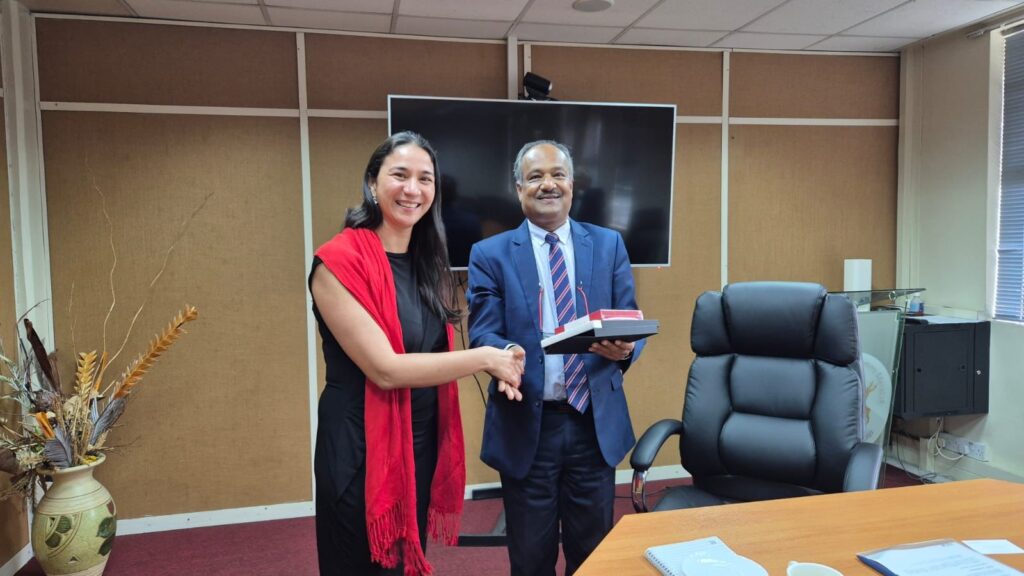
Further dialogue took place with the Office of the Ombudsperson for Children. In a meeting with Ms. Aneeta Ghoorah, the discussion focused on integrating ethics education into non-formal education settings, with particular interest in expanding activities to primary schools. Additionally, the team engaged with the Technical Committee on the Foundation Programme in Literacy, Numeracy, and Skills (FPLNS) to explore how ethics education and dialogue can be embedded into national curriculum initiatives that build self-esteem, critical thinking, and ethical decision-making in learners.
During their time in Mauritius, the team also met with the M-Kids Organization Youth Council, a national NGO devoted to empowering vulnerable children through community-based initiatives. Conversations with Imam Arshad Joomon, Director of M-Kids, and Ms. Oumaimah AG J, Director of Programmes, opened exciting possibilities for collaboration around ethics education and child spiritual development.
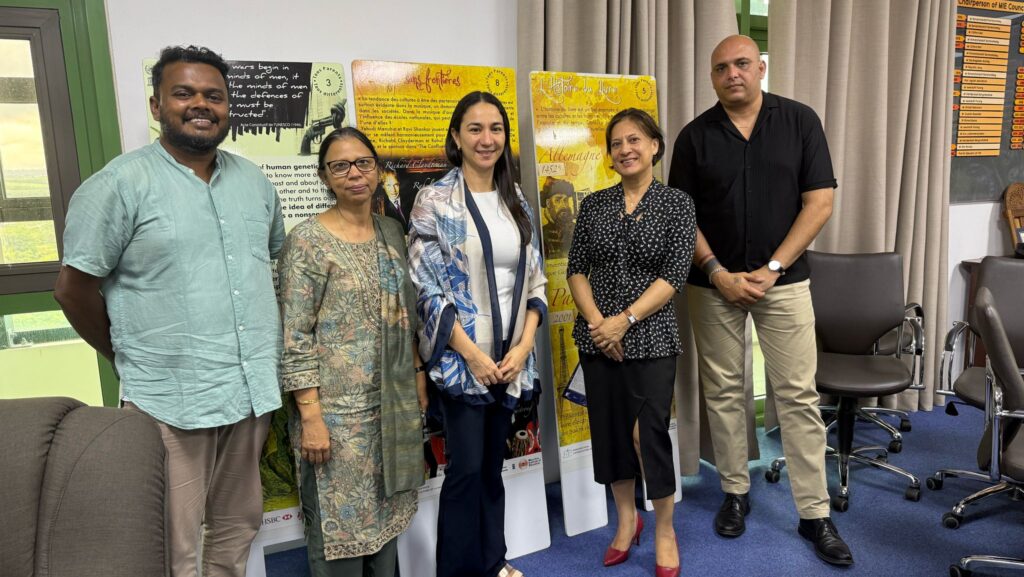
The journey continued to Rodrigues Island, where a second workshop was held from 19 to 21 February 2025. Twenty-eight teachers from eight secondary schools took part in the three-day training, which was led by Ethics Education Fellows and MIE lecturers Mr. Jay Ramsaha and Dr. Rajendra Korlapu-Bungaree. This extension of the program to Rodrigues highlights the Fellowship’s commitment to inclusion and national reach.
The second phase of the Ethics Education Fellowship in Mauritius is made possible through a partnership between Arigatou International, UNESCO Regional Office for Eastern Africa, the International Dialogue Centre (KAICIID), Human Fraternity, and the Guerrand-Hermès Foundation for Peace. With visionary leadership, institutional support, and the dedication of educators and fellows, Mauritius is moving decisively toward a future where education empowers children to live together in peace, guided by values of respect, empathy, and shared responsibility.
14/02/2025 - Breaking New Ground: Learning to Live Together Training Workshop Arrives in Salamanca, Mexico
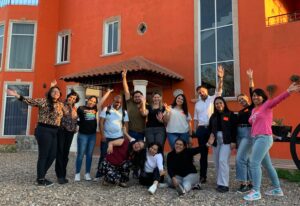
A new chapter in ethics education began in Salamanca, Guanajuato, as 15 facilitators participated in a Learning to Live Together training workshop. The event, held in collaboration with the Secretary of Education of Guanajuato (SEG) and ‘Comunidad FAST’ (Faith, Social Action and Transformation), marks a significant effort to foster social and emotional skills among young students.
The workshop, held from January 31 to February 3, 2025, is part of a strategic initiative to foster safe learning environments, protect children from violence and promote their holistic well-being. Facilitators trained during this workshop will implement the Learning to Live Together program in 28 public schools across Salamanca throughout the school year, reaching more than 5,000 young people aged 12 to 15. Salamanca was specifically chosen due to its high levels of violence, organized crime, and child recruitment, making this initiative a crucial step in promoting peace and safety for children and adolescents.
Facilitated by Mr. Francisco Vila, Head of Programs, and Ms. Silvia Correa, Consultant on Ethics Education, both from Arigatou International – Geneva, the workshop was organized with the support of GNRC México under the leadership of Ms. Sandra Cazares, Pastor and Founder of ‘Comunidad FAST.’
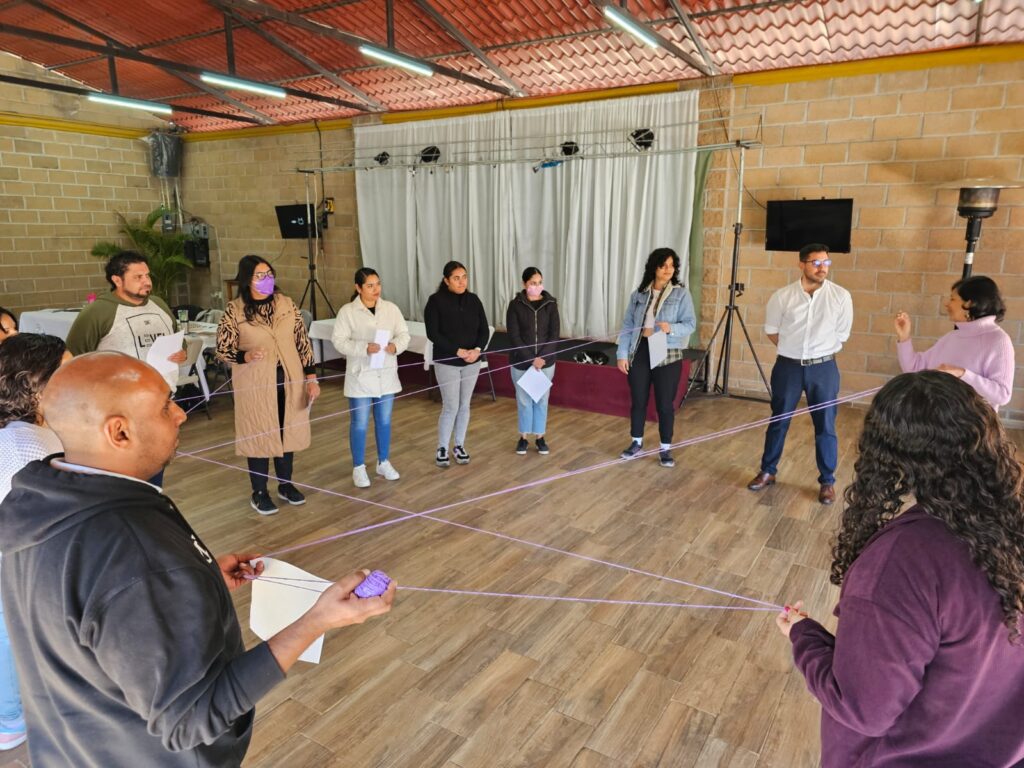
The training aimed to equip educators, youth leaders, and social workers with essential methodologies and resources to implement ethics education programs effectively within their communities. By the end of the workshop, participants had developed a profound understanding of the core concepts, methodologies, and educational approach of Learning to Live Together, enabling them to refine their teaching strategies and create meaningful learning experiences.
Ms. Cesia Espinoza, a workshop participant, reflected on her experience: “I arrived at the facilitator workshop expecting to receive tools to implement the program, and while I did gain those, it was also a transformative experience that reconnected me with my spirituality. It showed me how, through ethical values, we can plant the seeds of change in our surroundings.” This sentiment was echoed by Ms. Patricia Restrepo, who added, “This experience has enriched me and strengthened my conviction in the methodology and philosophy of working for children and adolescents from a holistic perspective, rooted in spirituality—starting from within ourselves.”
Ms. Teresa Castellanos, an official from SEG and President of EduPaz, visited the workshop and engaged in a dialogue with the participants. She shared insights on the pressing issues of violence affecting children and adolescents in the region, fostering an open discussion on the role of education in addressing these challenges. Inspired by her words, many participants reaffirmed their commitment to fostering safe spaces for young learners. They engaged in thoughtful discussions on the impact of violence on children and adolescents, emphasizing the transformative role of values-based education in challenging environments.
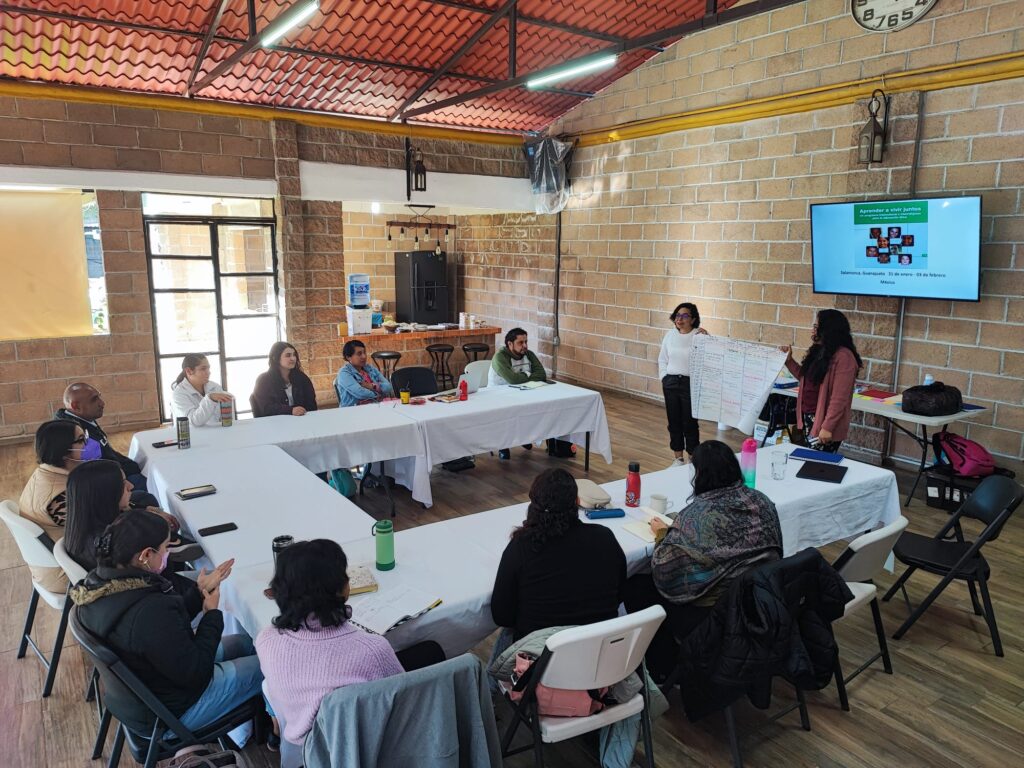
Through interactive sessions and reflective exercises, participants gained the knowledge and skills needed to design ethics education programs tailored to their specific contexts. Additionally, the sessions provided valuable insights into monitoring and evaluation tools, ensuring the sustainability of the initiatives.
“I am convinced that we will reach many lives and homes, paving the way for a better world based on love, empathy, respect, and reconciliation—fundamental values both for the foundation and society, which need to be strengthened and, most importantly, lived,” reflected Ana Laura Aguilera at the end of the workshop.
Following the training, teachers will bring this program to life, inspiring adolescents to become changemakers in their communities. By fostering creativity and leadership, students will not only develop meaningful projects but also amplify their voices, take ownership of their spaces, and lead transformative initiatives that shape a brighter future for themselves and those around them.
“We don’t see Learning to Live Together as a project with a start and end, but rather as an ongoing element that strengthens our work as a faith-based community, allowing us to offer true guidance to adolescents,” explained Sandra Cazares when discussing the next steps. “It was a deeply enriching experience that encouraged us to connect with ourselves, with God, and with our communities. It equipped us to foster empathy, methodically address conflict resolution, self-esteem, and peacebuilding, critically analyze injustices, and, most importantly, it mobilized us into action.”
Salamanca is currently considered a priority area by the State of Guanajuato due to its high levels of violence and school dropout rates. Through ethics education and intercultural and interfaith learning, this workshop represents a powerful step toward building pathways to peace and creating safe spaces for young people in Salamanca and beyond.
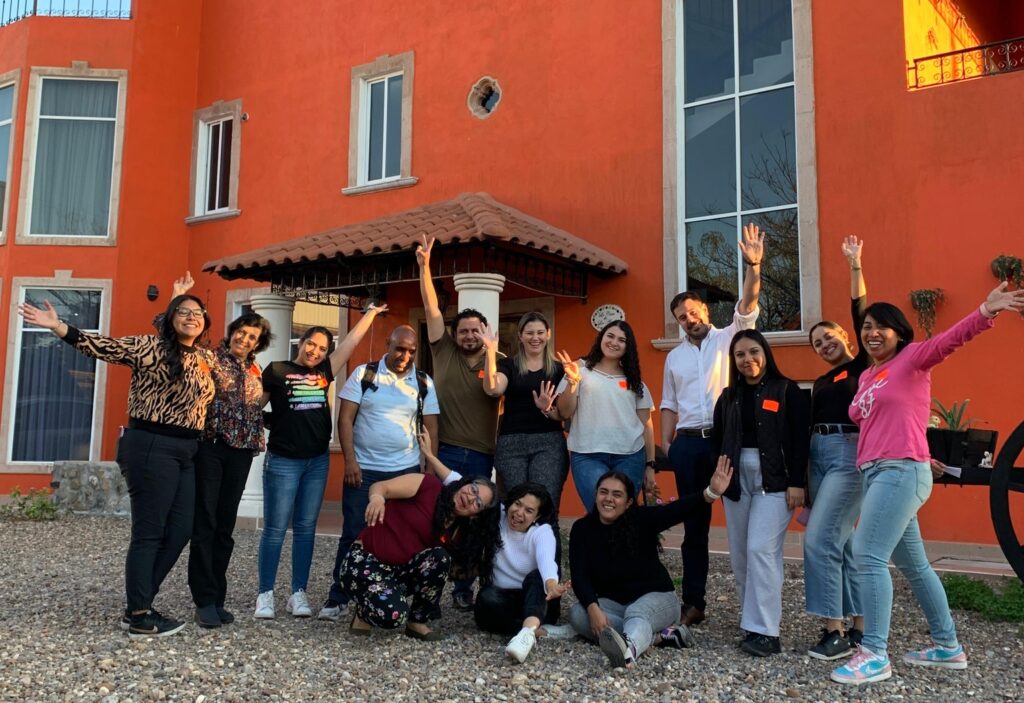
The post Breaking New Ground: Learning to Live Together Training Workshop Arrives in Salamanca, Mexico appeared first on Ethics Education for Children.
09/01/2025 - Empowering Educators for Change: Transformative Pedagogy Workshop Advances Safe and Inclusive Learning in South Sudan
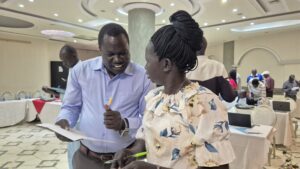
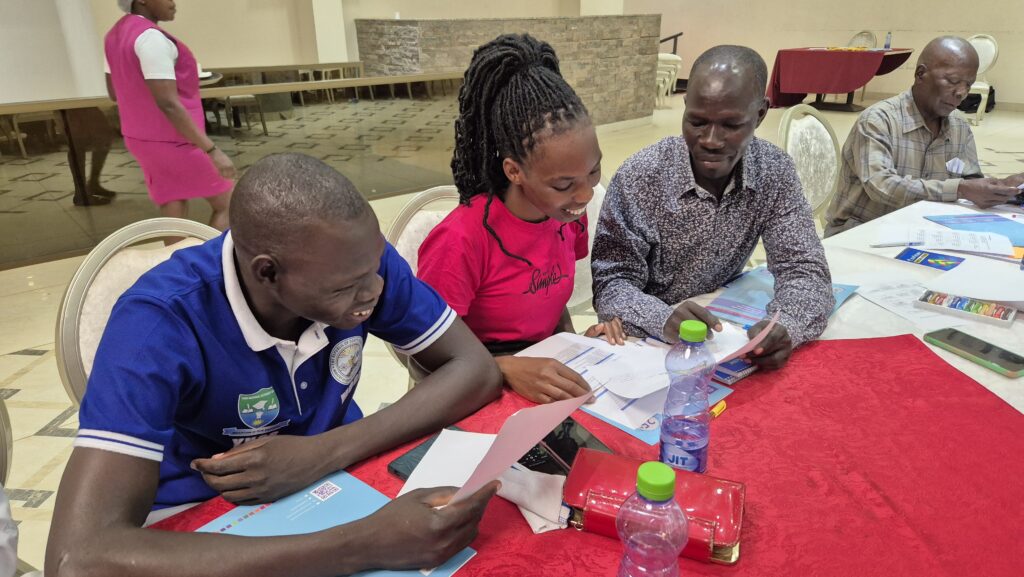
A five-day Teacher Training Workshop on Transformative Pedagogy for Fostering Holistic Well-being and Safe Learning Environments for Empowered Learners took place from 29 September to 04 October 2024 in Juba, South Sudan. The workshop brought together 47 educators from 10 schools across 5 states, along with teacher trainers, and government officials.
Organized by the Ministry of General Education and Instruction, UNESCO South Sudan, and UNESCO International Institute for Capacity Building in Africa (IICBA), the workshop aimed to strengthen the capacity of educators to create safe, inclusive, and resilient learning environments.
Mr. Tap Raj Pant, Chief of Education at UNESCO’s Juba Office, officially welcomed the participants, setting the tone for the event. This was followed by opening remarks from Mr. David Lowela, Director General for Basic and Secondary Education and Acting Undersecretary of the Ministry of General Education and Instruction. In his address, Mr. Lowela emphasized the collective responsibility of ensuring safe learning environments, stating, “We need to make the learning space safe. Making the learning place safe is the responsibility of all of us, the Ministry of Education, our partners and even the students.”
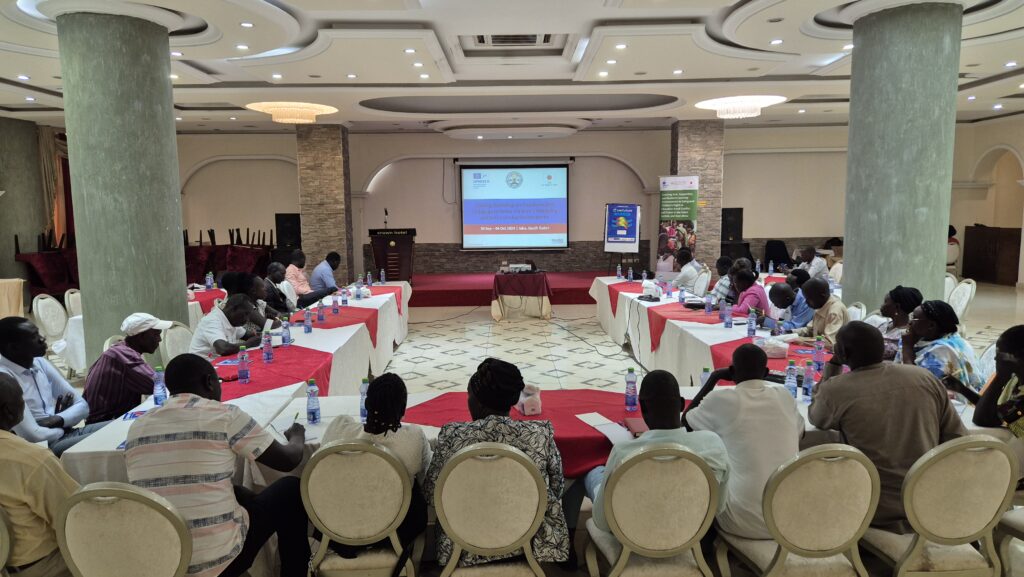
Facilitated by Mr. Suchith Abeyewickreme, Senior Technical Lead for Ethics Education at Arigatou International Geneva, Ms. Erica Derjacques-Inacio, Consultant with Arigatou International Geneva, and Ms. Eyerusalem Azmeraw, Project Coordinator at UNESCO IICBA, the workshop focused on transformative learning approaches to address the challenges faced by South Sudan’s education sector.
Participants explored strategies to foster the holistic well-being of learners by promoting dignity, rights, and agency, alongside building a supportive and inclusive educational environment. The workshop emphasized:
- The importance of safe learning spaces that embrace diversity.
- Parental and community engagement in supporting education.
- A systemic approach to creating resilient learning environments amid conflict and crises.
Discussions focused on key themes such as conflict resolution, peacebuilding, gender equity, and social transformation—critical components for addressing South Sudan’s unique socio-political challenges. South Sudan’s current development landscape is shaped by its complex history, including years of conflict, high inflation, and vulnerabilities to climate-related shocks. The nation’s political system is undergoing a fragile transition, compounded by risks such as drought, flooding, and continued conflict. Additional challenges include early marriage, widespread poverty, limited access to sanitation, severe food insecurity, and the pressing need for humanitarian aid. South Sudan is facing a dire humanitarian crisis; in 2022 alone, an estimated 8.9 million people—out of a population of 12.4 million—required humanitarian assistance.
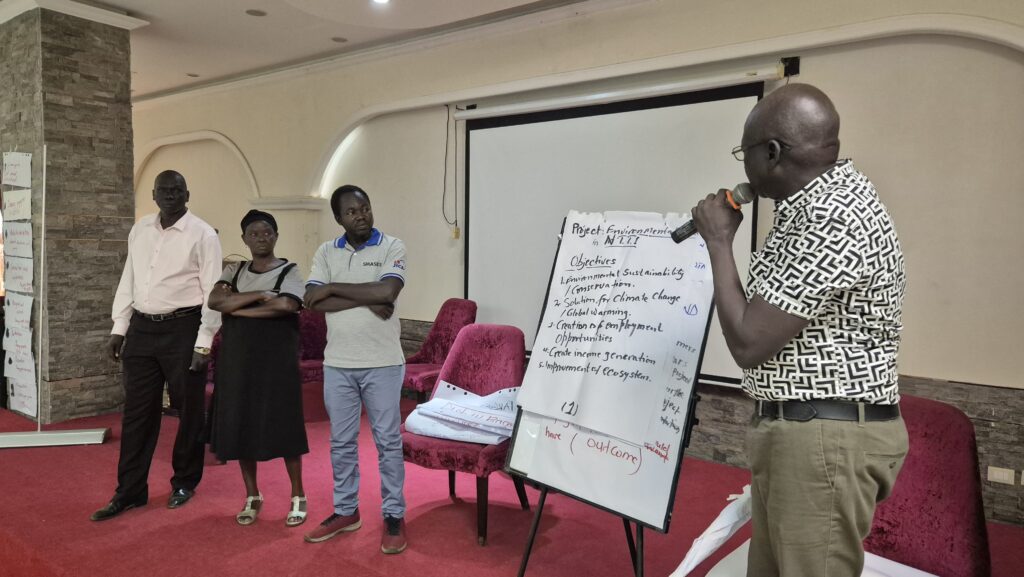
The well-being of teachers was highlighted as a critical foundation for empowering them to become agents of change in their communities. One teacher noted, “You need to have peace in your mind. If you don’t have peace in your mind, you can’t help others achieve peace in theirs.” Reflecting on the impact of the training, another participant shared, “I used to focus solely on providing knowledge, but after this training, I learned how to nurture students’ well-being and address dimensions I had never considered before.” This underscores the transformative effect of prioritizing holistic development in education.
This initiative forms part of the project: “Creating Safe, Supportive, and Resilient Learning Environments to Safeguard Children’s Right to Education Amid Conflict and Crises in the Sahel, Central, and East Africa,” sponsored by the Government of Japan. The project focuses on strengthening the capacity of educators to ensure children’s right to education is upheld in regions affected by conflict and instability.
We thank UNESCO IICBA for entrusting us with this significant undertaking. The commitment of South Sudanese teachers to creating transformative learning spaces is inspiring. You are the foundation of a brighter future for our children.
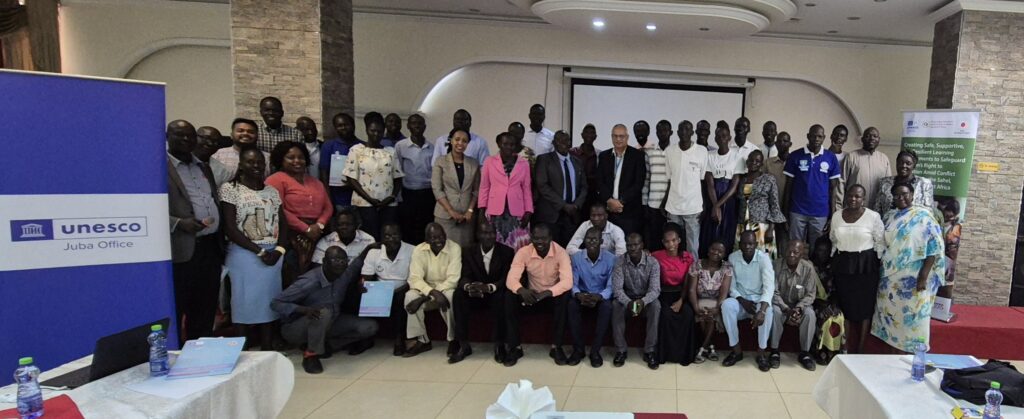
The post Empowering Educators for Change: Transformative Pedagogy Workshop Advances Safe and Inclusive Learning in South Sudan appeared first on Ethics Education for Children.
18/12/2024 - We are Transforming Education: Scaling up The Reach and Impact of The Ethics Education Fellowship
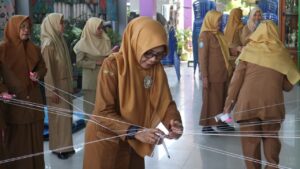

The Ethics Education Fellowship is stepping into its second phase with ambitious new initiatives designed not only to broaden its reach and impact but also to establish a lasting foundation for sustainable change in education.
Launched in 2022 by Arigatou International, the Guerrand-Hermes Foundation for Peace, KAICIID International Dialogue Centre, the Higher Committee of Human Fraternity, and UNESCO, this program has already made a profound impact, reaching schools in Bangladesh, Indonesia, Kenya, Mauritius, Nepal, and Seychelles.
Through the support of local Ministries of Education and National Commissions for UNESCO, the fellowship has sparked a movement that uses the transformative power of education to promote core values such as empathy, mutual respect, solidarity, and reconciliation—values crucial for building peaceful, inclusive societies.
This second phase introduces innovative approaches, harnessing technology and digital tools to reach teachers and learners in remote areas, encouraging interactive engagement from learners., and significantly expanding the program’s reach.
With an active involvement from diverse stakeholders, the program is setting the stage for a future where ethics education is embedded into the educational system, ensuring its sustainability and relevance for generations to come.
Building on the success of its first phase, which saw 324 teachers trained and over 8,000 children reached, the second phase of the Ethics Education Fellowship is poised to scale up its impact and create a strong foundation for institutionalizing ethics education at the national level. With the formation of country committees, a strategic advocacy plan, and the launch of new training workshops, the program is setting the stage for a transformative shift in education.
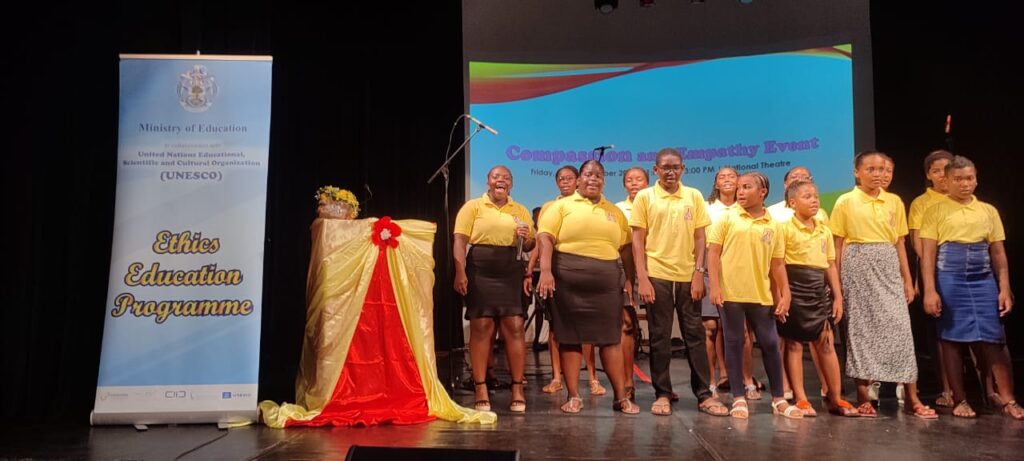
Bangladesh
In Bangladesh, the Directorate of Secondary and Higher Education has formed a Program Implementation Committee to drive coordination across the education sectors, setting the stage for an exciting new chapter of the program.
Children from the first phase of the Ethics Education Fellowship led impactful initiatives through their Ethics Clubs, such as raising funds for flood relief, cleaning school grounds, and planting trees. These actions not only helped their communities but also inspired their peers to take part, creating a ripple effect and fostering a sense of active citizenship. One student shared, “It is amazing to take part in such work. Of course, it is our responsibility to keep our premises clean, but when necessary, we should get down to work without hesitation.”
On 14 September 2024, fellows and teachers from Bangladesh met online to share progress, tackle challenges, and plan the next phase of the Ethics Education Fellowship. They discussed ongoing activities and innovative approaches to boost learner engagement. Reflecting on the program’s impact, Mr. Moinul from Pabna shared, “I am practicing ethics education regularly, and learners are happy,” highlighting the meaningful progress in fostering ethical values and enriching learning experiences.
The team of fellows in Bangladesh is preparing for the next National Teacher Training Workshop, set for 19-23 January 2025. This five-day workshop will bring together 48 new teachers from both madrasah and general schools, equipping them with the tools to further advance ethics education.
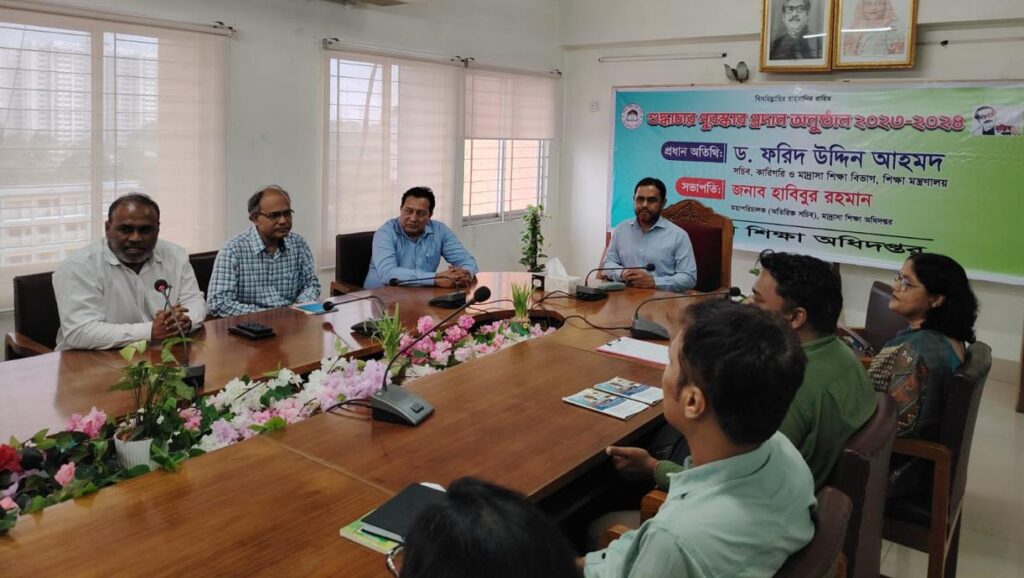
Indonesia
In Indonesia, the Ethics Education Fellowship is leveraging digital technology to expand its reach and deepen its impact. To make ethics education accessible to teachers nationwide, the Ministry of Basic and Secondary Education has developed three online learning modules. These modules, based on Arigatou International’s Teacher’s Activity Booklet, focus on three key dimensions of the Pancasila Student Profile: critical thinking, collaboration, and global diversity. Available in both Bahasa and English, the modules ensure that ethics education is integrated into the daily lives of students, aligning with the nation’s foundational ideology, Pancasila.
Since the launch of the second phase of the Fellowship program, 200 educators have participated in training workshops designed to empower them with the tools and skills to integrate Ethics Education into their school programs. With a strong focus on enhancing the Pancasila Student Profile, these workshops are not just about teaching—they’re about transforming how educators role model ethics, nurture critical thinking, and foster global citizenship diversity in the classroom.
By the end of the workshops, participants were fully equipped to design, implement, monitor, and evaluate tailored Ethics Education programs that meet the unique needs of their students.
Reflecting on the training’s impact, Mrs. Arlitasari shared, “Ethics Education plays an essential role in shaping future students. Through this training, I learned about children’s rights and how to incorporate these into the learning process to ensure they are fulfilled.” Mrs. Herawati added, “Ethics Education offers countless benefits, especially in creating a safe, child-friendly environment that fosters optimal learning outcomes—where the process is as important as the result.”
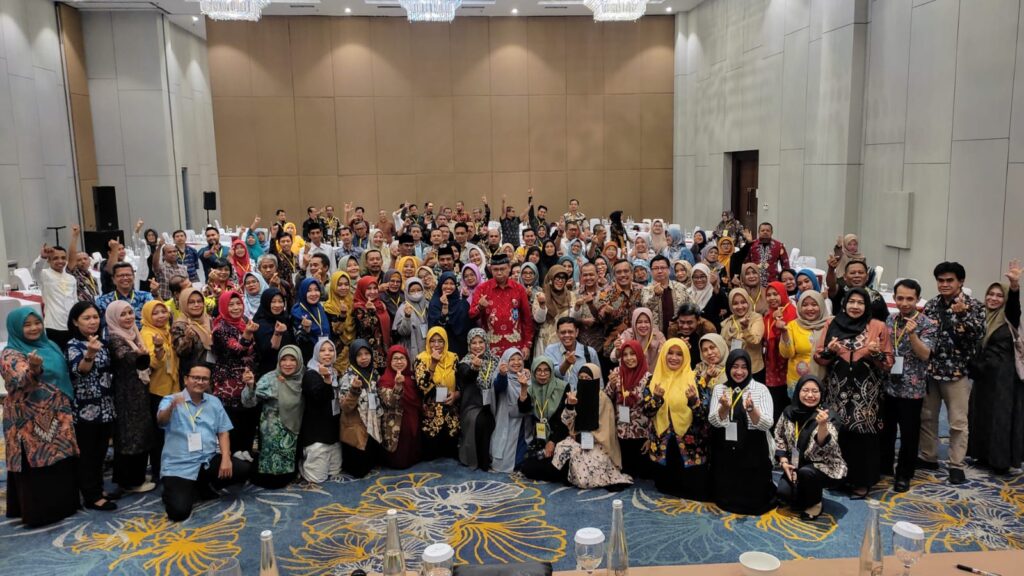
Kenya
The second phase of the Ethics Education Fellowship in Kenya was officially launched during the Stakeholder Forum on 30 August 2024, which brought together a diverse group of key stakeholders to discuss how to ensure the program’s sustainability, particularly its integration into the national curriculum. Hosted at the Kenyan Institute of Curriculum Development, the forum featured an online address by Ms. Maria Lucia Uribe, Executive Director of Arigatou International Geneva, who represented the Fellowship partners.
As the program moves forward, children from the first phase continue to lead by example through impactful initiatives. A standout example was the collaboration between the Ethics Club at KU Primary School and students from “Tree Side Special School,” a school for children with special needs. This special event not only promoted inclusion and empathy but also created lasting connections between students from different backgrounds, showing the power of shared experiences.
Additionally, the Fellowship’s influence reached new heights with the acceptance of a research paper at the prestigious International Conference at Kenyatta University. Titled “A Transformative Approach to Integrating Ethics Education into Teacher Training for Promoting Social Cohesion, Peace, and Inclusion in Kenya,” the paper, developed by Ms. Sanjanee Ambegoda, Ms. Eleonora Mura, and Mr. Francisco Vila from Arigatou International, alongside fellows Ms. Olivia Opere, Ms. Nelly Machu, and Ms. Mary Kangethe from UNESCO National Commission for Kenya, showcases the program’s ongoing commitment to shaping a more inclusive and peaceful society through ethics education.
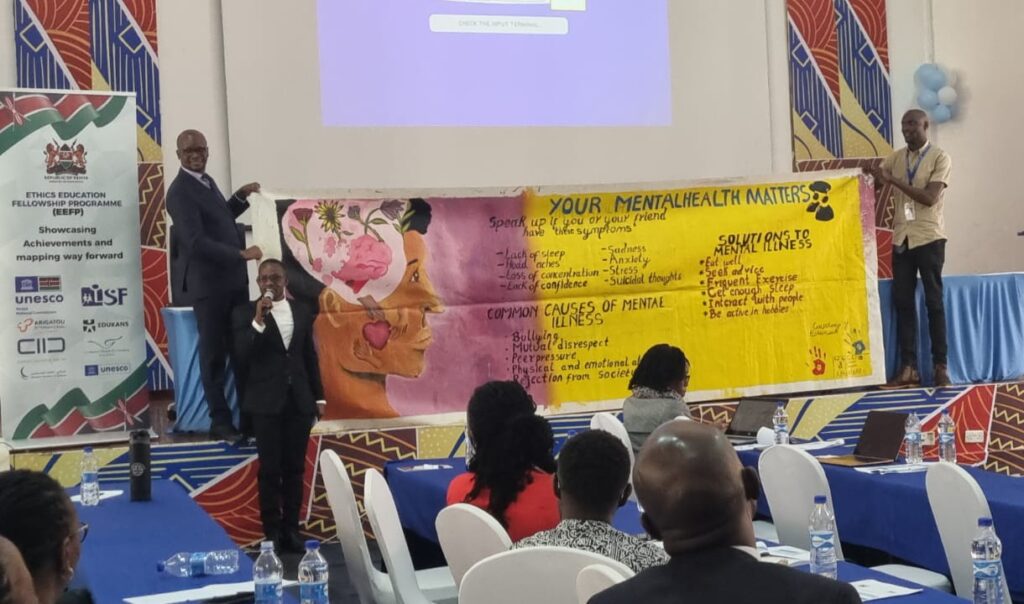
Mauritius
One of the most exciting developments in the second phase of the Ethics Education Fellowship in Mauritius is the inclusion of Rodrigues Island. While the program was previously focused solely on the main island due to Rodrigues’ remoteness and access challenges, this new phase expands the program to reach this important region.
During this period, the team in Mauritius also established a steering committee to oversee the second phase of the Fellowship, focusing on four key areas: (i) curriculum integration, (ii) the development and digitization of materials—including a Cultural Map, (iii) teacher training, and (iv) implementation at the school level.
The Cultural Map is a particularly innovative component of the program. Designed to highlight the historical, cultural, and religious significance of various locations across Mauritius, this interactive tool allows students to click on different places and learn about their importance. This creative approach aims to engage students in their local heritage while fostering a deeper connection to their community.
To ensure the success of the program, a stakeholders meeting was held with school heads and representatives from various institutions, where they were briefed on the achievements of the first phase and the goals for the second. The meeting was an invitation to contribute to the continued success and growth of the program.
Looking ahead, the team in Mauritius is preparing for a training workshop in early 2025, where 154 Life Skills and Social and Modern Studies teachers from 46 schools will come together to deepen their understanding of ethics education and learn how to integrate it into their classrooms.
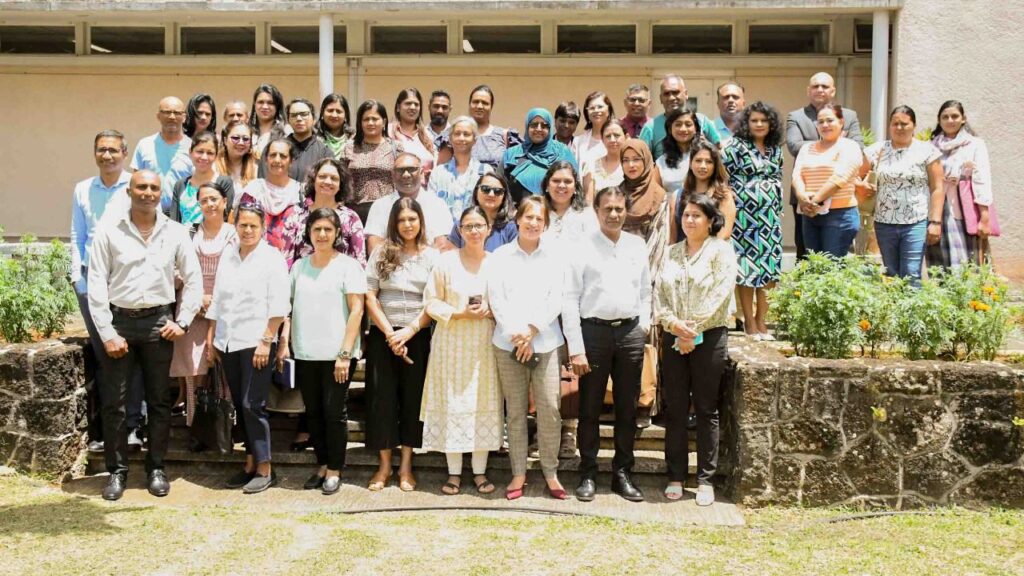
Nepal
During this period, the team of fellows in Nepal has been actively reviewing and adapting the Teacher’s Activity Booklet to include local examples, while also developing reference materials tailored for teachers. To ensure strong support for the teachers involved in the second phase, they organized a consultation on 9 December with district-level education heads and school headteachers, fostering collaboration and alignment with local education leaders.
From 10-15 December, a National Training of Teachers Workshop was held to equip new educators joining the Fellowship program. The workshop brought together 21 teachers from three provinces, along with two municipality education officers, to deepen their understanding of ethics education and prepare them to implement the program effectively in their classrooms.
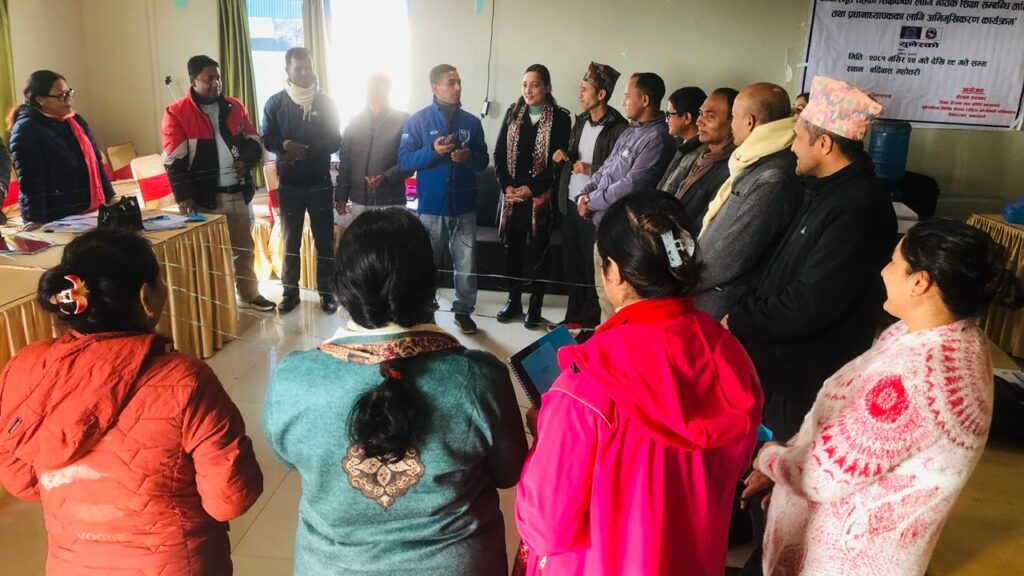
Seychelles
A key highlight of Seychelles’ engagement in the second phase is the integration of Ethics Education into a new Diploma for Teachers, designed to equip educators across the island with the skills to develop and implement ethics education programs in schools. This initiative is being spearheaded by the Department of Curriculum Leadership and Implementation within the Ministry of Education, ensuring a strong foundation for the program’s sustainability.
Throughout this period, a variety of impactful activities were carried out in schools that participated in the first phase, including learners’ and teachers’ circles, a compassion and empathy event, visits to nursing homes for the elderly, and an interfaith gathering for teachers. These activities helped deepen students’ and teachers’ understanding of ethics while promoting values such as empathy, solidarity, and respect.
Looking ahead, the next National Teacher Training Workshop in Seychelles is set for 27-31 January 2025. This workshop will not only strengthen the teachers’ capacity but also extend the program to schools on outlying islands, broadening its reach beyond the mainland.
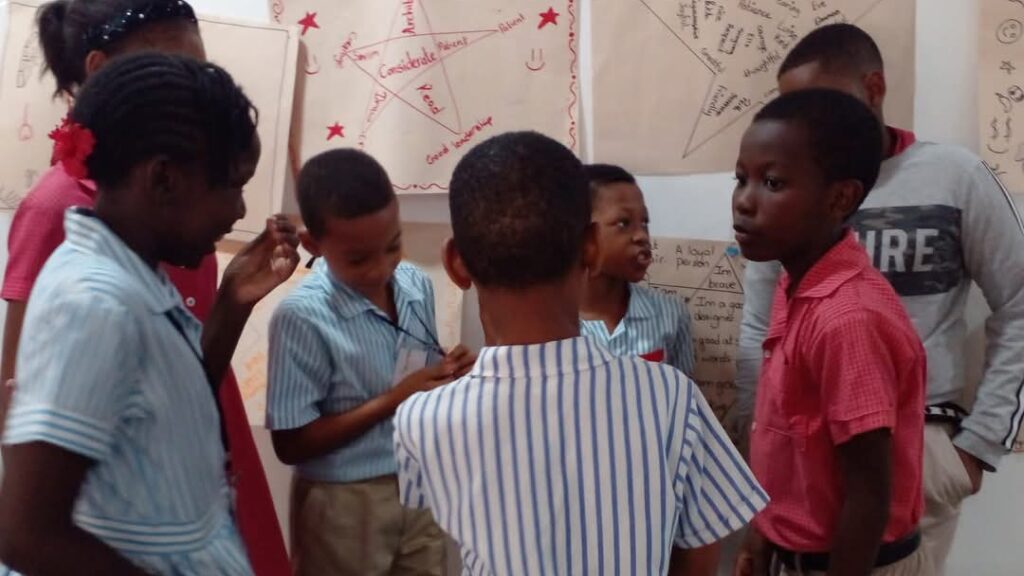
Global Collaboration and Advocacy
In addition to the country-specific progress, several key activities have significantly amplified the program’s impact.
On 23 September, a consultation with 25 learners from participating countries was held in collaboration with the United Nations Office of the High Commissioner for Human Rights (OHCHR) and UNESCO. This consultation gave children a platform to voice their ideas, requests, and concerns regarding the United Nations Human Rights Council Resolution on Ensuring Quality Education for Peace and Tolerance for Every Child. The insights and recommendations gathered from the children have been shared with the OHCHR, offering a vital contribution to shaping policies that reflect the needs and perspectives of those directly affected.
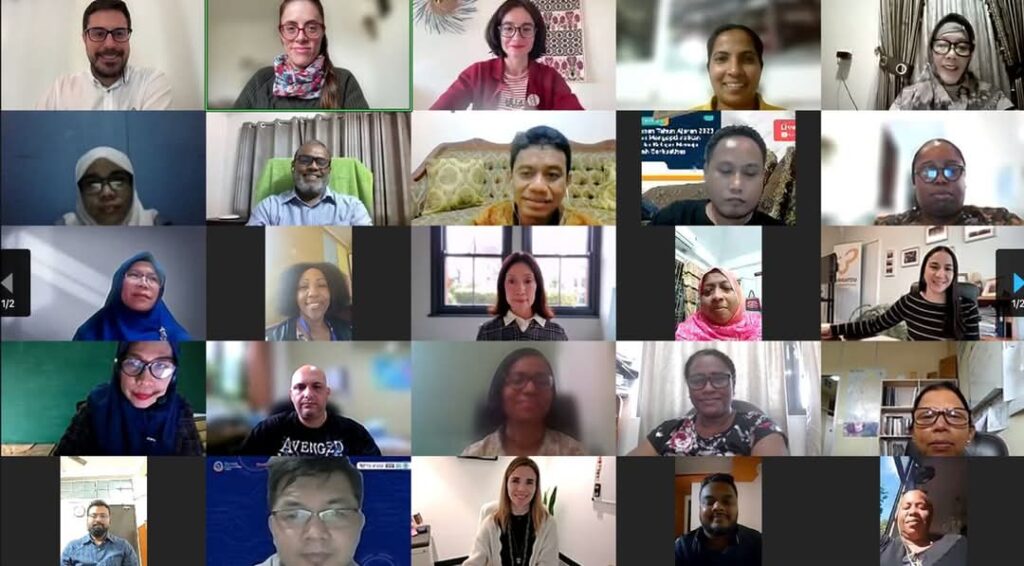
On 27 November 2024, the first Learning Circle of the second phase took place, bringing together 65 participants for an engaging online gathering. Fellows and teachers from across the program shared exemplary practices from their countries, fostering a vibrant space for collaboration, innovation, and mutual learning.
As the second phase progresses, the Ethics Education Fellowship demonstrates the power of ethics education to foster peaceful, inclusive, and resilient communities. Its success across all six countries paves the way for a global movement that is reshaping education.
The post We are Transforming Education: Scaling up The Reach and Impact of The Ethics Education Fellowship appeared first on Ethics Education for Children.
06/12/2024 - Faith Communities Take Center Stage in Global Effort to End Violence Against Children
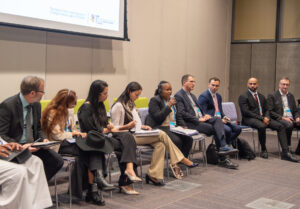
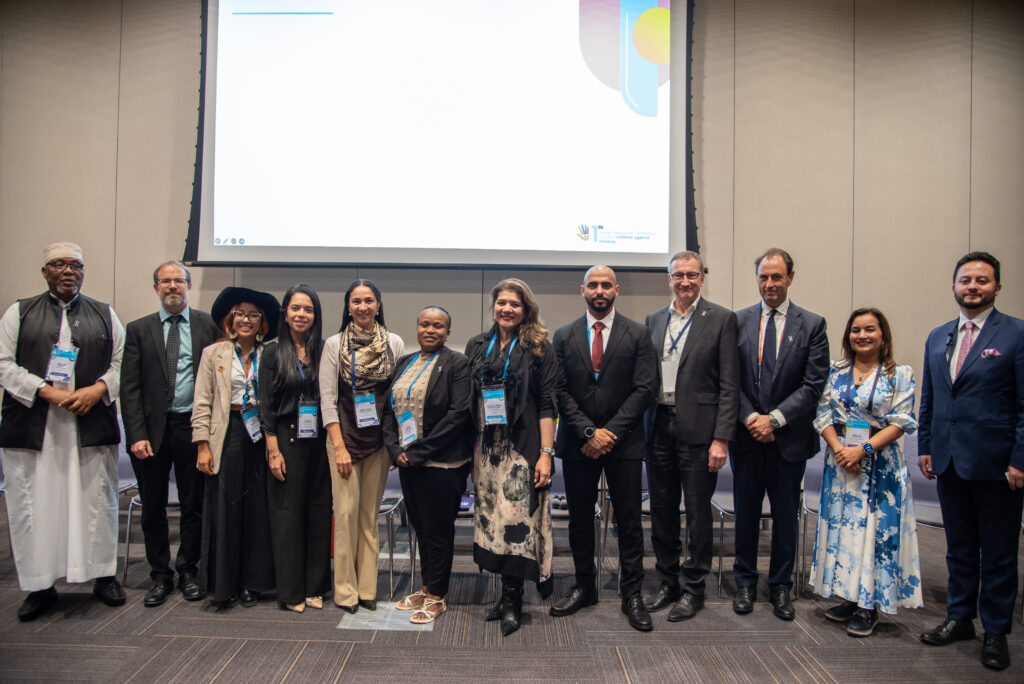
A significant step forward in the global efforts to end violence against children was taken at the Global Ministerial Conference on Ending Violence Against Children held in Bogota, Colombia from 7-8 November 2024.
During the meeting, Arigatou International held a side event on The Role of Religious Leaders in Ending Violence Against Children, hosted in collaboration with the Interfaith Alliance for Safer Communities, United Nations Office on Violence against Children, World Council of Churches, and World Vision International.
This timely gathering brought together more than 60 participants including religious leaders, government representatives, civil society actors, and children to highlight the critical role faith communities play in child protection. Moderated by Ms. Maria Lucia Uribe, Executive Director of Arigatou International Geneva, the discussions resonated with a shared commitment to fostering collaboration and action.
Keynote speaker Sheikh Ibrahim Lethome, Secretary General of the Centre for Sustainable Conflict Resolution, and Legal Advisor of the Supreme Council of Kenya Muslims, brought attention to harmful practices sustained under the guise of religion. He pointed out that cultural and religious norms sometimes perpetuate violence against children, despite existing laws. His call for faith leaders to challenge such practices resonated deeply. Faith leaders, he argued, are uniquely positioned to reconcile faith with child protection.

Voices from diverse regions and faith traditions shared powerful insights, and government officials from Colombia, Pakistan, the United Arab Emirates, and Zambia underscored the unique influence and reach of faith communities in addressing systemic issues. Their trust, values, and leadership within communities place them in a pivotal position to advocate for and protect children.
H.E. Msgr. Luis Manuel Ali Herrera of the Pontifical Commission for the Protection of Minors shared good practices from the Catholic Church, emphasizing the importance of global accountability in safeguarding children, and stressing the need for standardized measures to protect children.
Building on this, Ms. Ornella Barros, Program Officer at Arigatou introduced the Toolkit Nurturing the Spiritual Development of Children in the Early Years, developed by the Consortium on Nurturing Values and Spirituality in Early Childhood for the Prevention of Violence. This resource focuses on equipping faith actors to protect children from violence in early childhood by supporting parents, caregivers, educators and communities to nurture children’s spiritual development. She shared how the Toolkit has been successfully implemented in Mexico, Brazil, Pakistan, and India.
The discussion also featured success stories from around the world. Ms. Sarah Ahmad, Member of the Provincial Assembly, and Chairperson of the Child Protection and Welfare Bureau, Punjab, shared how collaboration with religious leaders has led to impactful results in the past, like the reduction of polio cases. She also shared how they are promoting positive parenting across 900 mosques and shrines in Punjab, Pakistan.
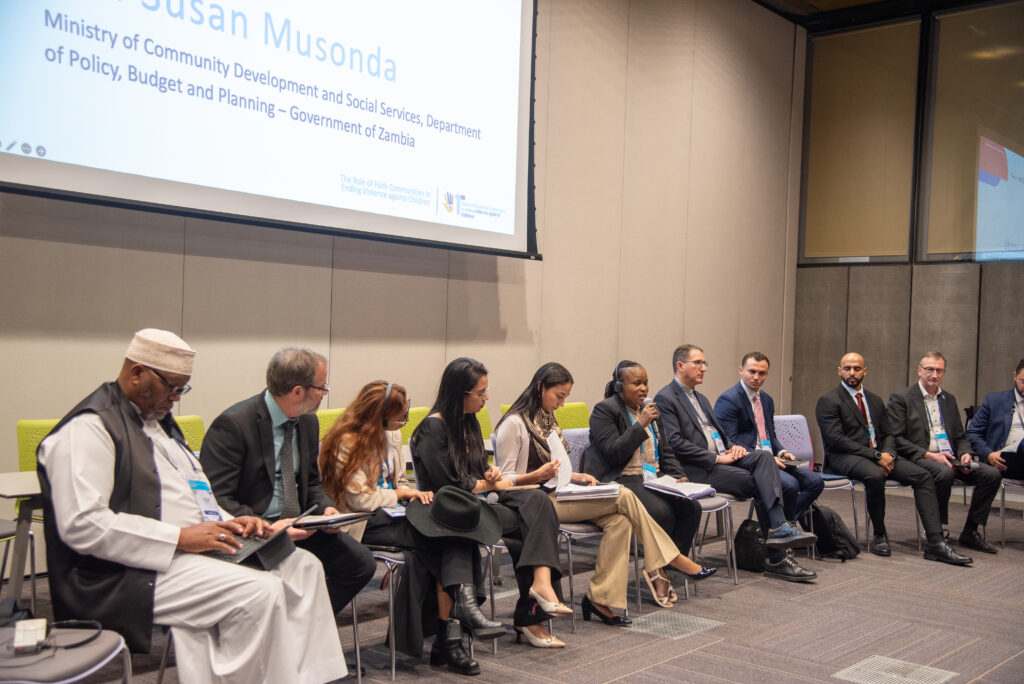
Ms. Susan Musonda, from the Ministry of Community Development and Social Services of the Government of Zambia, highlighted how intergenerational dialogues and the involvement of traditional leaders have driven meaningful change, noting that “When faith leaders speak, people tend to listen.” Similarly, Lt. Col. Abdulrahman AlTamimi, Deputy Director General of the International Affairs Bureau at the UAE Ministry of Interior, emphasized the trust people place in religious leaders. He explained that this trust often positions them as first responders, offering not only spiritual support but also moral, emotional, and material assistance.
Salome, a child representative from Colombia, provided a moving perspective on the normalization of violence against children within cultural and religious contexts. “Many beliefs normalize certain types of violence against children,” she said, calling for laws, education, and collaboration with religious leaders to create safe spaces for children and effective support channels.
Mr. Bill Forbes, Global Director of Child Protection and Participation from World Vision shared insights from a five-year research project, highlighting the profound impact of faith communities in ending violence against children. He talked about “Channels of Hope” a program to empower faith leaders through dialogue and reflection. Echoing this, Mr. Peter Prove, Director of the Commission of the Churches on International Affairs of the World Council of Churches (WCC), showcased the success of collaborative church initiatives addressing violence in all its forms. According to Prove, “The structural violence against children represented by inaction to prevent the climate catastrophe is an aspect that the WCC is emphasizing, along with the close nexus between its peacebuilding work and the protection of children from violence, including the situation of children recruited by armed groups.”
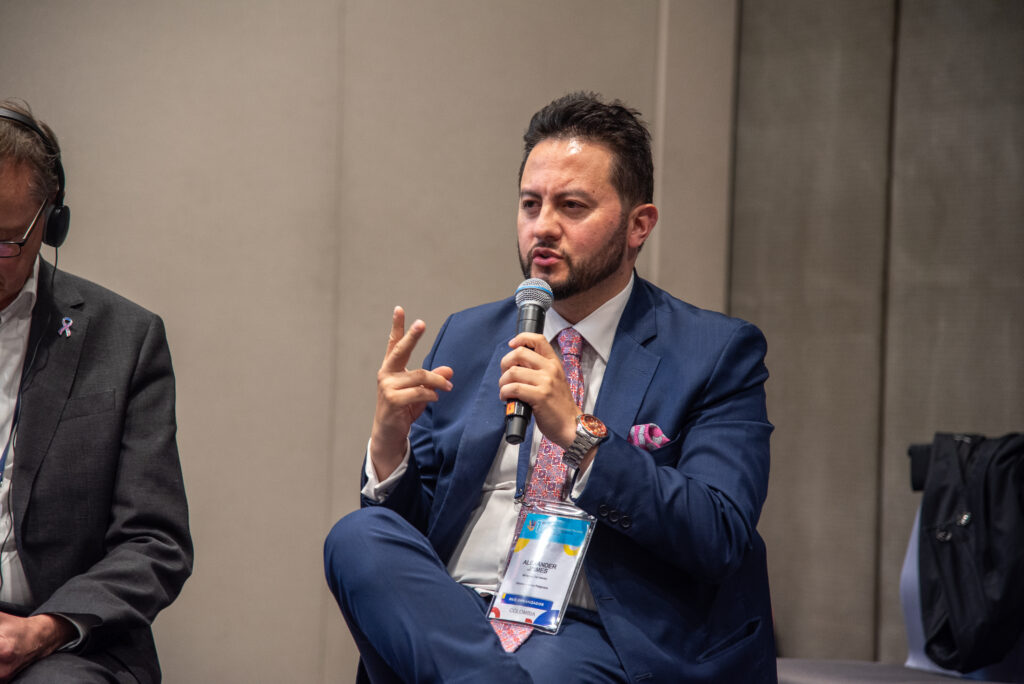
The event also spotlighted innovative policy-level work in Colombia. Dr. Alexander Jaimes, Director, Office of Religious Affairs, Ministry of Interior of Colombia, described how faith communities became pivotal during the pandemic, helping to prevent child abuse and suicide while fostering social cohesion. Religious leaders in the country have also been instrumental in sharing best practices, providing expertise, and extending protection to areas beyond the government’s reach.
As the discussions drew to a close, Dr. Lorena Rios, Colombian Senator and Coordinator of the Commission for Childhood and Adolescence, Congress of Colombia, emphasized the importance of including children’s voices in decision-making. “Listening to children’s voices is mandatory. Any activity or policy that comes from a State or a civil society organization must include their protagonists, and in this case, the protagonists are children,” she affirmed.
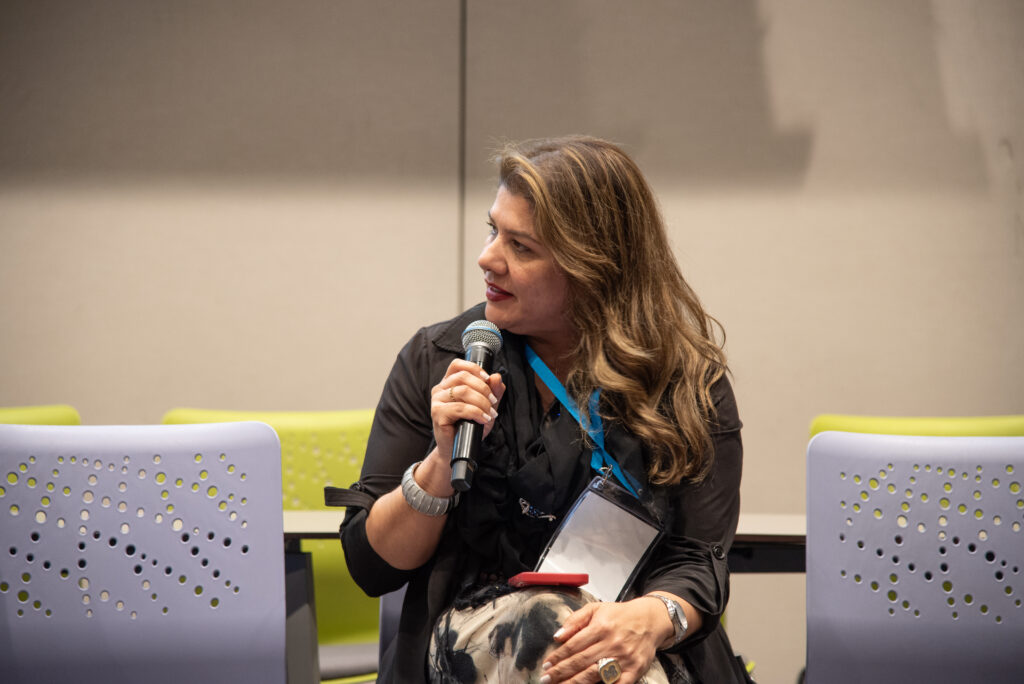
Mr. Pablo Espiniella, Senior Special Assistant and Chief of Staff at the United Nations Office of the Special Representative of the Secretary-General on Violence Against Children, delivered the closing remarks. He highlighted the renewed Pathfinding Initiative (Pathfinding 2.0), launched during the conference, and emphasized its goal of prioritizing child protection on government agendas through a cross-sectoral, bottom-up approach. Mr. Espiniella underscored the vital role of faith communities in supporting and advancing this initiative.
The event concluded with a call to action, emphasizing the need to scale up successful practices in a cost-effective manner and enhance coordination among faith actors, civil society, and governments.
Key recommendations included strengthening the capacity of religious leaders to effectively protect children, leveraging the influence of faith communities to address the needs of the most vulnerable children—such as those on the move, children living on the streets, and others—and building evidence on the role and effectiveness of faith communities in ending violence against children. Additionally, participants called for creating spaces to showcase and promote successful collaborations between governments, religious communities, and faith-based organizations. They also recommended formalizing the services provided by religious communities as part of national child protection systems.
We extend our gratitude to the organizers of the Ministerial Meeting for creating a platform to address these critical issues. We also thank our partners and panelists for generously sharing their time and expertise, and contributing to the global movement to end violence against children.
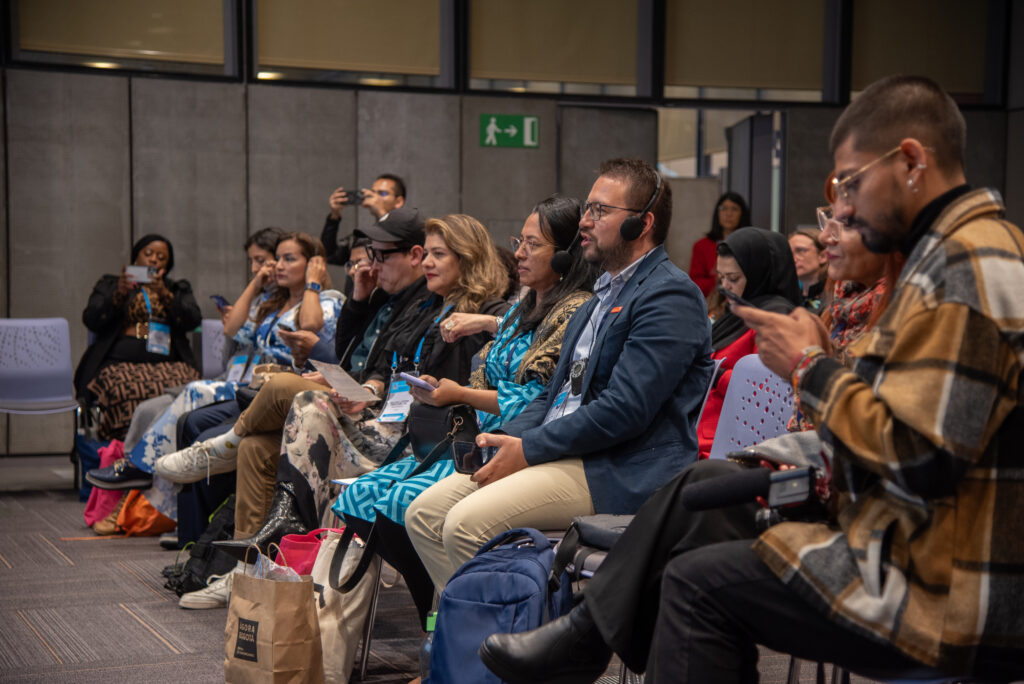
The post Faith Communities Take Center Stage in Global Effort to End Violence Against Children appeared first on Ethics Education for Children.
20/11/2024 - Empowering Educators in Burkina Faso: Training for Safe and Supportive Learning Environments
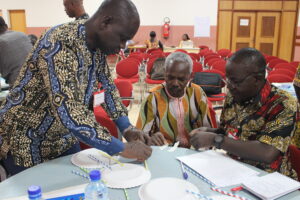
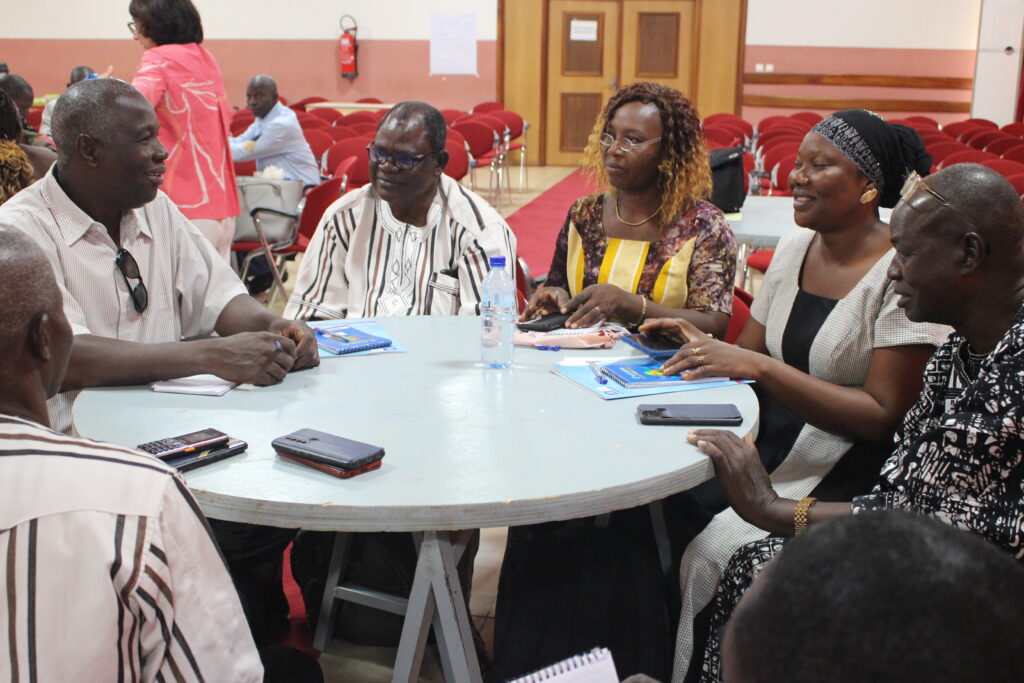
From 21 to 25 October 2024, Ouagadougou, Burkina Faso, became the center of an inspiring initiative to strengthen education. Fifty teachers and teacher trainers from across the country gathered at the Town Hall of Ouagadougou for an interactive workshop aimed at fostering transformative safe, supportive, and resilient learning environments for children.
This workshop is part of the project, “Creating Safe, Supportive, and Resilient Learning Environments to Safeguard Children’s Right to Education Amid Conflict and Crises,” supported by the Government of Japan. It focuses on equipping education stakeholders with the skills and tools to ensure children’s rights to education are upheld, even in the face of conflict and crisis.
Opening Ceremony with Distinguished Guests
The opening ceremony was attended by prominent officials, reflecting the significance of the initiative. Among them were the Chargé d’Affaires of the Embassy of Japan in Burkina Faso, Mr. Hiroyuki Kanda, and the Secretary-General of the Burkinabe National Commission for UNESCO, Dr. Fatie Ouattara.
Their presence underscored the collaborative spirit behind this initiative, co-hosted by the Ministry of Education, the National Commission of UNESCO of Burkina Faso, and UNESCO IICBA, with facilitation by Arigatou International – Geneva.
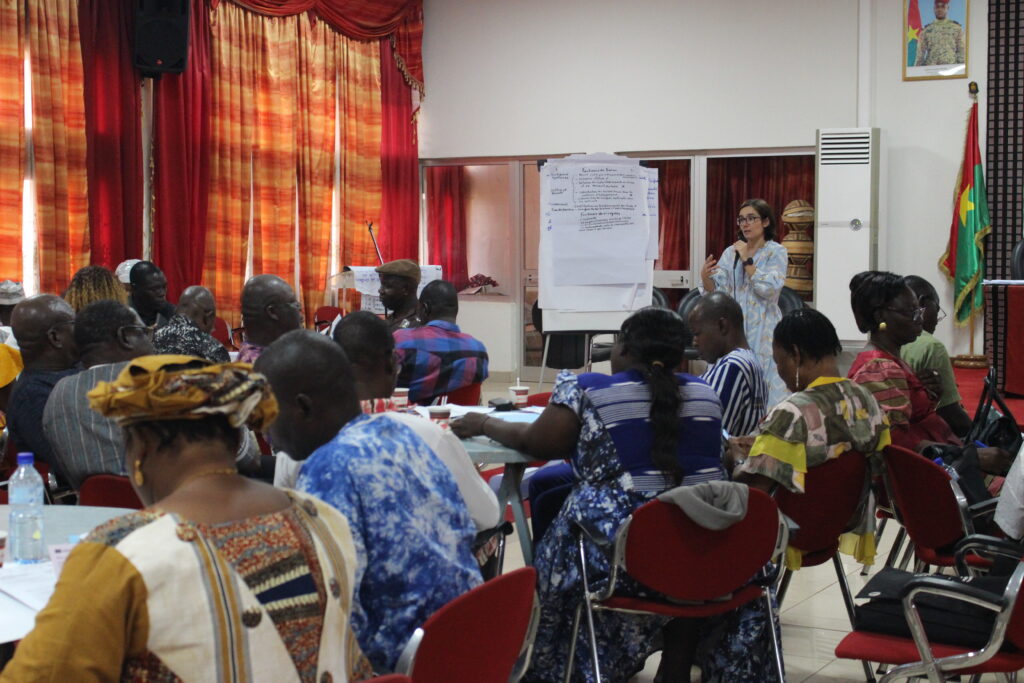
A Hands-On Approach to Learning
Facilitated by Ms. Eleonora Mura, Senior Expert on Ethics Education for Children at Arigatou International – Geneva, and Prof. Boubacar Niane of Université Cheikh Anta Diop, Dakar, Sénégal, the workshop was designed to empower participants through interactive sessions based on transformative pedagogy and Arigatou International’s Ethics Education Approach.
At the training workshop, participants gained in-depth knowledge about creating Transformative Safe Learning Environments and supporting learners’ well-being; developed essential skills to design learner-centered activities that integrate safety and well-being into national training programs; and learned to deliver engaging training sessions using participatory, transformative pedagogy, including integrating play-based activities. The workshop focused on the holistic well-being of teachers and learners, integrating also mental health and psychosocial support activities.
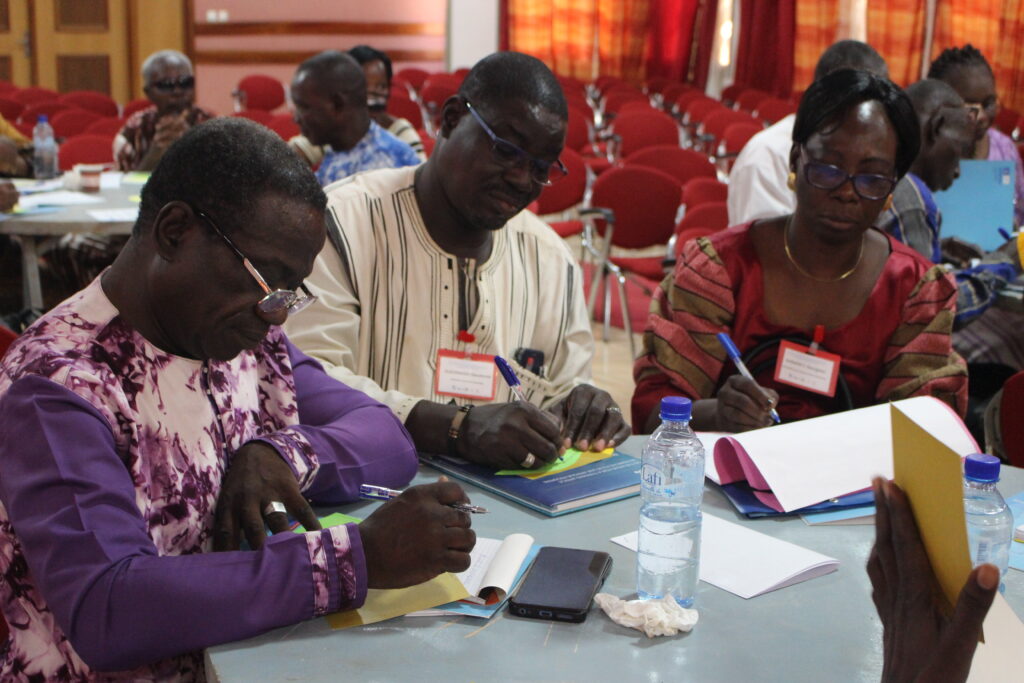
For many participants, the workshop provided their first encounter with creating Transformative Safe Learning Environments. The impact was immediate and deeply felt. “I thought it was not possible to create safe environments given the challenges we face, but I learned that we can do so with joy and play,” shared one participant. “I learned that motivation is key to creating a stimulating learning environment. I felt motivated throughout and want to inspire my students,” said another.
This training is particularly focused on addressing school violence in Burkina Faso, including physical, psychological, and inter-ethnic challenges, which threaten the safety and academic success of learners.
Participants concluded the workshop by developing actionable plans and a concrete project to implement safe and inclusive practices in their schools. The project will be finalized with their learners, and implemented with the support of mini-grants awarded to each school.
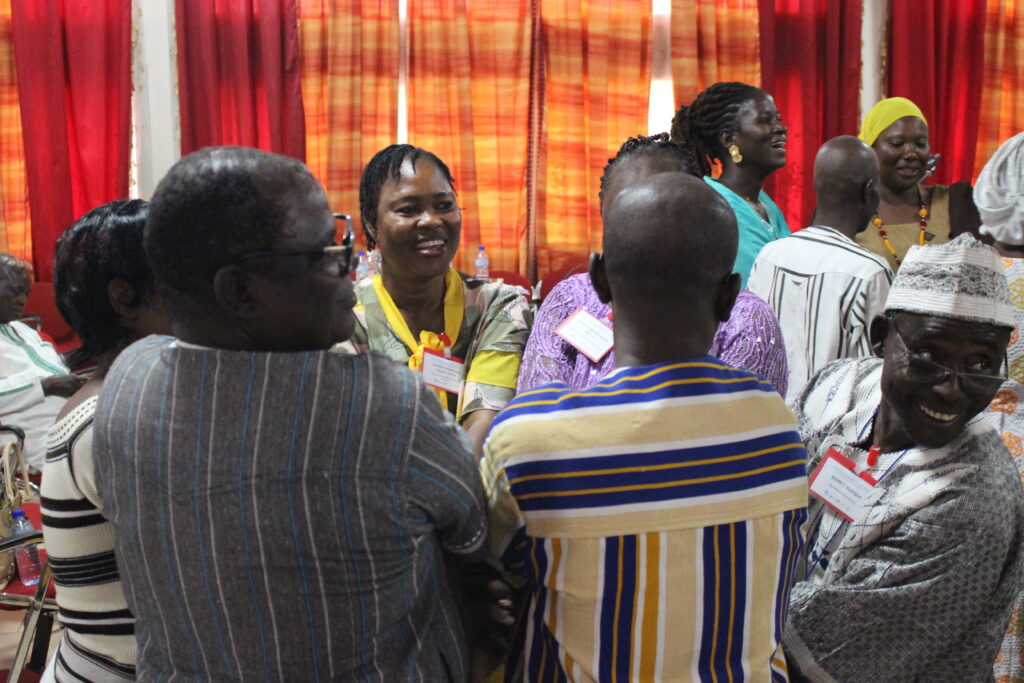
A Regional Initiative
This workshop is part of a broader project spanning Burkina Faso, the Central African Republic, Mali, South Sudan, Chad, and Niger, with the shared goal of promoting safe, supportive, and resilient school communities.
By empowering educators to create transformative learning environments, this initiative ensures that children’s rights to education are upheld, even in the most challenging contexts.
We thank our partners for trusting Arigatou International with this unique endeavor. Together, we are building a future where every child can learn, grow, and thrive in a safe and supportive environment.
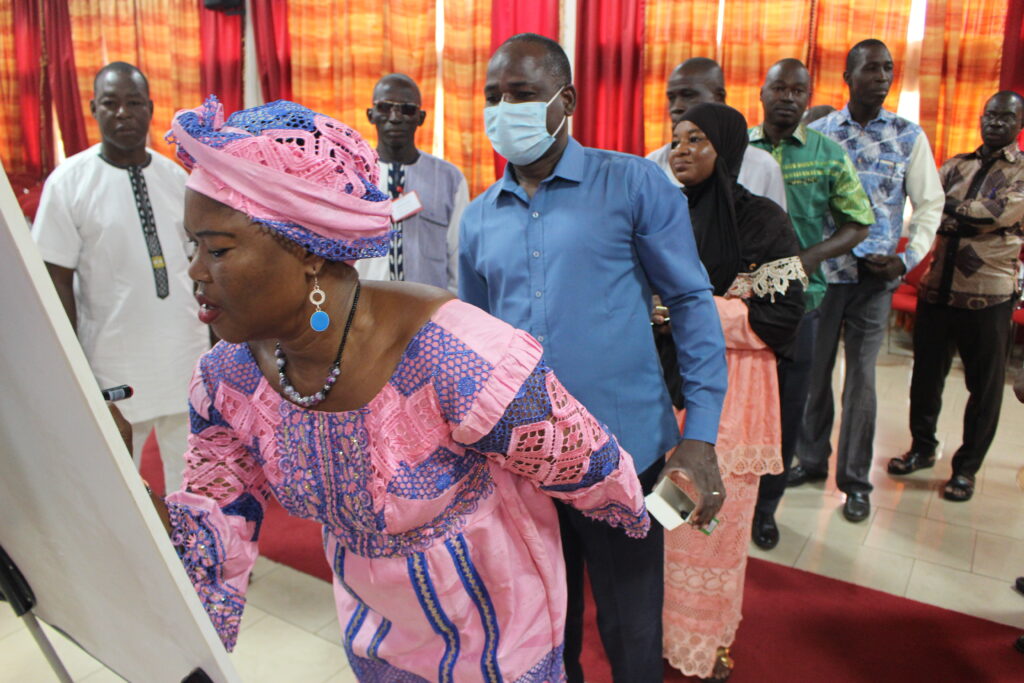
The post Empowering Educators in Burkina Faso: Training for Safe and Supportive Learning Environments appeared first on Ethics Education for Children.
16/11/2024 - Workshop Highlights Ethics Education’s Role in Tackling Discrimination and Xenophobia in Schools
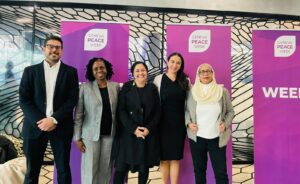
During the 11th Geneva Peace Week, a hybrid workshop titled “Addressing Discrimination and Xenophobia in Schools through Ethics Education Transformative Pedagogies” brought together educators, policymakers, and peacebuilders. Organized by Arigatou International, the Kenya and Indonesia National Commissions for UNESCO, and UNESCO’s Multisectoral Regional Office for Eastern Africa, the session explored how ethics education can counteract discrimination and foster inclusive environments in schools.
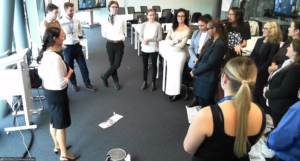
Moderated by Mr. Francisco Vila, Head of Programs at Arigatou International, the workshop featured interactive exercises designed to confront ethical dilemmas related to privilege and exclusion. One activity, “Diminishing Islands,” engaged on-site participants in discussions about real-world scenarios involving social dynamics, encouraging them to explore non-violent and inclusive responses to discrimination.
Ms. Maria Lucia Uribe, Executive Director of Arigatou International—Geneva, opened the dialogue by underscoring ethics education’s transformative potential in addressing discrimination and xenophobia. She highlighted the importance of cultivating empathy and mutual respect among students to create inclusive learning environments.
Following the activity, Ms. Schéhérazade Feddal, Education Program Specialist at UNESCO’s Multisectoral Regional Office for Eastern Africa, explained how the transformative pedagogy behind ethics education equips children and youth with essential life skills. By placing students at the heart of the learning process, this approach fosters empathy and understanding across cultural and religious divides, helping young people to appreciate diversity and develop inclusive perspectives.
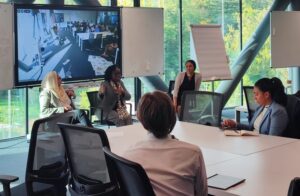
Ms. Mary Kangethe, Director of Education Programs at the Kenya National Commission for UNESCO, shared insights from the Ethics Education Fellowship, a program that has been implemented in six countries, including Kenya. She noted that the program, led by the Ministry of Education in Kenya, has heightened children’s awareness of social and cultural dynamics, encouraging them to be more attuned to issues of privilege and bias. Kangethe highlighted the interfaith and intercultural elements of the program, which have offered students new perspectives on diverse religions and cultures. Monitoring and evaluation results have shown that ethics education can positively impact academic performance by building students’ self-confidence and resilience.
Dr. Itje Chodidjah, Executive Chair of the Indonesian National Commission for UNESCO, spoke about the Fellowship’s integration within Indonesia’s educational framework. She explained how it aligns with the Pancasila Profile—Indonesia’s philosophical foundation—incorporated in the national curriculum. The Fellowship’s approach introduces students to interfaith understanding, promoting awareness and mutual respect across diverse beliefs. Teachers involved in the program also play a key role, modeling inclusive behavior and collaborating across schools.
The workshop concluded with an engaging Q&A session, where participants discussed the practical applications of ethics education for peacebuilding and inclusivity in schools. Geneva Peace Week 2024, held from October 14 to 18 at the Maison de la Paix and themed “What is Peace?”, featured over 70 events with 117 partner organizations. This week-long gathering offered a unique platform for global peacebuilders, fostering discussions on how initiatives like ethics education can play a vital role in shaping inclusive, peaceful societies.

We extend heartfelt thanks to Geneva Peace Week for providing a space for dialogue and learning, to our partners for their invaluable trust, to the facilitators for sharing their expertise, and to all participants for their enthusiastic engagement.
The post Workshop Highlights Ethics Education’s Role in Tackling Discrimination and Xenophobia in Schools appeared first on Ethics Education for Children.
26/09/2024 - Arigatou International Advocates for Peace Education at the 57th Human Rights Council: A Global Call for Mutual Understanding and Inclusion
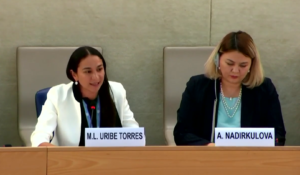

“Education is not neutral. It has two faces. It can either promote mutual understanding, respect, trust and collaboration, or it can exacerbate divisions, polarization, hatred and fear of the other,” said Ms. Maria Lucia Uribe, Director of Arigatou International Geneva, as she addressed global leaders and advocates in a panel discussion on Quality Education for Peace and Tolerance for Every Child at the 57th Session of the Human Rights Council.
The panel discussion, held on 18 September 2024, focused on Resolution 54/5, which emphasizes the need for accessible, equitable, and quality education that promotes peace and tolerance, especially for vulnerable children. The resolution, spearheaded by Kazakhstan, Kyrgyzstan, Tajikistan, Turkmenistan and Uzbekistan, aims to harness education as a tool for peacebuilding and societal harmony.
Opening the dialogue, Deputy High Commissioner for Human Rights, Ms. Nada Al-Nashif, drew attention to the 460 million children in the world who are deprived of education due to violence, stressing that peace education is crucial even in relatively peaceful societies. She warned that no nation is immune to structural violence, hate speech or gender inequality. “Empowering children with the knowledge, skills and values necessary to contribute to an equitable society is increasingly acknowledged across all United Nations pillars,” she stated reaffirming the role of education in the achievement of peace and security.
H.E. Ms. Alua Nadirkulova, Ambassador-at-Large of the Ministry of Foreign Affairs of Kazakhstan, representing the Central Asian nations behind the resolution, shared her country’s efforts in the repatriation and reintegration of children from conflict zones, including those returning from Syria and Iraq. As a result, over 200 children were enrolled in preschool education and more than 200 children were enrolled in schools. “Only through respect for human rights and fundamental freedoms can peace and tolerance be truly promoted,” she concluded.
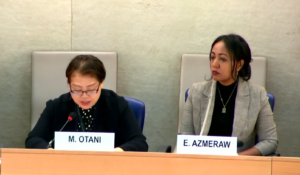
Member and former Chair of the UN Committee on the Rights of the Child, Ms. Mikiko Otani, emphasized the critical role of education in fostering peace, tolerance, and human dignity, asserting that “education is the key” to building sustainable peace, especially for children affected by conflict. Drawing on Article 26 of the Universal Declaration of Human Rights and the Convention on the Rights of the Child, she called for the integration of peace education and human rights education into school curricula worldwide, starting from early childhood.
UNESCO’s Ms. Eyerusalem Azmeraw, representing the International Institute for Capacity Building in Africa (IICBA), showcased the organization’s contributions to peace education in collaboration with Arigatou International. She shared success stories from initiatives in Nigeria, Tunisia, Algeria, Kenya and Uganda. Ms. Azmeraw also called for adequate resource allocation for peace education, strengthened teacher training institutions, community engagement, and multi-sectoral collaboration among other necessary measures.
Drawing on Arigatou International’s experience in over 50 countries, Ms. Uribe stresses the need for education systems to address structural violence, promote equity and empower children to work together across differences. She called for a whole-community approach, involving governments, religious communities, teachers and families, to create sustainable peace.
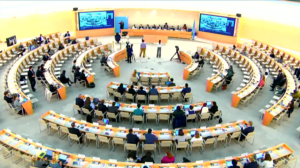
A key moment during the session was a video message from 15-year-old Vinaya, a child rights advocate from India. Vinaya spoke powerfully about the struggles faced by minority and disabled children in accessing education, stressing the vital role peace education can play in creating a more inclusive world. “We can make this world a better place by learning to live in harmony with others,” she reminded the audience.
Numerous states expressed strong support for the resolution during the session. Lithuania, Afghanistan and Ivory Coast highlighted the ongoing discrimination against girls in education. Sierra Leone, Namibia, Luxembourg and Mauritius advocated for free education to ensure universal access. Concerns about harmful rhetoric in educational materials were also raised by representatives from Israel, Armenia and Palestine.
The outcomes of the panel discussion will contribute to a comprehensive report on best practices and recommendations for advancing quality education for peace and tolerance. This report will be presented at the 59th session of the Human Rights Council and will inform the 2025 United Nations Peacebuilding Architecture Review.
Arigatou International remains steadfast in its commitment to fostering education systems that nurture values of peace and mutual understanding, empowering children to become key actors in building a peaceful and inclusive future.
The post Arigatou International Advocates for Peace Education at the 57th Human Rights Council: A Global Call for Mutual Understanding and Inclusion appeared first on Ethics Education for Children.
12/09/2024 - Launch of Publication on Effective Measures to End Violence Against Children
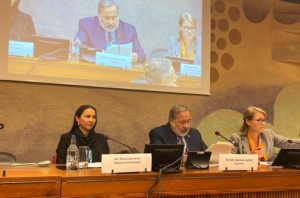
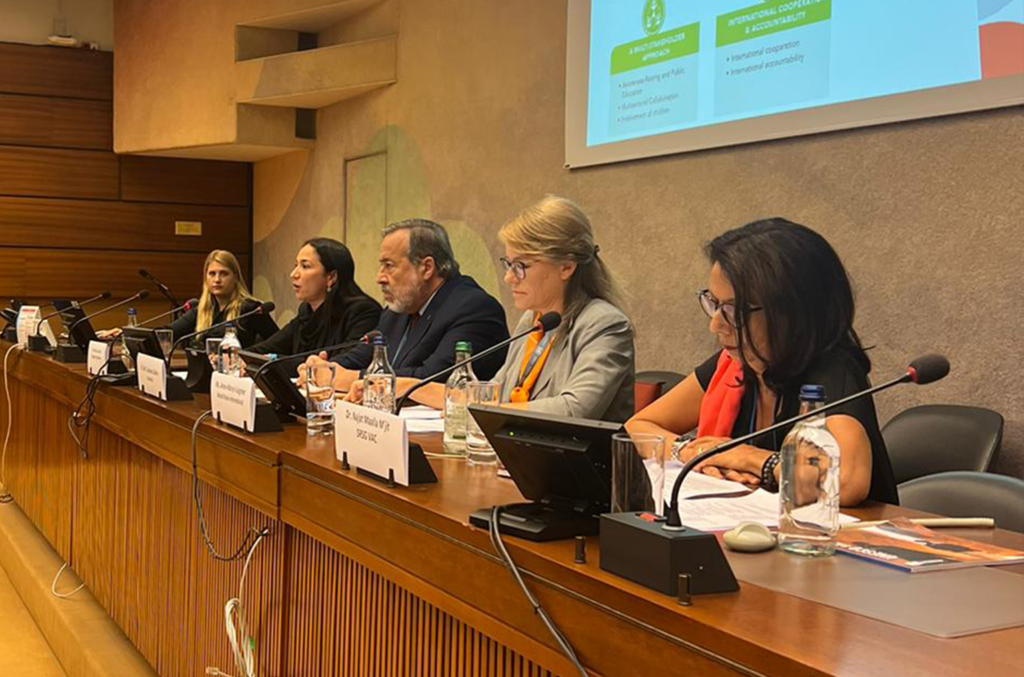
Despite significant progress driven by the United Nations (UN) and mechanisms such as the Convention on the Rights of the Child, children worldwide remain vulnerable to violence caused by structural issues like discrimination, displacement, and poverty. In response, the Working Group on Children and Violence, composed of civil society organizations dedicated to children’s rights, has developed a publication with recommendations to address these critical issues.
On September 10th, the Working Group, co-convened by Arigatou International and World Vision, launched this publication during the 57th session of the Human Rights Council at Palais des Nations in Geneva. The event was organized by Child Rights Connect, the Permanent Mission of Colombia to the UN in Geneva, the World Health Organization and the UN Secretary-General on Violence Against Children. More than 120 participants attended the event, including representatives from 31 Permanent Missions to the UN in Geneva, and more than 50 individuals from different countries joined online.
The publication “Eliminating Violence Against Children: Promoting the Adoption of Effective Measures for Ending Violence Against Children Through Human Rights Engagement” focuses on successful strategies rather than shortcomings. It highlights seven states—Zambia, Montenegro, Sierra Leone, Paraguay, Colombia, Indonesia, and Sweden—that have effectively addressed violence against children. Key strategies identified include political will, legislative frameworks, adequate budget allocation, capacity strengthening, multisectoral collaboration, child involvement, international cooperation and rigorous monitoring and evaluation.
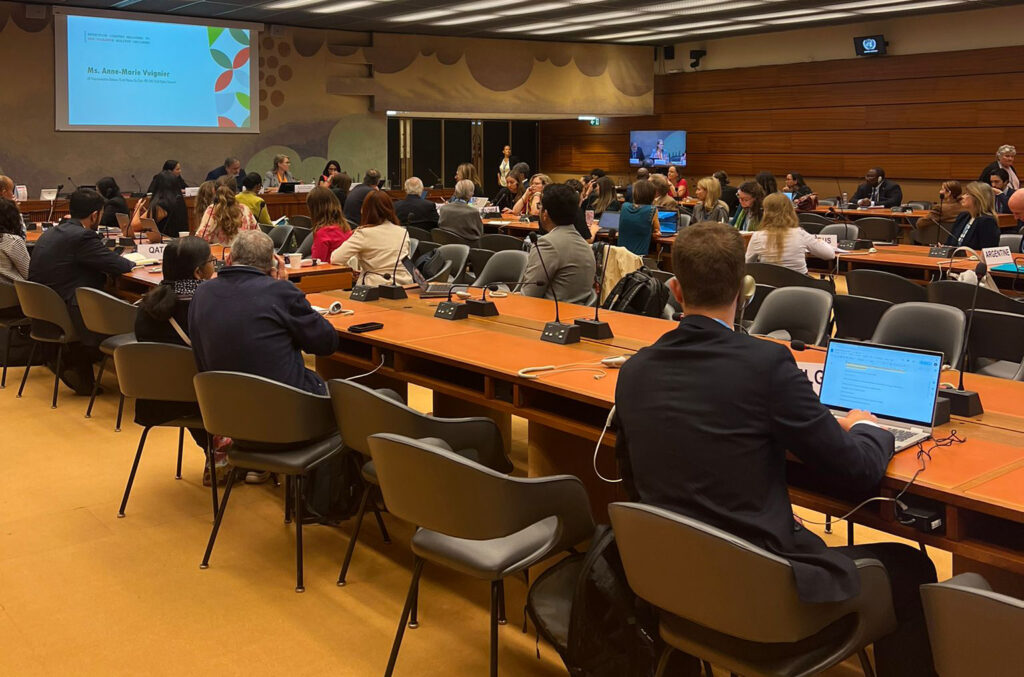
Recommendations for other states include adopting and implementing appropriate legislation, enforcing national child rights policies and action plans, establishing national data collection systems, allocating sufficient budgets, training human resources across sectors, engaging children in solutions and fostering international cooperation and accountability.
Key speakers at the launch included His Excellency Mr. Gustavo Gallon, Ambassador Extraordinary and Plenipotentiary of Colombia. H.E. Mr. Gallon described the publication as a testament to his country’s unwavering commitment to protecting children. Ms. Najat Maala M’jit, Special Representative of the Secretary-General on Violence Against Children, stressed the importance of involving children in solutions, noting, “Children have to be on board as part of the solution because they know very well what works and what doesn’t.” As violence impacts every aspect of life, and children often bear the brunt, it is crucial to include them in collaborative efforts to find sustainable solutions.
Ms. Maria Lucia Uribe, Executive Director of Arigatou International – Geneva, presented the main aspects of the publication, and emphasized, “Violence is preventable, violence can be effectively addressed, violence can be eliminated.” Ms. Anne-Marie Vuignier, UN Representative at World Vision International echoed this sentiment, stating, “We have very important tools; now it is about implementing them,” as she moderated the discussion.
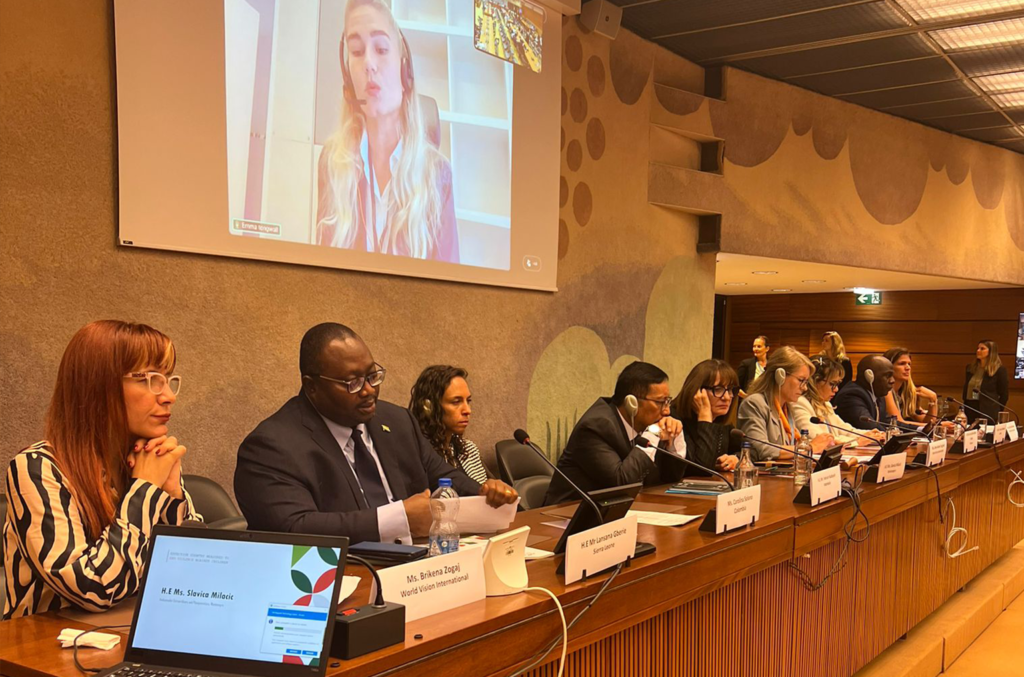
Speakers included the Permanent Representatives from states highlighted in the publication for their effective methods in combating violence against children. Ms. Carolina Solano, External Relations Advisor, from the Permanent Mission of Colombia, expressed her hope that the publication would aid other countries in policy-making. H.E. Mr. Frebriann Ruddyard from the Permanent Mission of Indonesia and H.E. Mr. Lansana Gberie from Sierra Leone emphasized stakeholder engagement and initiatives like school feeding programs. Deputy Permanent Representative of Zambia, Mr. Trevor Sichombo and H.E. Ana Edelmira Rolon, from the Permanent Mission of Paraguay highlighted the importance of multistakeholder cooperation and integrating children’s voices. “We need not only to rely on law and budget allocation, but with multistakeholder cooperation and integrating the voices of children,” she stated. From the Permanent Mission of Montenegro H.E. Ms. Slavica Milacic closed the country presentations with a global call to action, “ It’s time to translate our commitment to concrete actions.”
As the event neared its conclusion, Ms. Sabine Rakotomalala, Senior Technical Advisor at the World Health Organization, urged states to register for the upcoming Global Ministerial Conference on Ending Violence Against Children to be held on November 7-8, 2024, in Bogotá, Colombia. Ms. Brikena Zogaj, Senior Advisor on Child Protection at World Vision, concluded the event with a powerful message: “I choose hope.” She echoed the urgent plea of children, emphasizing that “every five minutes a child dies as a result of violence.” She urged states not to delay action, underscoring the critical need for immediate and sustained efforts to end violence against children.
Arigatou International expresses gratitude to the organizing partners, the representatives of Permanent Missions and the participants joining both onsite and online, for making this launch a success.
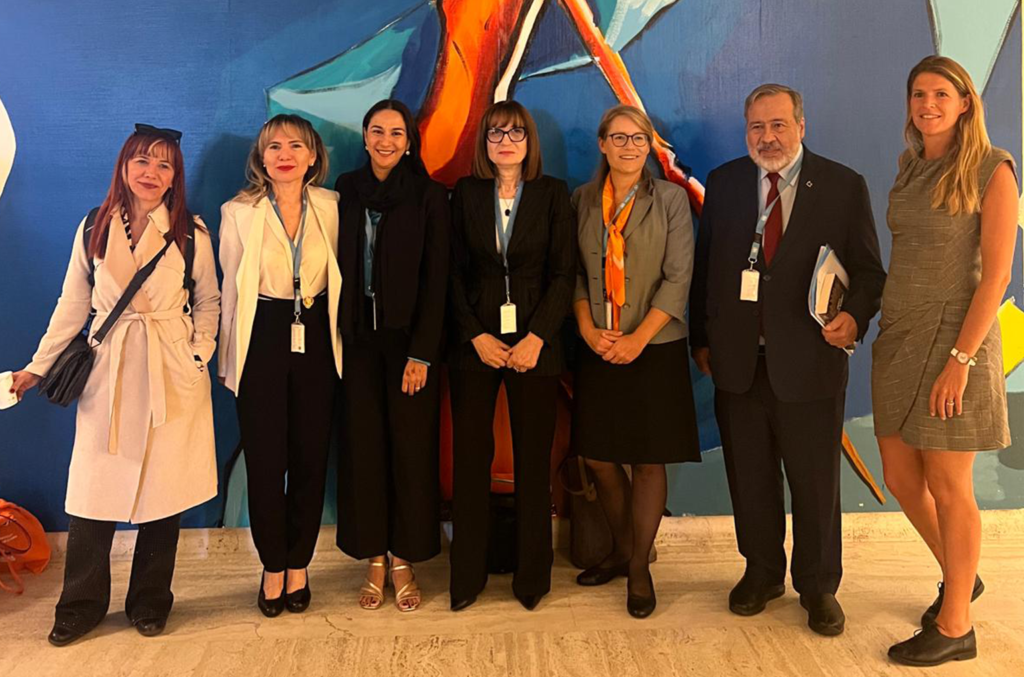
The post Launch of Publication on Effective Measures to End Violence Against Children appeared first on Ethics Education for Children.
12/09/2024 - “Learning to Live Together” Project Begins in Chile with an Inspiring Training Workshop
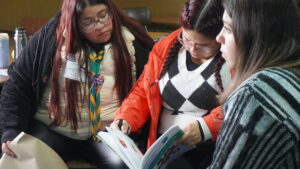
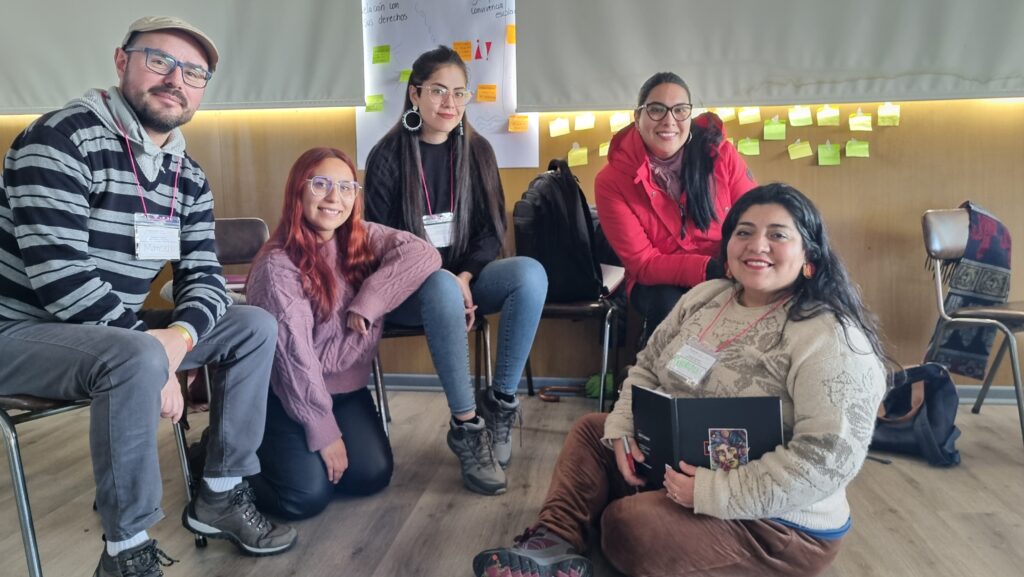 An inspiring workshop for facilitators of the “Learning to Live Together” program took place in Santiago, Chile, marking the beginning of a significant initiative to foster a better coexistence in diverse intercultural and interreligious contexts through ethics education. From July 31 to August 3, 2024, the Methodist Seminary hosted 25 participants, including educators and social workers from Methodist, Catholic and public schools, and leaders from the Scout Movement.
An inspiring workshop for facilitators of the “Learning to Live Together” program took place in Santiago, Chile, marking the beginning of a significant initiative to foster a better coexistence in diverse intercultural and interreligious contexts through ethics education. From July 31 to August 3, 2024, the Methodist Seminary hosted 25 participants, including educators and social workers from Methodist, Catholic and public schools, and leaders from the Scout Movement.
This workshop is the first phase of an intervention project to support each institution in integrating ethics education into their programs. The project includes the planning and implementation stages, as well as a monitoring, evaluation and learning process to ensure effective adoption and impact.
The workshop emphasized the critical role of values-based education in addressing the challenges faced by children and adolescents in Chile. The group engaged in deep reflection on these issues, exploring how education can contribute to creating inclusive and harmonious communities.
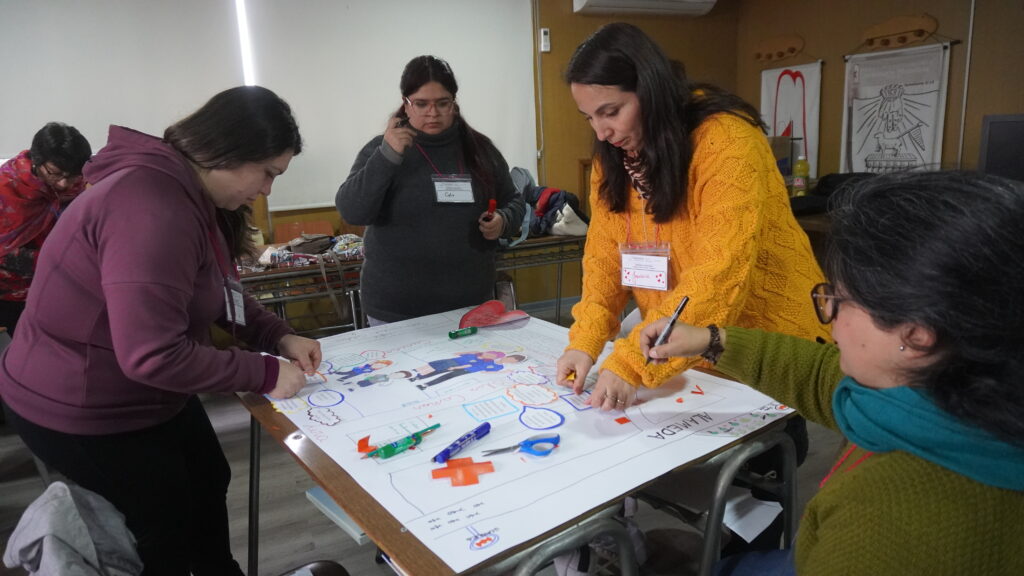
A central theme that emerged was the recognition of schools as safe havens for children. Participants widely agreed that schools provide a nurturing environment where children feel welcomed and supported. However, they also highlighted the stark contrast outside the school setting, where children face numerous difficulties, primarily due to parental absence. One of the participants, Ms. Loreto Jara, Head of School Coexistence at a public school emphasized, “The biggest challenge is loneliness. Children are very much alone. The school is a safe place where they can share, which is why we have so many extracurricular activities for them (…) I dream of seeing empowered children, full of confidence and hope for the future,” she added.
Another significant challenge discussed was education in migratory contexts. Ms. Javiera Fredes, Head of Pastoral Management at a Christian school, shared how 60% of her students are migrants, many of whom stay for only a year or two before migrating again. She highlighted the importance of nurturing values and critical thinking in children, “When you strengthen the ethical dimension, you provide pillars where children can ground themselves, giving them a solid foundation of ethical values to help them make the best decisions,” she stated. At the same time, she addressed the difficulty in providing migrant children with the tools they need to navigate today’s society and the issues they face daily.
The spiritual dimension was a key focus of the discussions. Ms. Tania Alvares, representing the Chilean Guides and Scouts Association, shared insights on how spirituality is woven into the scouting experience: “In Scouts, we strive to connect with nature and, through it, discover God or a higher power.” She highlighted the importance of their commitment to “always improving” and serving others. “This program deeply resonates with us because it honors both individual uniqueness and the values of living in a community.”
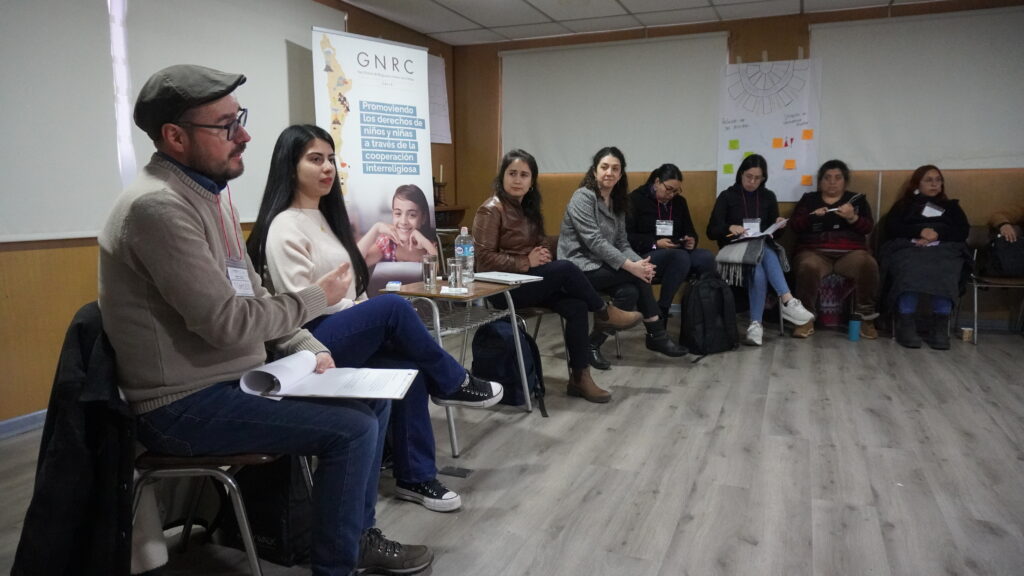
One of the workshop’s highlights was a dialogue with Ms. Cristina Vega, the National Head of School Coexistence from Chile’s Ministry of Education (MINEDUC). She provided a comprehensive analysis of the realities faced by children in the country, highlighting the importance of the Convention on the Rights of the Child. Alongside her, Ms. Consuelo Jara (19), a former member of the Advisory Council of the Office for the Defense of Children’s Rights, shared her powerful personal story. Ms. Jara’s experiences inspired her to found “Derribando Gigantes” (Tearing Down Giants), an organization led by children that focuses on preventing bullying and improving school coexistence. She recounted how, while still a student, she established the organization, underscoring the critical role the educational community plays in empowering children to become positive change agents.
The workshop was filled with enthusiasm, as the participants showcased their passion, eagerness to learn, and motivation to implement the program in their respective institutions. Key discussions revolved around respecting children’s rights and nurturing their spirituality. The dedication and experience of the participants shone through in their commitment to making a difference in their communities.
Participants represented different institutions, including the Methodist School of Santiago, Methodist School Los Andes, Sweet Nursery and Kindergarten, Cristóbal Colón School, Blas Cañas Commercial Institute, San Bernardo Belgium School and the Chilean Guides and Scouts Association.
The workshop was organized by the Global Network of Religions for Children (GNRC), GNRC Chile and Arigatou International – Geneva. Special thanks are extended to the facilitators, Mr. Marco Fabián Laguatasi Correa, Advisor for CELAM (Latin American and Caribbean Episcopal Council) and GNRC Ecuador Coordinator; Mr. Marcelo Neira, Director of Advocacy and Studies at the Archdiocese of Santiago; along with the support of Ms. Maria Jose Ananias, Coordinator of Networks and Programs for Latin America and the Caribbean at GNRC; Mr. Francisco Vila, Head of Programs at Arigatou International – Geneva; and Mr. Oscar Espinoza, Pastor at the Methodist Church of Chile, Chaplain of the Methodist School of Santiago and GNRC Chile Coordinator.
The success of this event is a testament to the collective effort and shared vision of those dedicated to improving the lives of children and creating a more peaceful, inclusive society. Thank you to everyone who made this significant workshop possible.
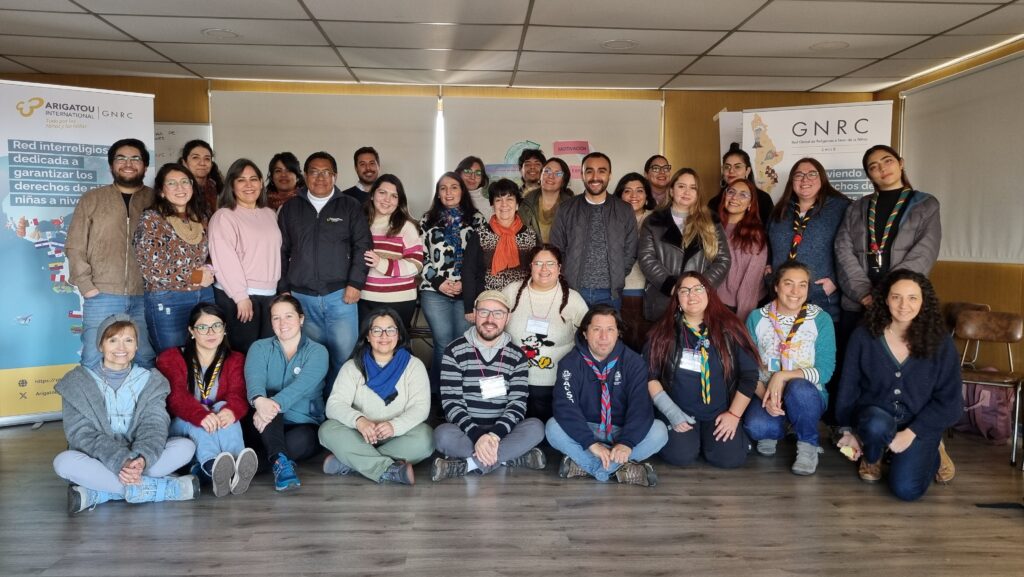
The post “Learning to Live Together” Project Begins in Chile with an Inspiring Training Workshop appeared first on Ethics Education for Children.
30/08/2024 - Groundbreaking Training Workshop Launched in Tanzania to Nurture Spiritual Development in Early Childhood
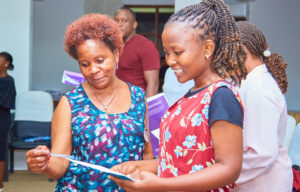
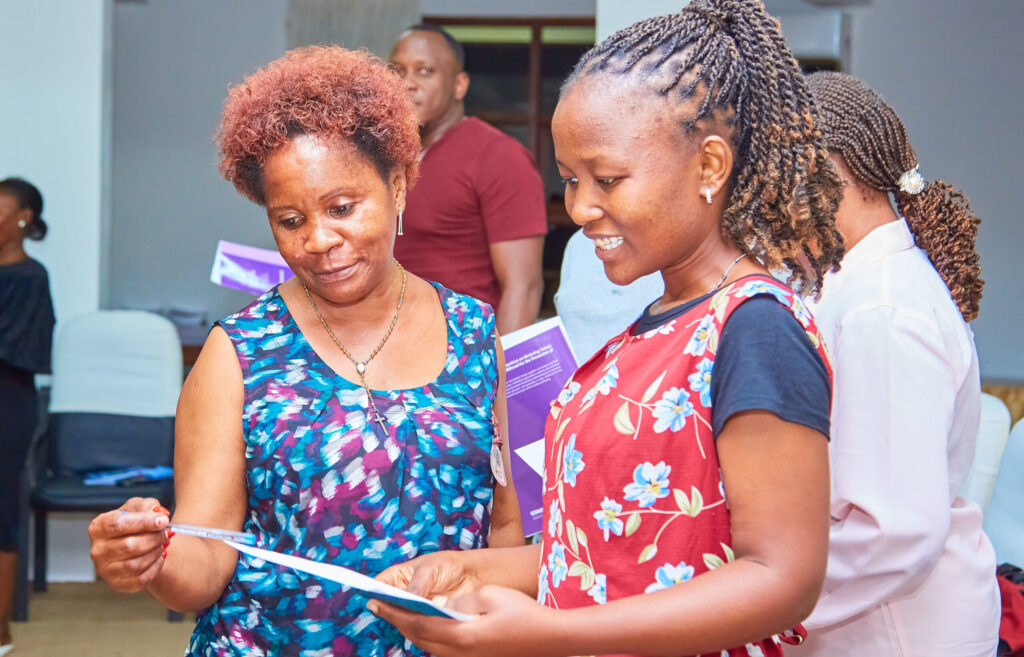
In a pioneering initiative, Arigatou International — Geneva, the Global Network of Religions for Children (GNRC) Tanzania, and the Global Religions for Children Foundation joined forces to carry out a training workshop in Tanzania. Launched during the Day of the African Child, the workshop equipped religious, community leaders, and social workers with skills to nurture the spiritual development of children in their formative years. The event is based on the innovative Toolkit, “Nurturing the Spiritual Development of Children in the Early Years,” developed by the Consortium on Nurturing Values and Spirituality in Early Childhood for the Prevention of Violence.
The workshop, held from 16-20 June 2024, brought together 16 participants from various faith communities, including Roman Catholics, Mennonites, the Shia Muslim community, and the Bahá’í community. Over the course of three days, participants reflected on the critical role of spiritual development in preventing violence in early childhood and learned how to facilitate similar workshops in their local communities for parents and caregivers.
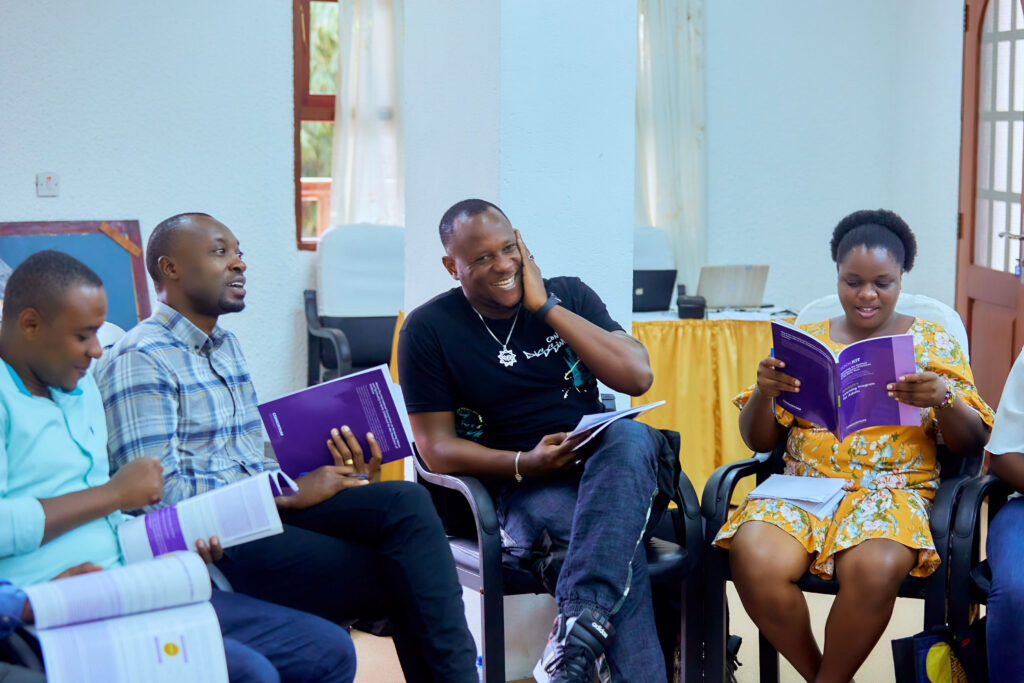
A highlight was the participation of Mr. Mathis Haule, Deputy Director of the Child Development Department from the Ministry of Community Development, Gender, Women and Special Groups in Tanzania. In his address, Mr. Haule provided an insightful overview of the challenges related to violence against children in Tanzania and emphasized the government’s ongoing collaboration with stakeholders to address this pressing issue.
Underscoring national initiatives for Early Childhood Development (ECD), Mr. Haule stated, “We are currently developing a national ECD program and guidelines for parenting. These initiatives do not currently include aspects of spiritual development despite its importance, and by participating in this workshop we look forward to understanding how we can integrate spiritual development into our national initiatives.”
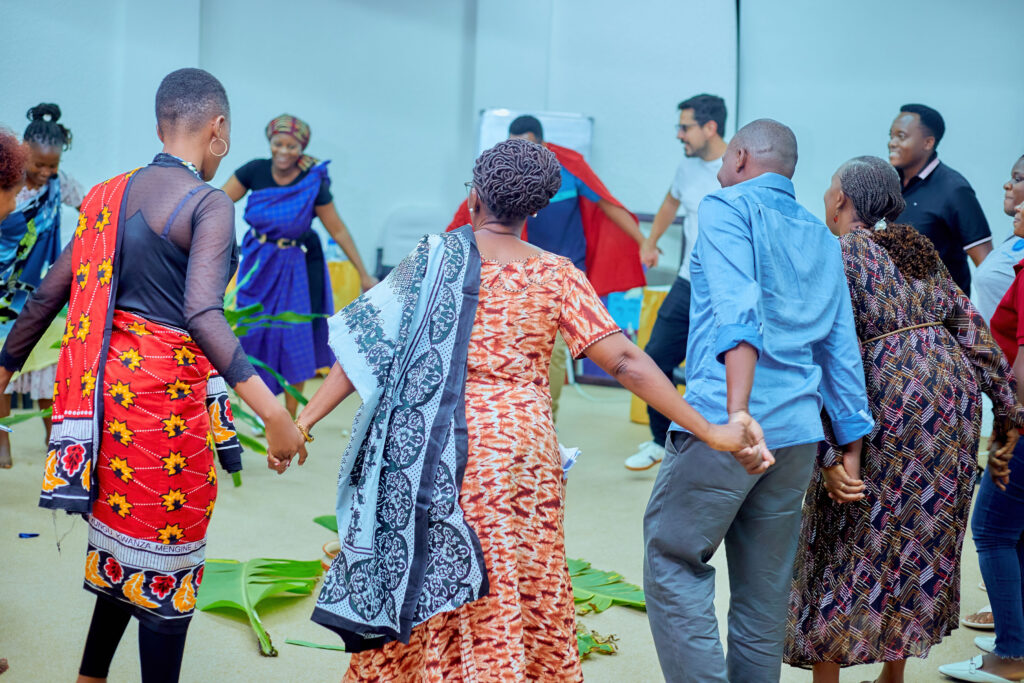
This workshop marks the first implementation of the Toolkit in Africa, positioning Tanzania as a leader in advancing spiritual development within the region. Participants include child development NGO representatives, project officers, religious leaders, and government consultants, many of whom bring substantial expertise in child development and ECD. Their main takeaways have centered on bridging the gap in integrating spiritual development into existing ECD programs and its profound link to preventing violence.
Participants reflected on the multifaceted nature of spirituality and its significance in shaping a child’s early years. Discussions focused on fostering safe environments, positive relationships, and empowering experiences that cultivate spiritual growth.
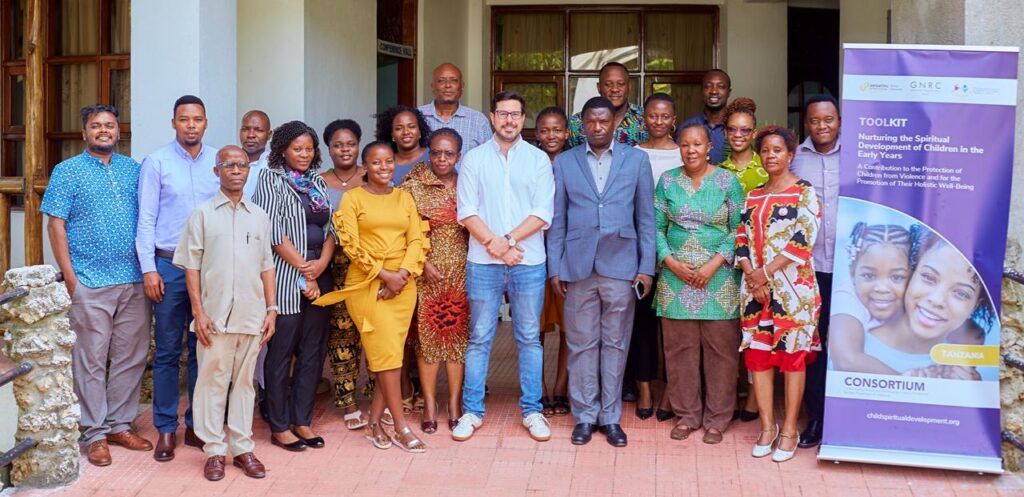
The workshop was facilitated by Mr. Suchith Abeyewickreme, Technical Lead, at Arigatou International – Geneva; Mr. Francisco Vila, Head of Programs at Arigatou International – Geneva; Ms. Joyce Mdachi, Coordinator at GNRC Tanzania; and Mr. Venance Temu, Project Officer at GNRC Tanzania. This initiative was possible thanks to the support of the Smart Peace Foundation.
As the program continues, the participants are expected to carry forward the teachings to their communities, contributing to a larger movement across Africa that prioritizes spiritual development as a cornerstone of child protection. The Shia, Bahai and Mennonites communities, as well as, the NGO Ladies Joint Forum committed to implementing the Toolkit within their existing ECD programs.
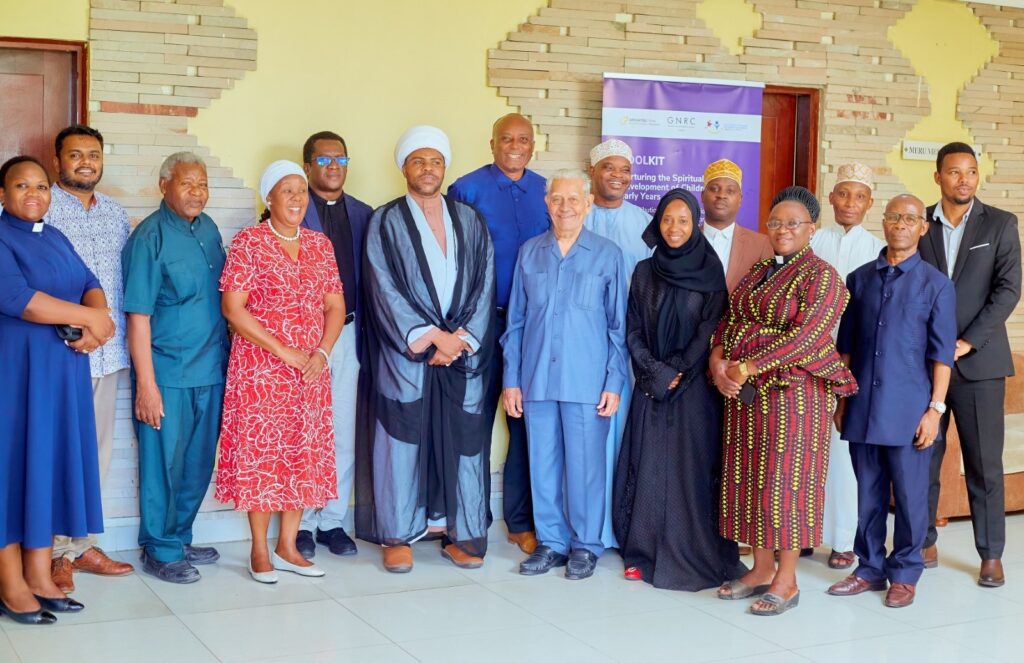
Following the workshop, a roundtable discussion took place on 21 June 2024, bringing together 11 religious leaders from diverse communities including the Anglican Church, Moravian Church, Shia Community, National Muslim Council of Tanzania (BAKWATA), Lutheran Church, Bahá’í Community, Hindu Community, and the Inter-religious Council for Peace Tanzania.
The roundtable aimed to introduce the Consortium and the Toolkit, explore potential synergies and collaborations, and discuss strategies for integrating the Toolkit into existing Early Childhood Programs. The discussion also focused on advocating for the inclusion of Spiritual Development in Early Childhood Development Programs at both national and regional levels.
We extend our gratitude to our partners for their steadfast commitment and to the participants for their dedication. This initiative was made possible with the generous support of the Smart Peace Foundation.
The post Groundbreaking Training Workshop Launched in Tanzania to Nurture Spiritual Development in Early Childhood appeared first on Ethics Education for Children.
25/06/2024 - Inspiring Workshops Foster Spiritual Development for Children in Brazil
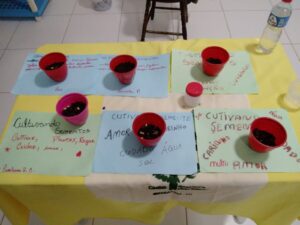
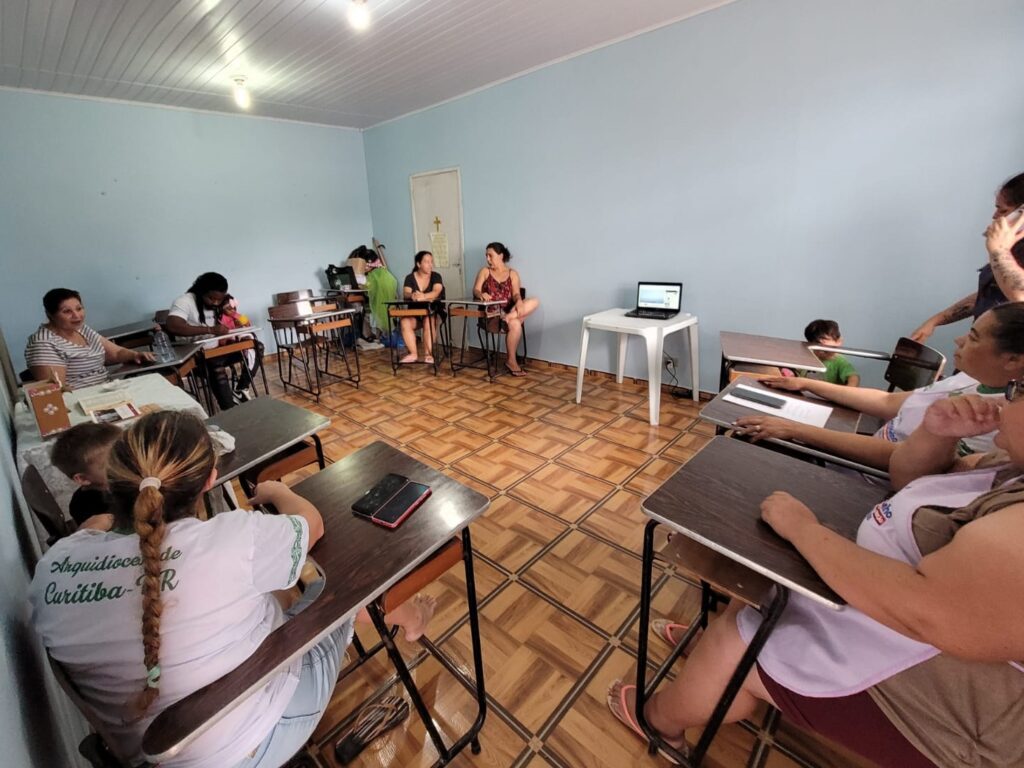
A series of workshops based on the “Toolkit: Nurturing the Spiritual Development of Children” took place in Brazil, bringing together 71 parents and caregivers, along with 121 children. Organized by Pastoral da Criança in collaboration with the Anthropology Departments at the Federal University of Mato Grosso and the Federal University of Santa Catarina, these workshops aim to inspire families to nurture children’s spirituality as a means to protect children from violence and foster their holistic development.
Pastoral da Criança has integrated the Toolkit into their existing program, ‘Celebração da Vida’ (Celebration of Life), which connects families in the community once a month. The program now includes Toolkit activities held twice a month for 90-minute sessions. These sessions, which began in October 2023, are conducted in four locations: Cuiabá, Florianópolis, Guaratuba, and Campo Largo.
The integration of the Toolkit complements existing content as it connects how fostering the spiritual development of children in the family can contribute to creating violence-free environments, developing positive relationships with caregivers, fostering resilience in children, supporting their social and emotional development, and fostering their mental health and psychosocial well-being. With this program, Pastoral encourages vulnerable families to become protagonists in their communities, so that they themselves can be agents of their own transformation.
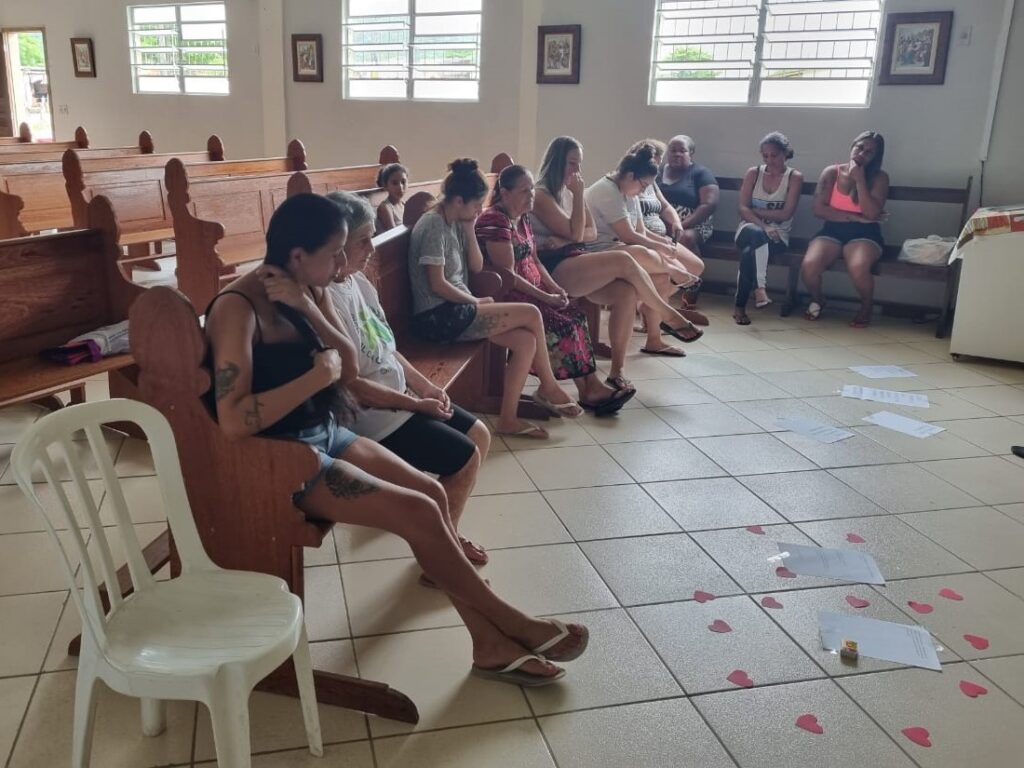
Digital Integration and Accessibility
To ensure broad accessibility, Pastoral da Criança translated the Toolkit into Portuguese and incorporated its content into their Android app. This app provides parents and caregivers with information on health, nutrition, education, and child development, and now it includes a focus on spirituality.
The app has become an essential tool for facilitators conducting home visits and community sessions. It features the learning program, guiding notes, and support materials for meetings with religious leaders. Facilitators can upload session reports, note challenges faced, and use Monitoring, Evaluation, and Learning tools such as registration and parent attendance. This digital adaptation not only reduces the printing costs and environmental impact but also exemplifies how technology and online tools can support the implementation of the Toolkit.
Local Adaptations and Community Engagement
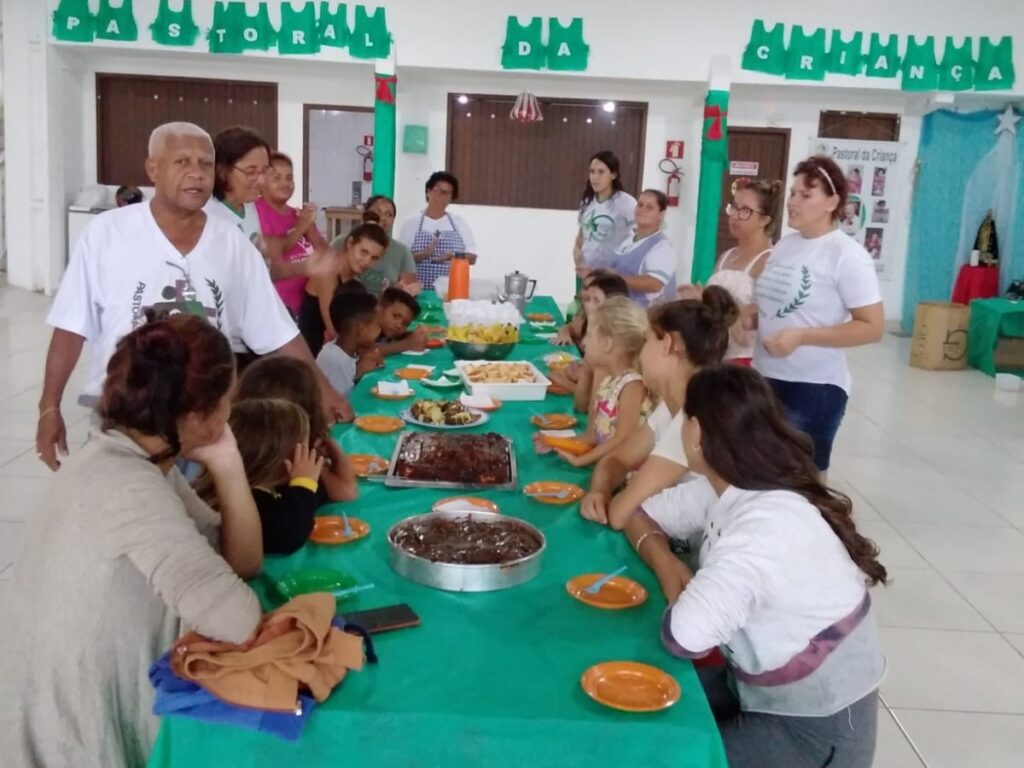
Pastoral da Criança has tailored the Toolkit to address issues specific to their context, such as violence and the lack of play opportunities. “I learned how to deal with playing with children, when it is time to play, and when it is time for duties. I learned to give more love and affection to each one and to understand and appreciate the importance of life,” shared a participant. “With the knowledge I gained from the course, I am now more patient with my daughters,” stated a mother of three. “I spend more time with them, pay more attention to them, and play with them more. As a result, they no longer misbehave to get my attention, which helps avoid stress for both them and me,” she continued while describing how the workshops helped her family strengthen their bonds and improve their relationships.
By forming support networks that include public, private, community, and religious institutions, volunteers and families work together to tackle these challenges. This localized content enhances the relevance of the Toolkit, ensuring it meets the needs of the communities it serves.
In Cuiabá, a Catholic Sister facilitating the sessions noted that parents shared personal stories of neglect and abandonment, highlighting the severe challenges they faced in their own childhood. In Guaratuba, a community leader highlighted that creating a safe and open environment encouraged participation and interaction, emphasizing the importance of setting the right tone for effective Toolkit implementation.
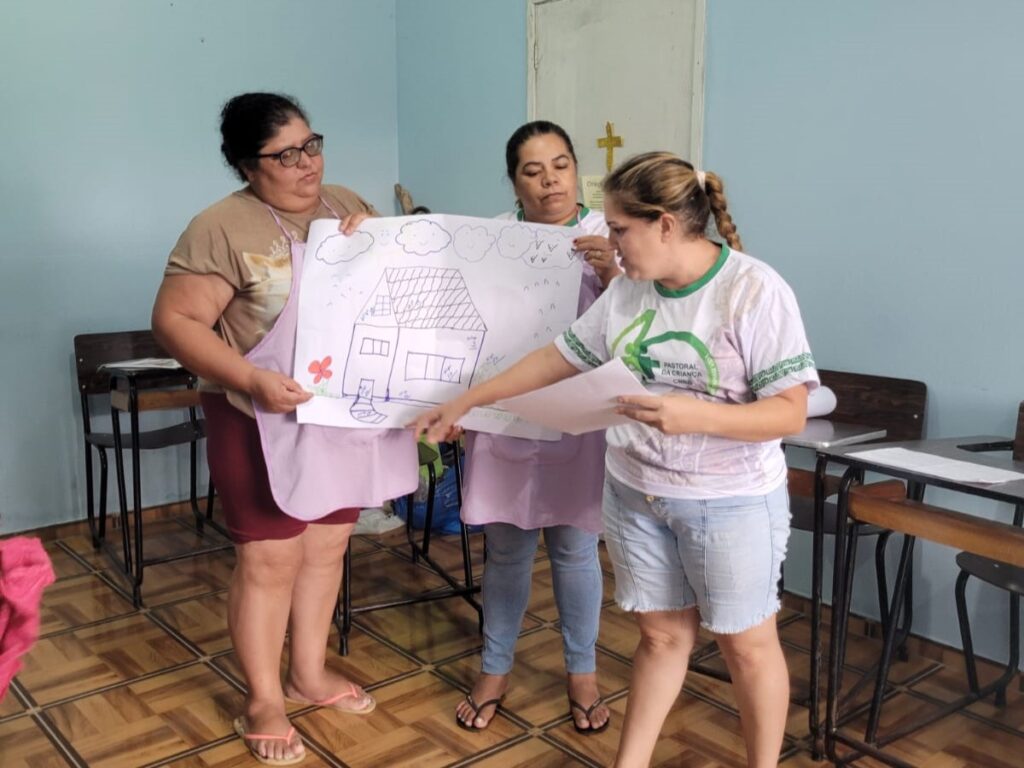
Caroline Dalabona, Nutritionists from Pastoral da Criança explained that “the approach always considers the participants’ opinions and what they have to say without judgment, leading to deep reflection and potential changes in the education and care of children.” The Toolkit addresses positive and respectful child upbringing methods, offering powerful alternatives to physical and emotional punishment, which is often used due to a lack of knowledge or perceived efficacy.
Promising Results and Future Plans
The team in Brazil has customized the learning program to include short activities for parents and caregivers as ‘homework.’ These activities engage families between sessions and promote three key conditions for nurturing spiritual development: safe and violence-free environments, positive caregiver-child relationships, and empowering experiences.
The initial implementation phase has shown promising results in engaging families and fostering holistic child development. Plans for Pastoral da Criança involve expanding these sessions to more families and other locations.
By leveraging digital tools and fostering community engagement, Pastoral da Criança’s innovative approach to implementing the Toolkit provides a model for other regions. Their efforts highlight the potential for holistic child development programs to create meaningful and lasting change in vulnerable communities.
We thank the leadership, staff, and volunteers of Pastoral da Criança, a member of the International Consortium on Nurturing Ethical Values and Nurture Spirituality in Early Childhood and of the GNRC, for their commitment to implementing the Toolkit. Special thanks go to the parents, caregivers and children for participating in the workshops with joy and enthusiasm.
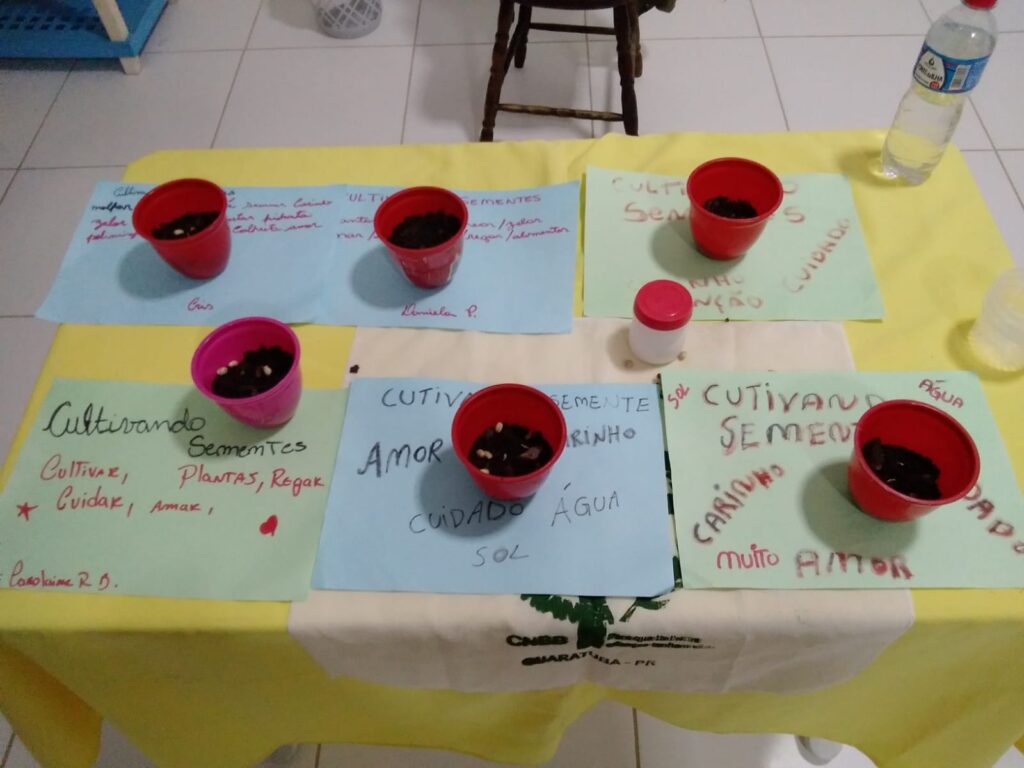
The post Inspiring Workshops Foster Spiritual Development for Children in Brazil appeared first on Ethics Education for Children.
23/06/2024 - Toolkit for Nurturing Spiritual Development of Children Gains Ground in Mexico
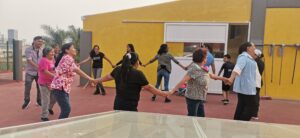
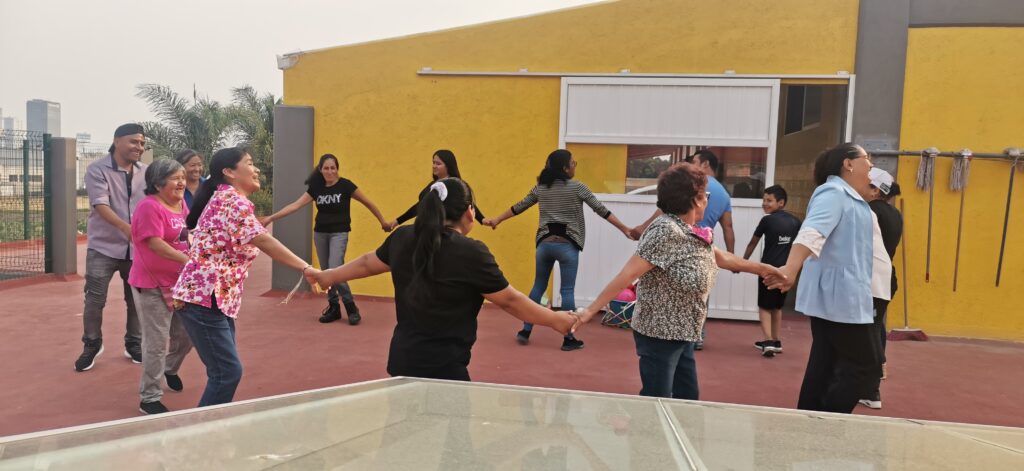
A significant stride in child development and family engagement has been achieved in Mexico with the successful implementation of the Toolkit for Nurturing the Spiritual Development of Children. This initiative, spearheaded by the Franciscan Sisters and World Vision Mexico, has positively impacted over 800 parents and caregivers and more than 1,000 children from July 2023 to July 2024.
The Toolkit has been implemented in various settings across four Mexican states: Guanajuato, Michoacan, Puebla, and Veracruz, including schools, an orphanage, and community parishes. Both organizations reported high levels of participant engagement, showcasing a promising start to this comprehensive program.
Training and Implementation
Following the Training of Trainers workshop in June 2023, several Facilitator Training Workshops were held to cascade the program. Taking place from August to October 2023, these workshops prepared organizational staff, faith actors, and religious leaders with the necessary knowledge and skills to carry out workshops with parents and caregivers. The training emphasized the importance of spiritual development for children’s holistic growth and well-being, and how this can protect children from violence in their early years.
As part of these workshops, facilitators also developed action plans to adapt the Toolkit to local contexts. An additional request from World Vision’s trainers led to the creation of simplified materials to accommodate parents and caregivers with lower literacy levels.
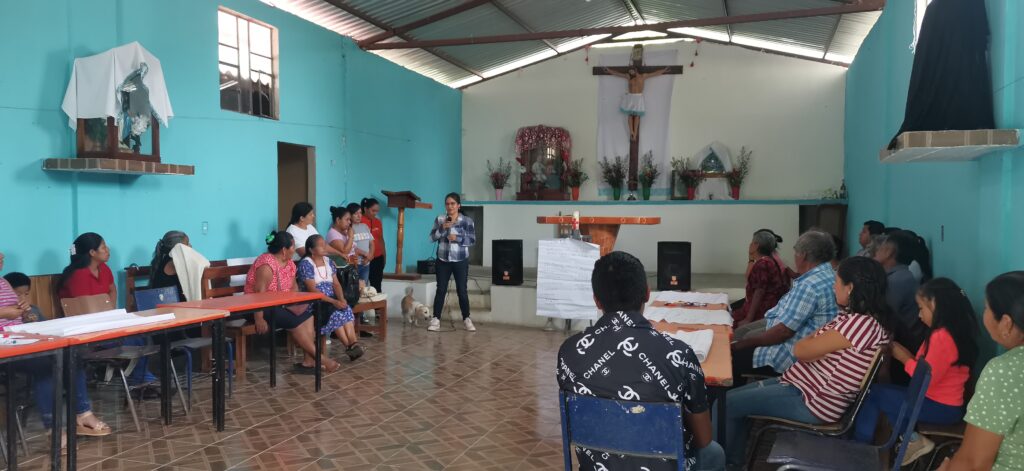
High Engagement and Positive Feedback
The Franciscan Sisters integrated the Toolkit into their “Escuela para Padres” (Parents’ school), conducting sessions in four schools and an orphanage. This effort involved 20 trained facilitators working with 200 parents and caregivers and reaching 400 children.
The sessions, held bi-weekly and monthly, have witnessed high levels of participation and enthusiasm. One of the most significant outcomes for parents and caregivers is their newfound recognition of spirituality beyond religion. Additionally, the workshops have been instrumental in helping them reduce the use of violence in raising their children.
“The Toolkit is practical and easy to adapt, helping to employ new strategies for parenting and education,” noted one of the facilitators. Parents have expressed gratitude for the insights gained, especially regarding their own childhood behaviors and how these influence their parenting styles.
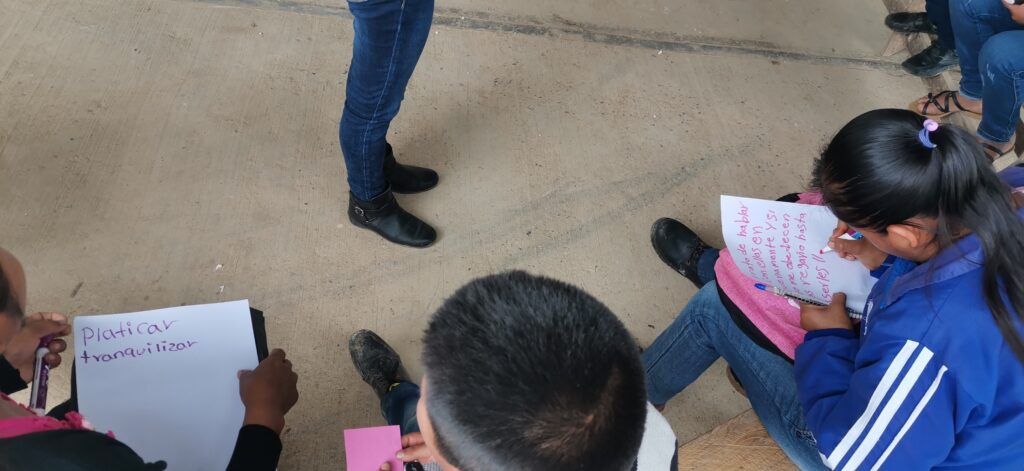
Diana, a mother who participated in the program, shared, “This has helped me a lot to have a better connection with my children, to understand them, and to understand myself. I now try to be a better person so that I can be a better mother.” “The workshops helped me tremendously in many ways. For example, I am no longer as harsh with my daughter; I try to be more empathetic towards her, to listen to her, to spend more time with her, to understand her, and not to be so explosive or bossy,” said another participant.
World Vision Mexico also integrated the Toolkit into their existing work with religious communities. They trained 90 faith actors working in rural communities as facilitators. These facilitators, primarily catechists, have been conducting sessions in six parishes, engaging 600 parents and caregivers with a 98% attendance rate.
Facilitators from World Vision reported a high level of enthusiasm and engagement from the parents and caregivers, despite location and language barriers. These parishes are hard to reach and often spread far from one another, with some parents and caregivers traveling by foot to the sessions. Additionally, many participants are from Nahuatl indigenous communities, most with lower levels of Spanish as this isn’t their native language. Despite these challenging circumstances, there has been a higher number of participants than predicted, with some sessions attracting up to 60 individuals.
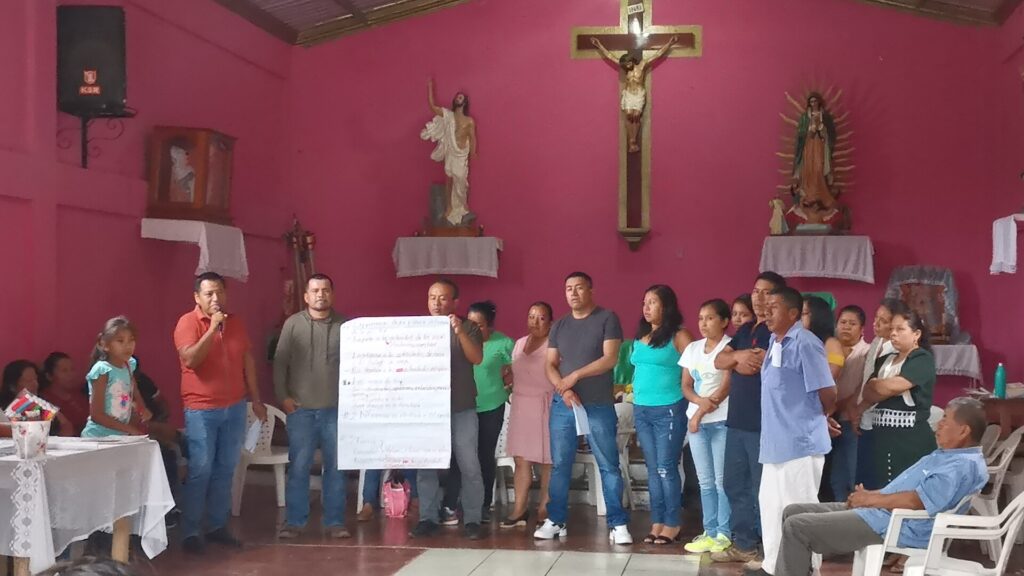
One notable outcome of this group has been the active participation of fathers, which is usually rare in such programs. “My children have noticed the difference in how we treated them before the workshops and now that we are participating in the workshops,” stated a father from Veracruz, illustrating the impact of the program on his family. “Before, I used to get angry when the girls didn’t do something, and now I understand them more. I have more patience with them, I understand that they miss their mom, and I must fill that role,” added a single father of tween girls.
Impact and Future Plans
Both organizations have seen the Toolkit’s positive impact firsthand. The Franciscan Sisters have noted that the Toolkit complements their existing work and has enriched their parenting programs. The Sisters hope to scale up implementation to the other thirteen schools they operate after this pilot phase.
Similarly, World Vision Mexico’s facilitators reported that the Toolkit has helped parents and caregivers in rural parishes strengthen their spirituality and better understand their roles in nurturing their children’s development.
The successful implementation of the Toolkit for Nurturing the Spiritual Development of Children in Mexico was made possible with the support of Porticus. This initiative signifies a robust approach to supporting diverse families and communities. The engagement levels and positive feedback from both parents and facilitators underline the effectiveness and necessity of such programs. As the initiative continues to evolve, it holds the promise of strengthening parenting skills and supporting children’s holistic development and well-being.
The post Toolkit for Nurturing Spiritual Development of Children Gains Ground in Mexico appeared first on Ethics Education for Children.
15/05/2024 - Convening of Champions: Nations Commit to Ethics Education

Held on 23-25 April 2024, the ‘Convening of Champions’ meeting marked a significant milestone in the Ethics Education Fellowship collaboration. The gathering was attended by 70 participants from 17 countries, including senior representatives from Ministries of Education, UNESCO offices, partner organizations, as well as religious leaders. The event served as a bustling hub for discussing the importance of prioritizing and investing in Ethics Education.
The event featured two days of technical discussions and strategic planning, followed by a one-day high-level segment. Held in Abu Dhabi, UAE, the meeting was co-hosted by the Muslim Council of Elders and the Higher Committee of Human Fraternity, together with Arigatou International, Guerrand-Hermès Foundation for Peace, KAICIID International Dialogue Centre, and UNESCO.
The meeting explored the Ethics Education Fellowship program’s transformative impact on children, teachers and the community. Launched in 2022 with the engagement of the Ministries of Education of Bangladesh, Indonesia, Kenya, Mauritius, Nepal and Seychelles, the program sought to contribute to global citizenship and to build inclusive and peaceful societies.
Throughout the three-day event, participants reflected on the critical role Ethics Education plays in the current context and how it can address the needs of children to support their holistic well-being. “An essential step in the road to peace is to ensure that every child grows up with full access to their innate capacity for spiritual development. This is why the implementation of interfaith ethics education both in schools and in other educational settings is so vital,” stated Mr. Hironari Miyamoto, in representation of Rev. Keishi Miyamoto, President of Arigatou International.
In the same vein, H.E. Dr. Ahmad Belhoul Al Falasi, Minister of Education of the UAE stated, “Our approach to education must ensure that our young people develop a core set of universal principles and values that reflect the shared experience of humanity that are relevant in any society.”
Representatives from the Ministries of Education shared invaluable insights drawn from their experiences implementing the program in the participating countries, which reached 324 teachers and benefited 8,034 children and youth. They showcased the excellent results of the program, discussed challenges and opportunities, explored its scalability and sustainability at the national level and looked into potential collaborations with diverse partners.
H.E. Dr. Justin Davis Valentin, Seychelles Minister of Education, remarked, “We took the Fellowship Program very seriously and it fits very well in our strategy of promoting value-based education. We are already experiencing great outcomes as a result of implementing ethics education within our school curricula.”
One of the event’s highlights was amplifying the voices of children and young people. Through video messages, children shared their learnings after participating in the program. Alice, a young student from Kenya explained how the program helped children in her class coexist more peacefully by appreciating the differences between ethnic groups. Similarly, Tia, a student from Seychelles said, “Ethics education is important for me because it showed me to learn more about me and others;” “Ethics Education also taught us to avoid racism, treat everyone equally and respect everyone’s precious opinion” added Warisa, from Bangladesh. Bernadeth from Indonesia stated that the activities were interesting and fun. “I learned how to make quick and wise decisions. I think it is important for my daily life,” she declared.
Calling for the Ministries of Education to continue and expand the program, Kumakshi, a student from Mauritius said, “I hope that ethics education will be introduced in all schools in Mauritius.” “All students should have the opportunity to get involved in ethics education programs,” reflected Krishna, from Nepal.
Country representatives made commitments to increase the investment and focus on Ethics Education in formal and non-formal education systems. They also stated their plans to integrate and mainstream Ethics Education to promote intercultural and interreligious learning and dialogue in the education curriculum, policies and programming across the education system. Participating countries’ plans include strengthening the capacity of formal education institutions and educators on Ethics Education through teacher training programs for pre- and in-service teachers.
“We have seen in these days concrete evidence of how ethics education contributes to foster the principles of human fraternity and interconnectedness, peaceful coexistence and solidarity, nurturing positive relationships and empowering learners to transform societies,” stated Dr. Khalid Al Ghaith, Secretary General of the Higher Committee of Human Fraternity, on behalf of the Secretary General of the Muslim Council of Elders, Judge Abdelsalam, as the event came to an end.
A full report of the event, including its main results, next steps, and the commitments from each country will be released soon. The recording of the high-level panel is available in this link.
We thank the ministries of education, and partners of the Ethics Education Fellowship, including the fellows, teachers and children, as well as the high-level panel speakers and attendants, for walking with us on this transformative journey towards integrating Ethics Education into children’s educational pathway.
The post Convening of Champions: Nations Commit to Ethics Education appeared first on Ethics Education for Children.






